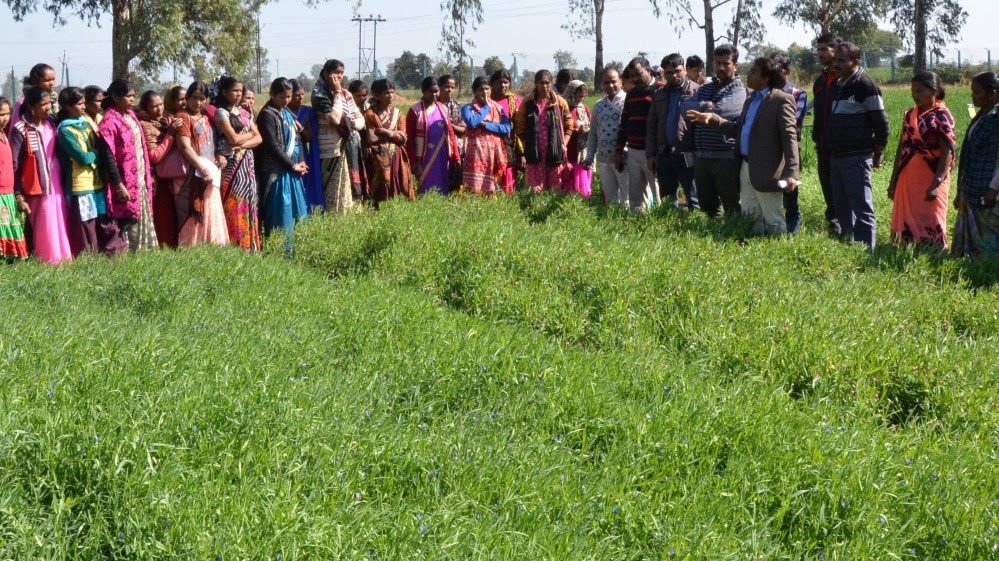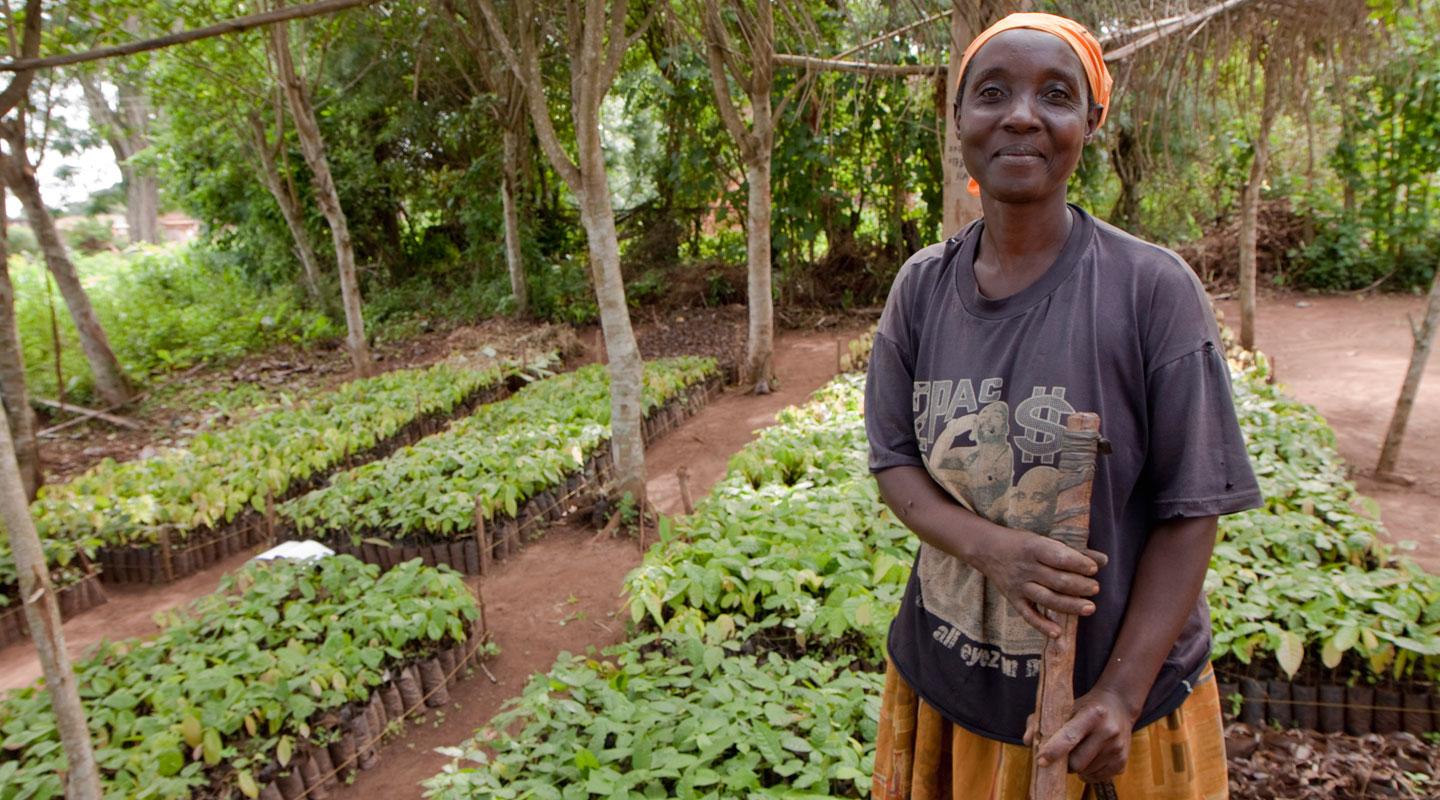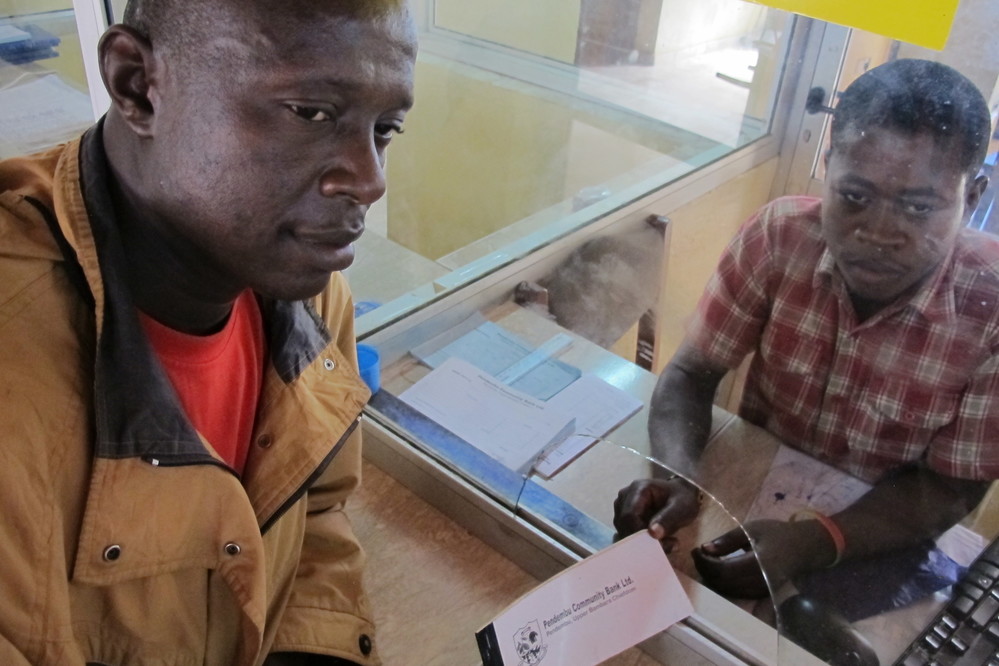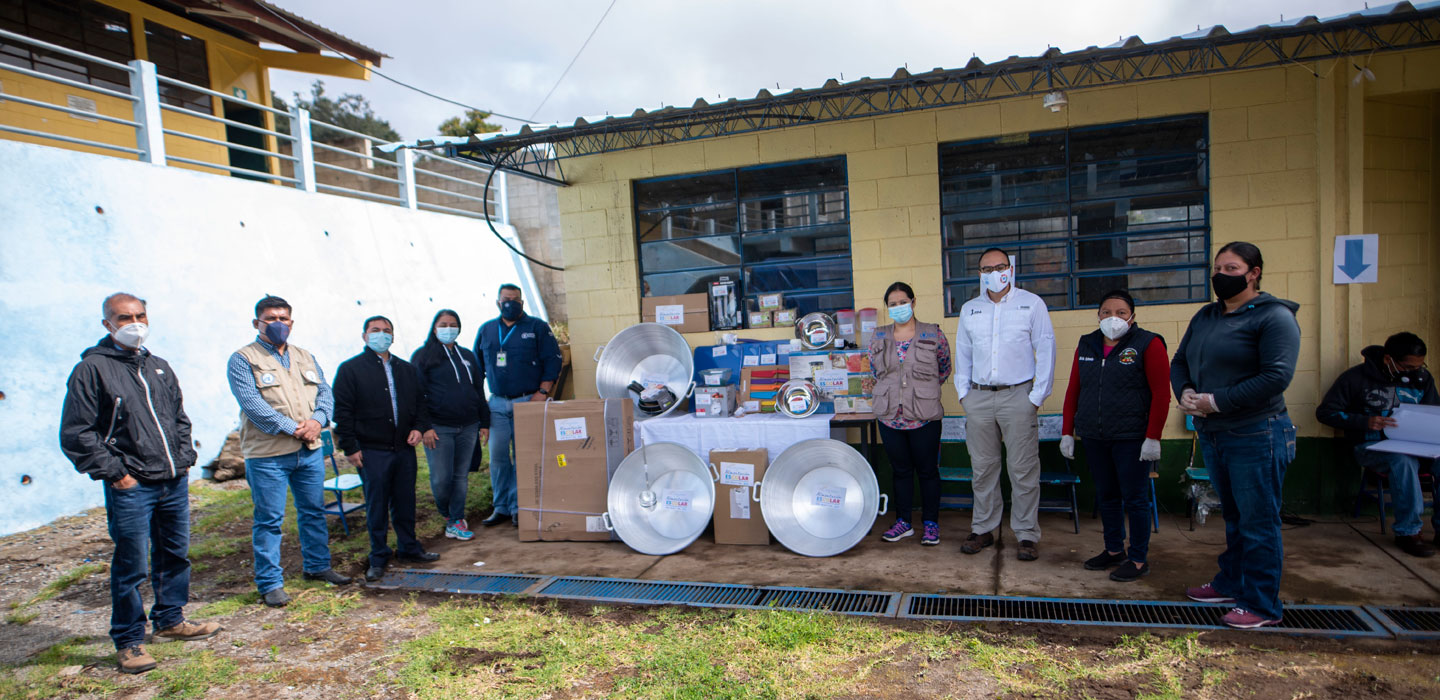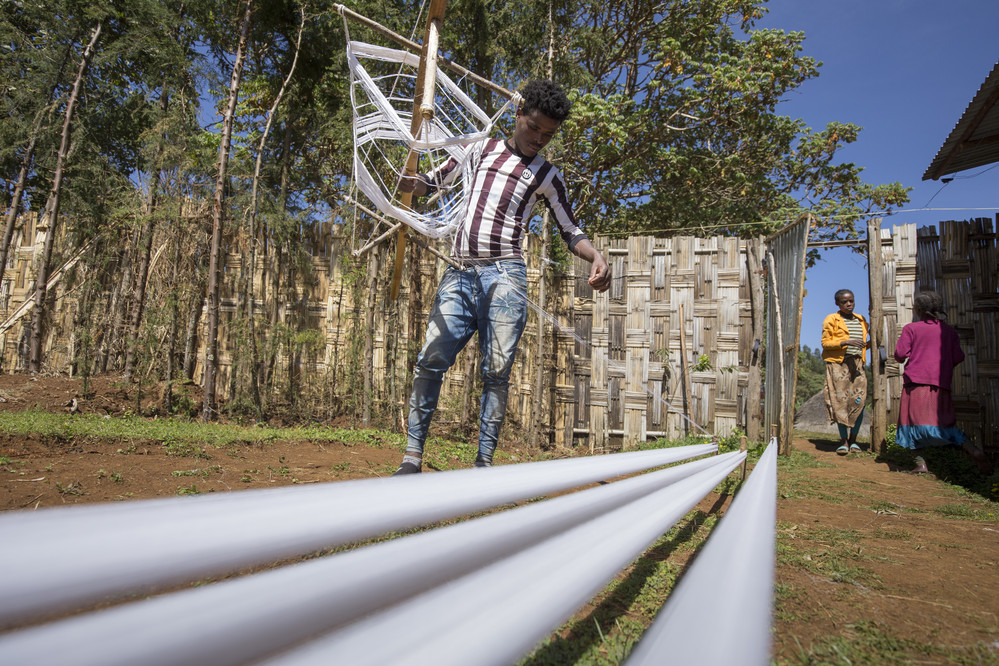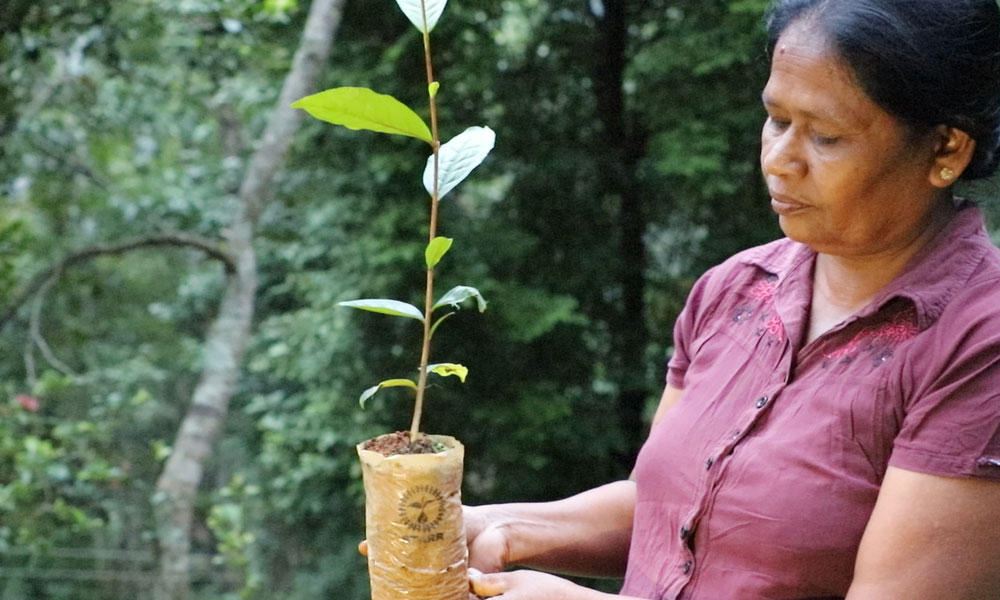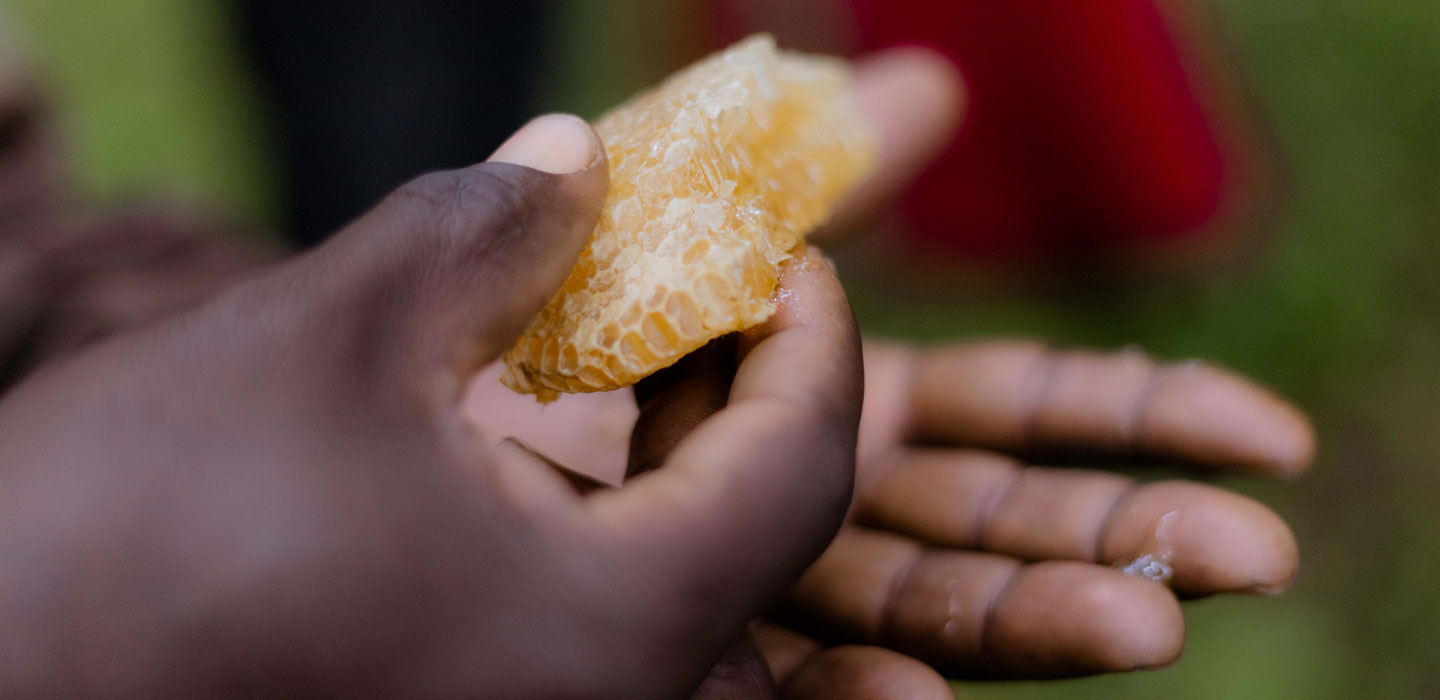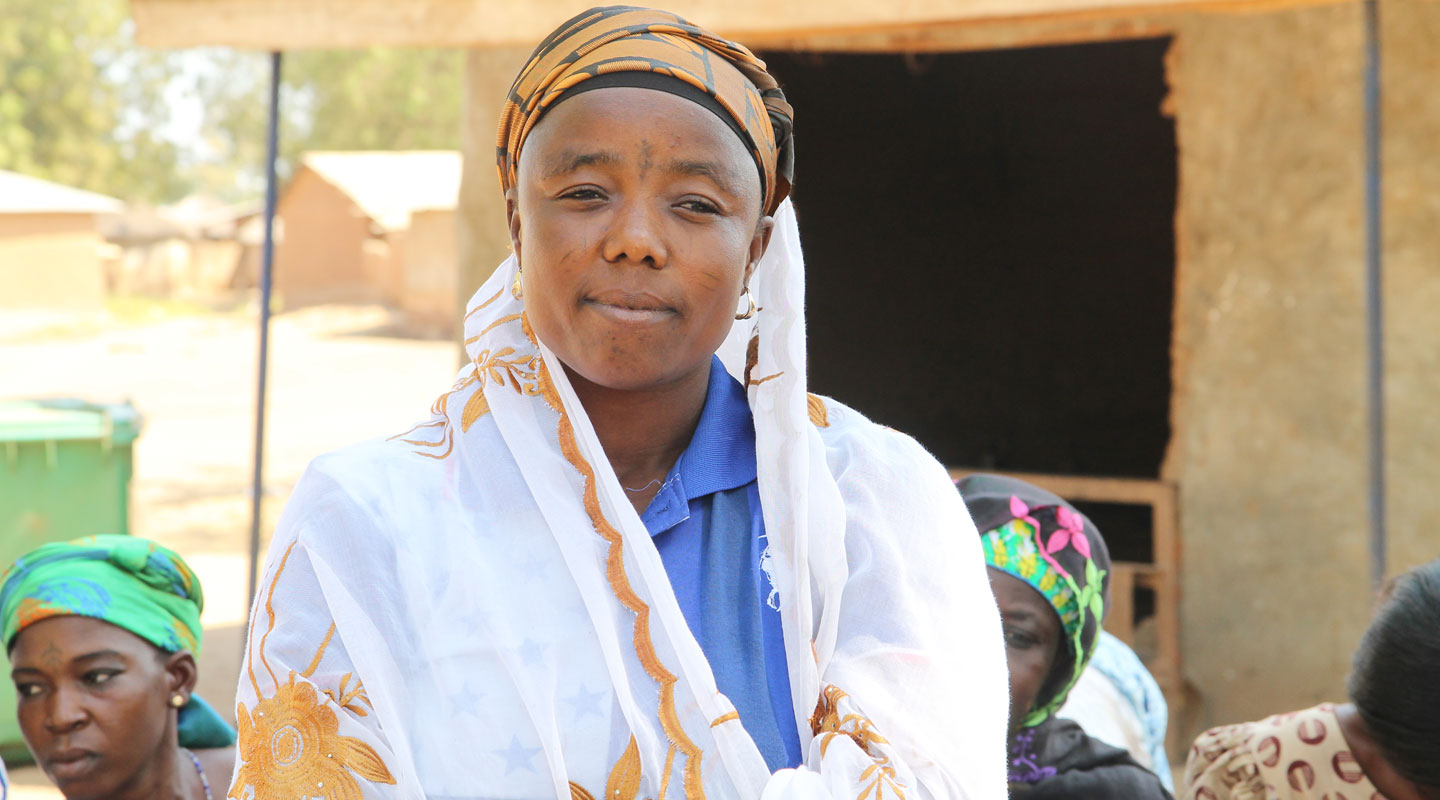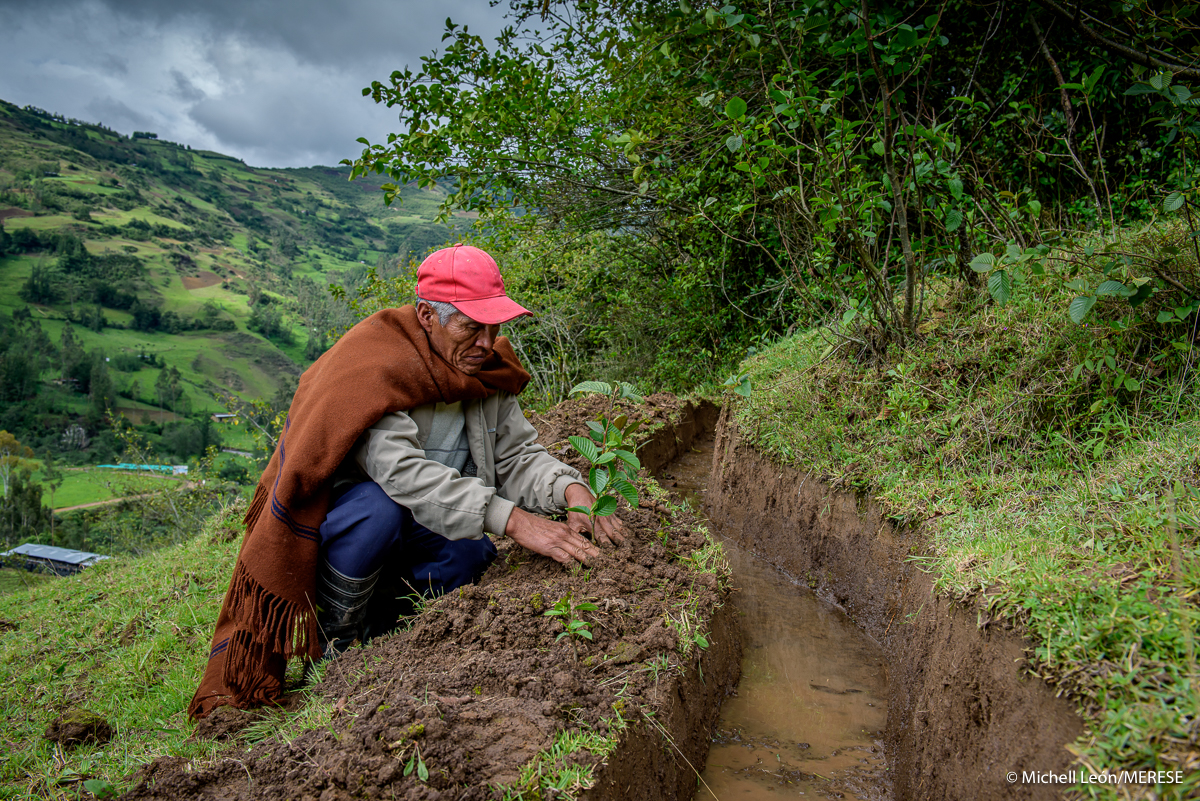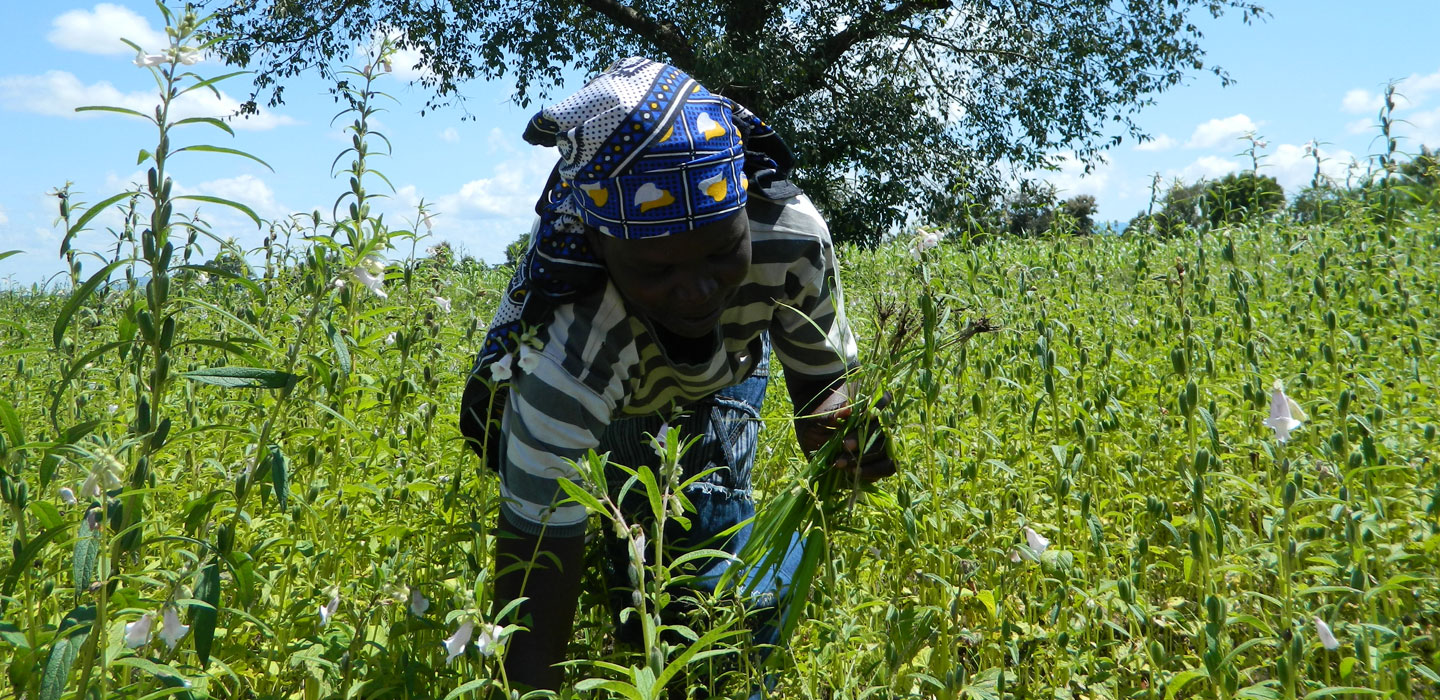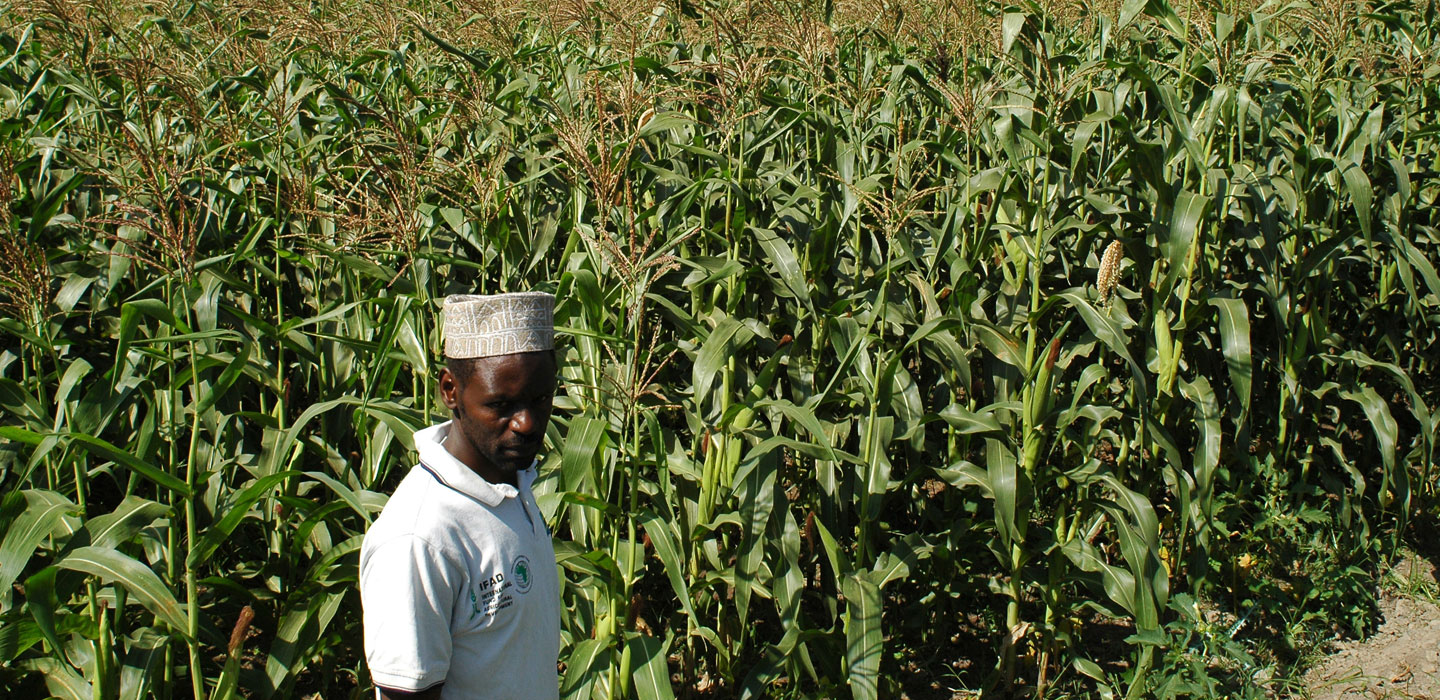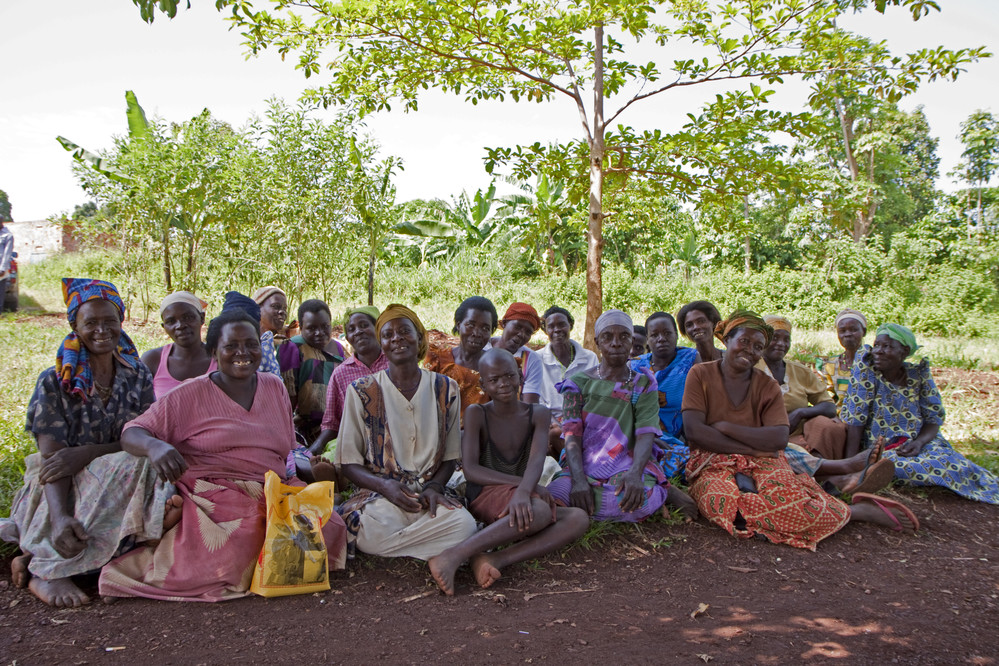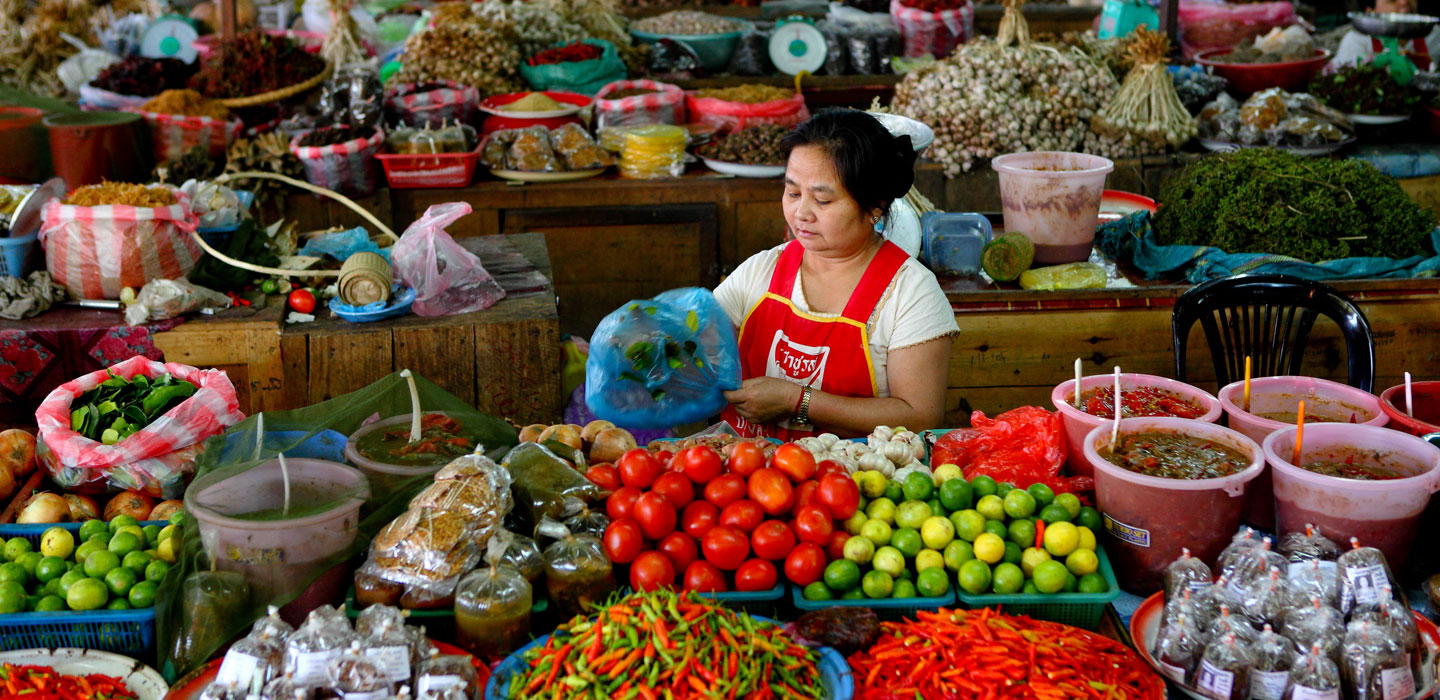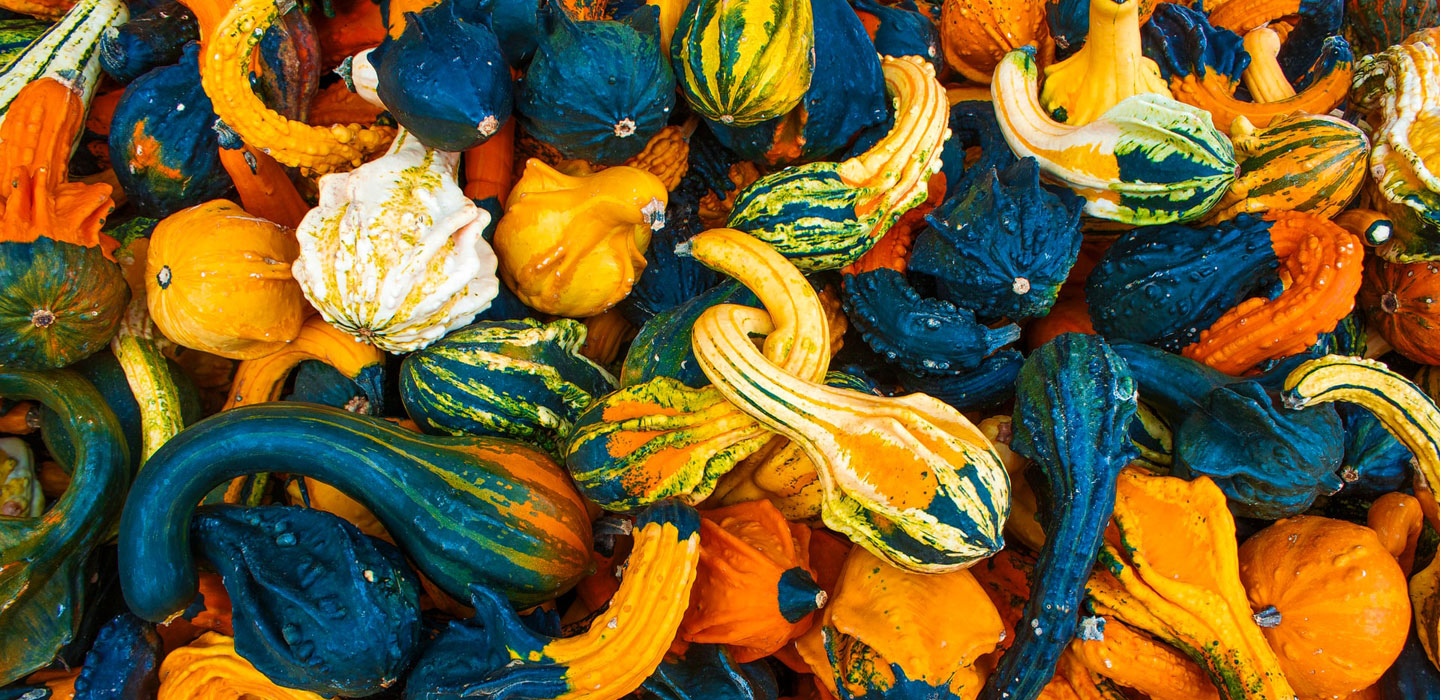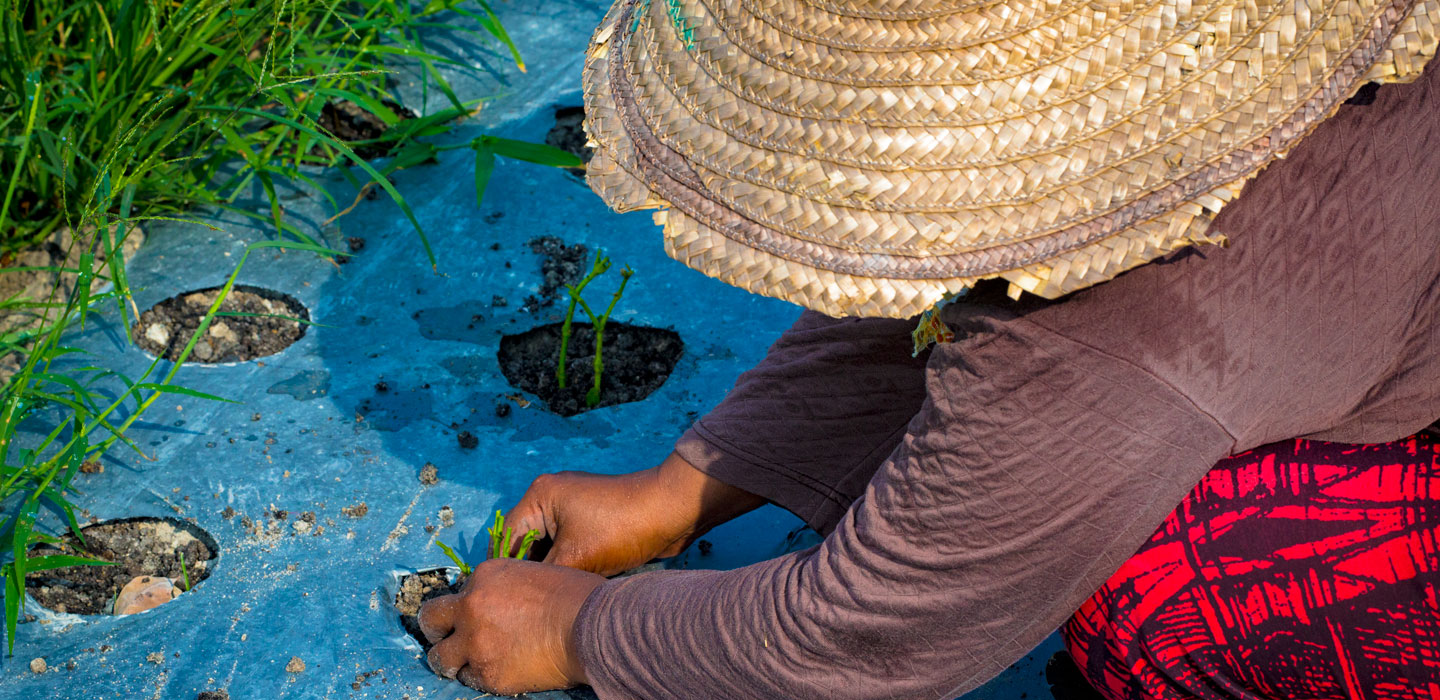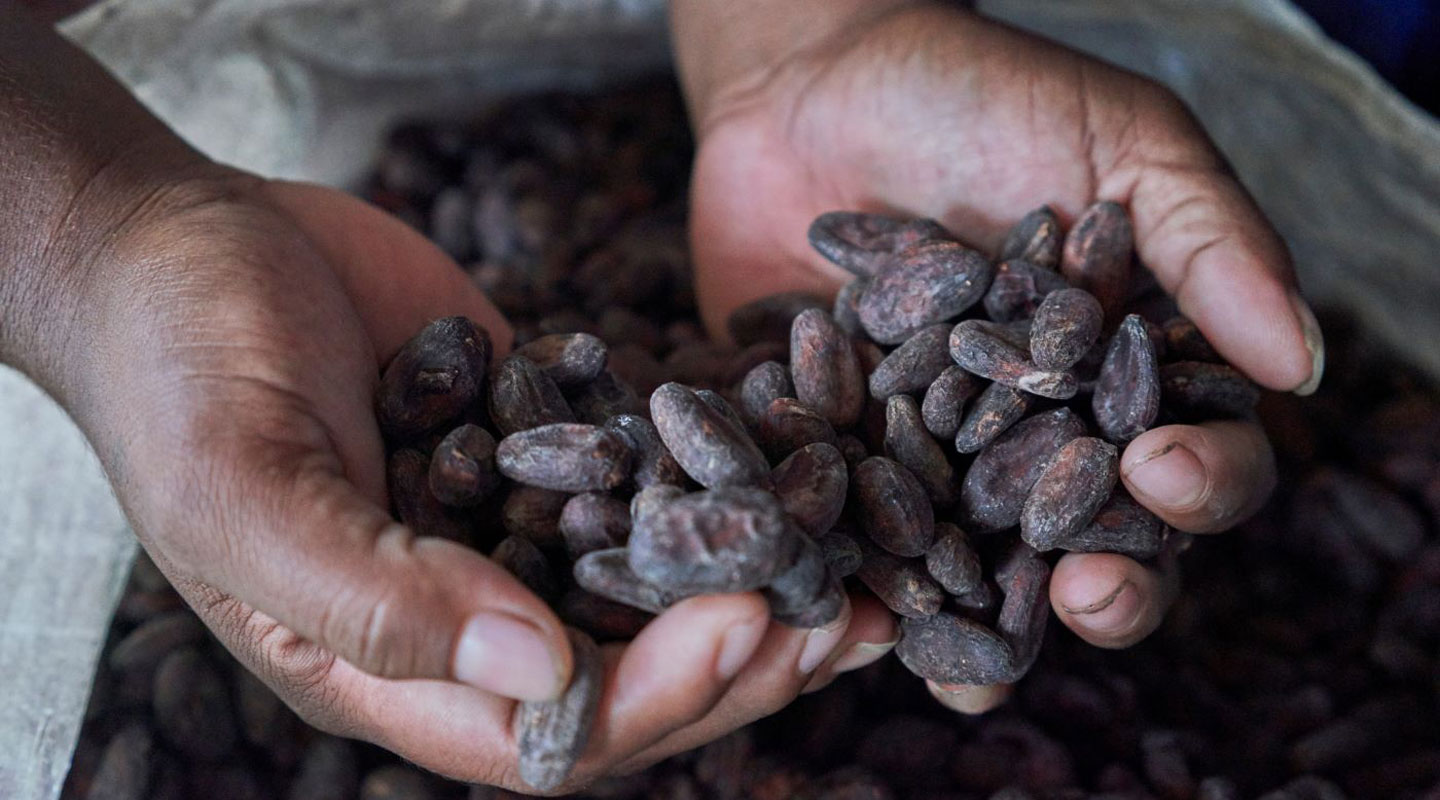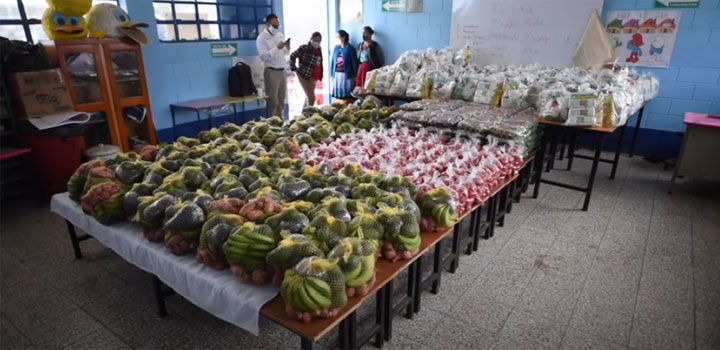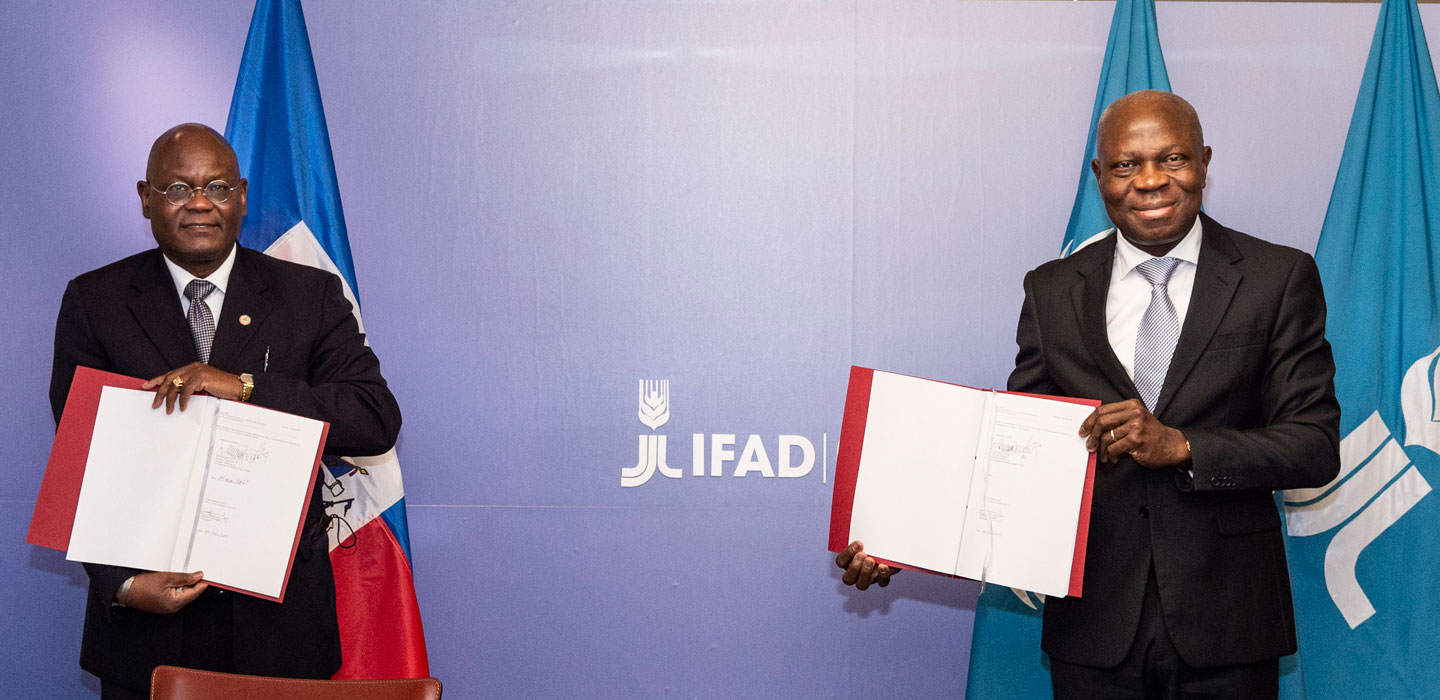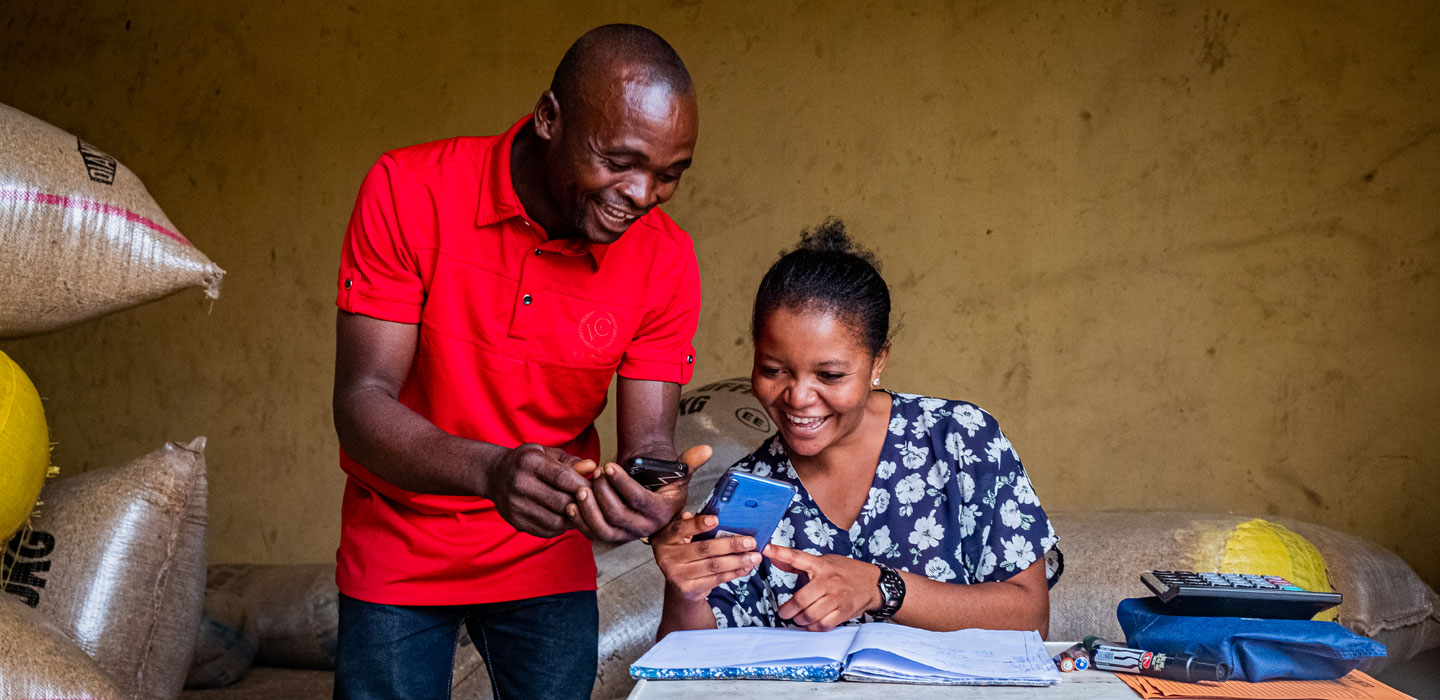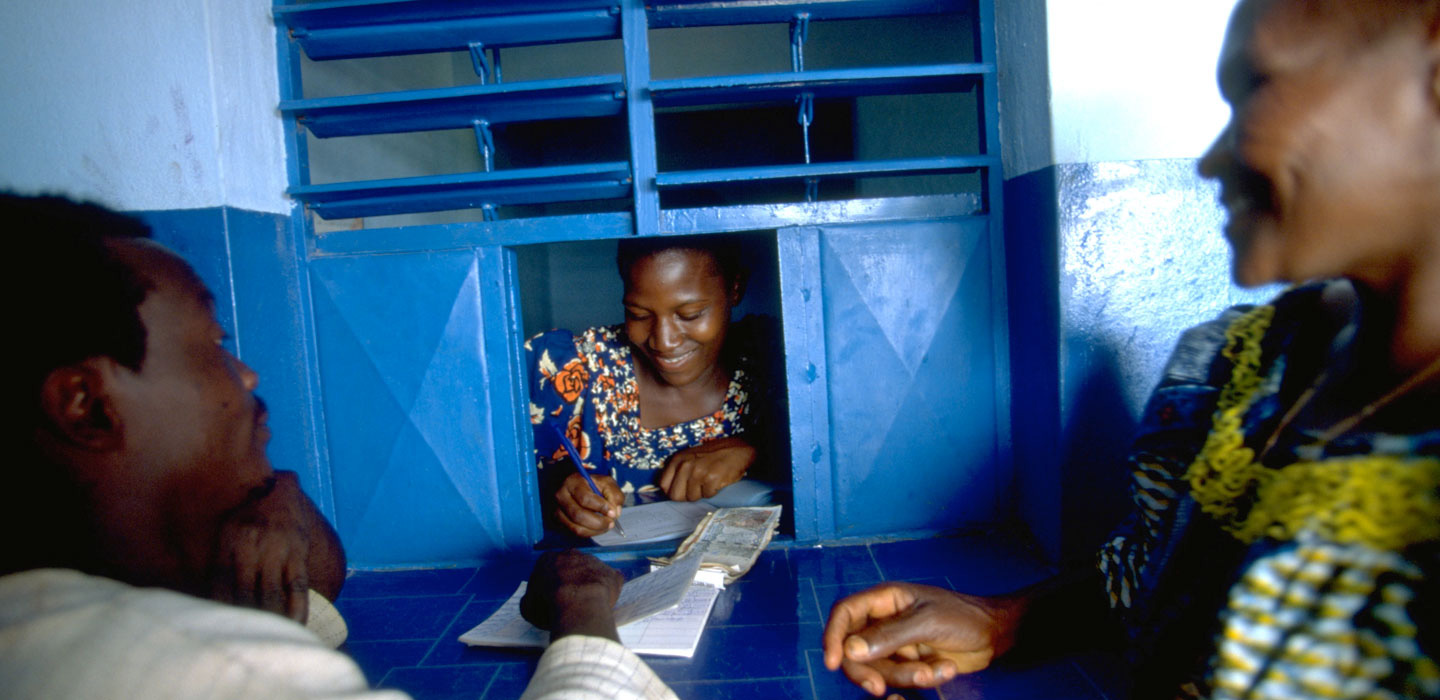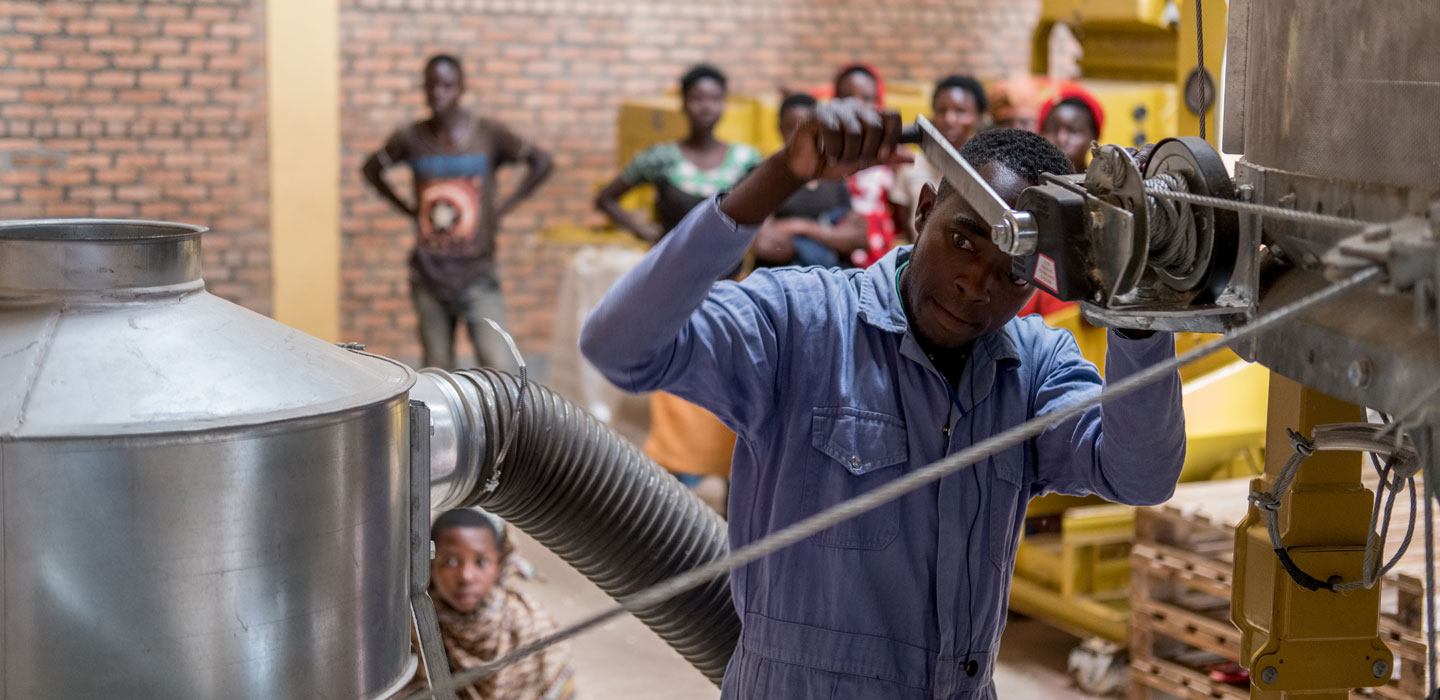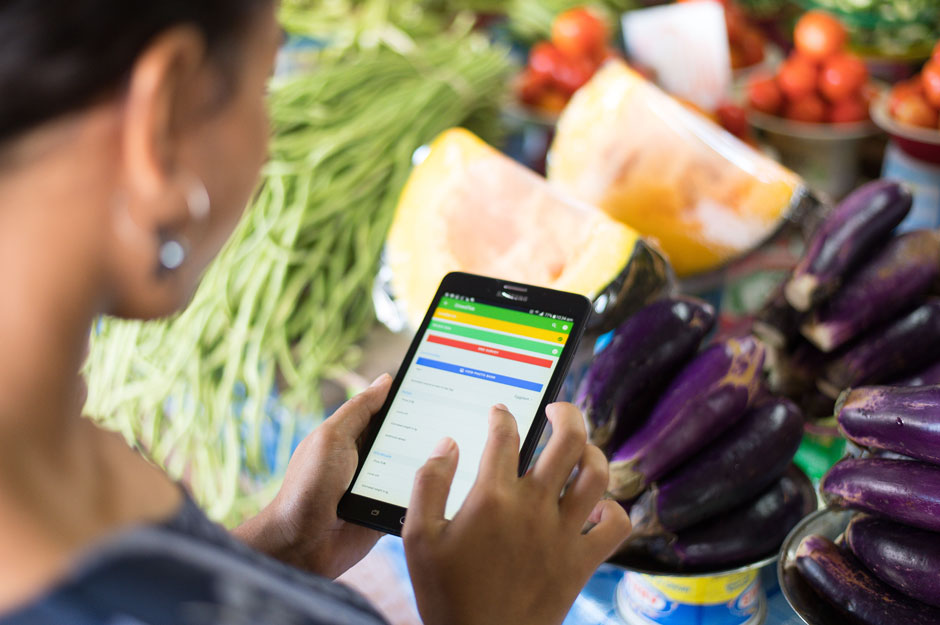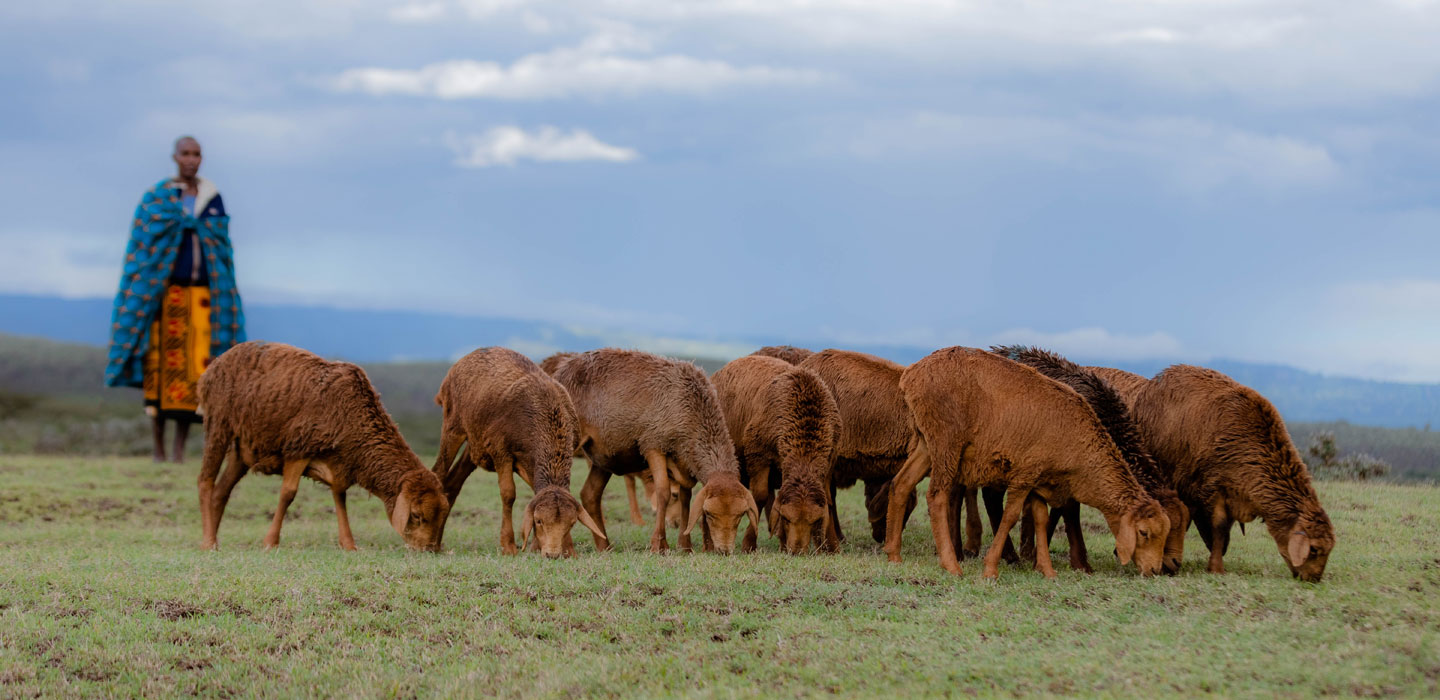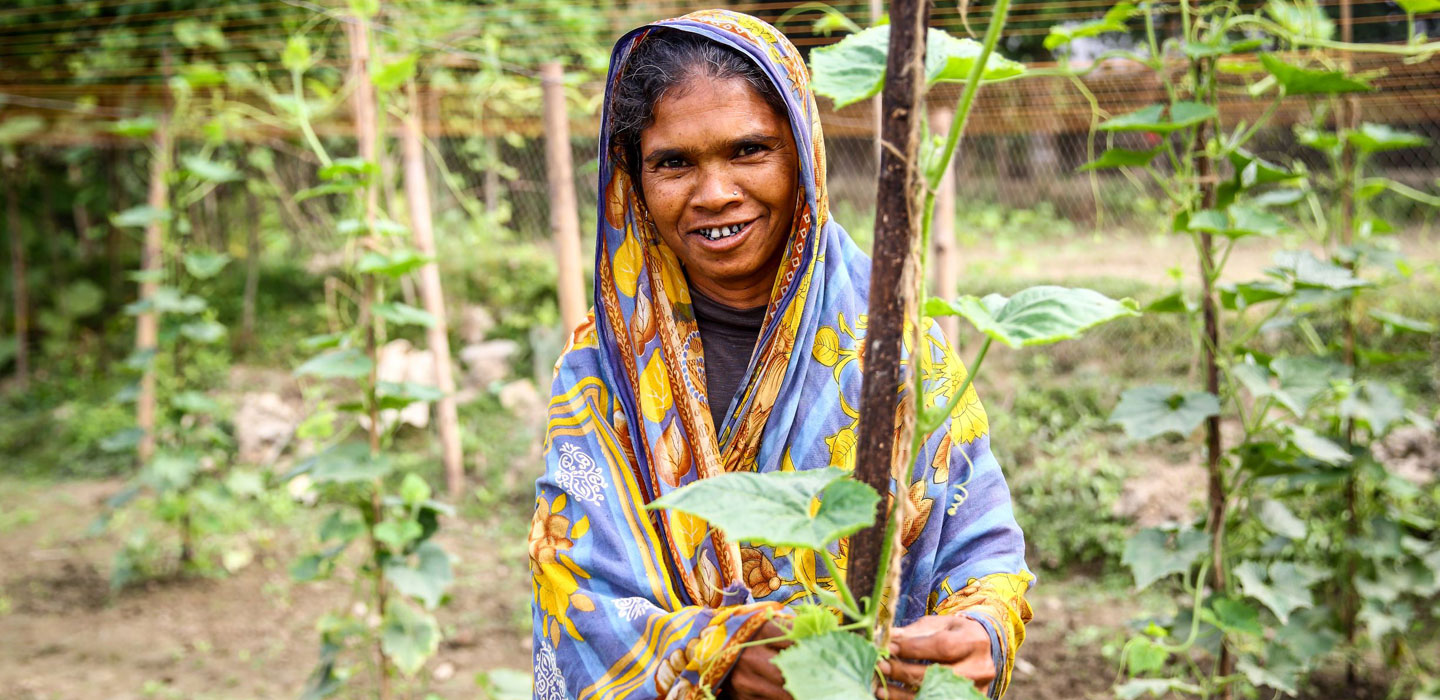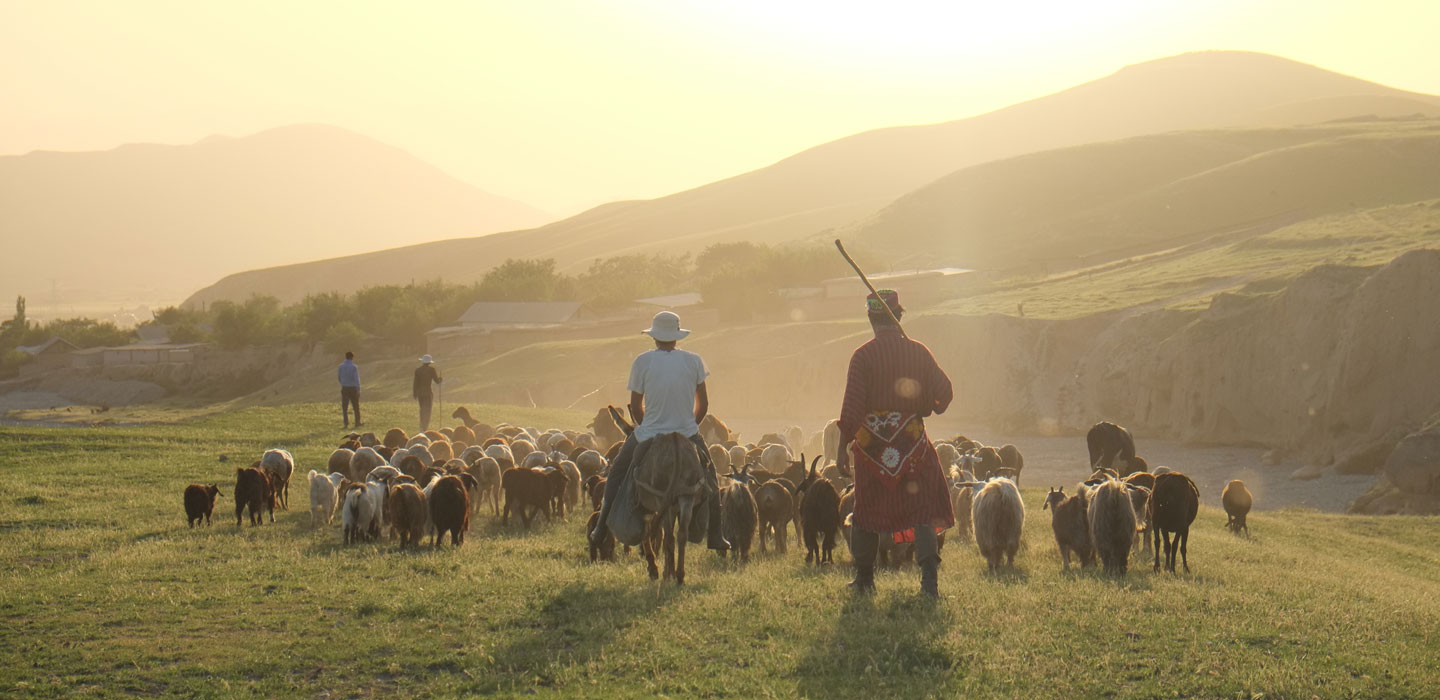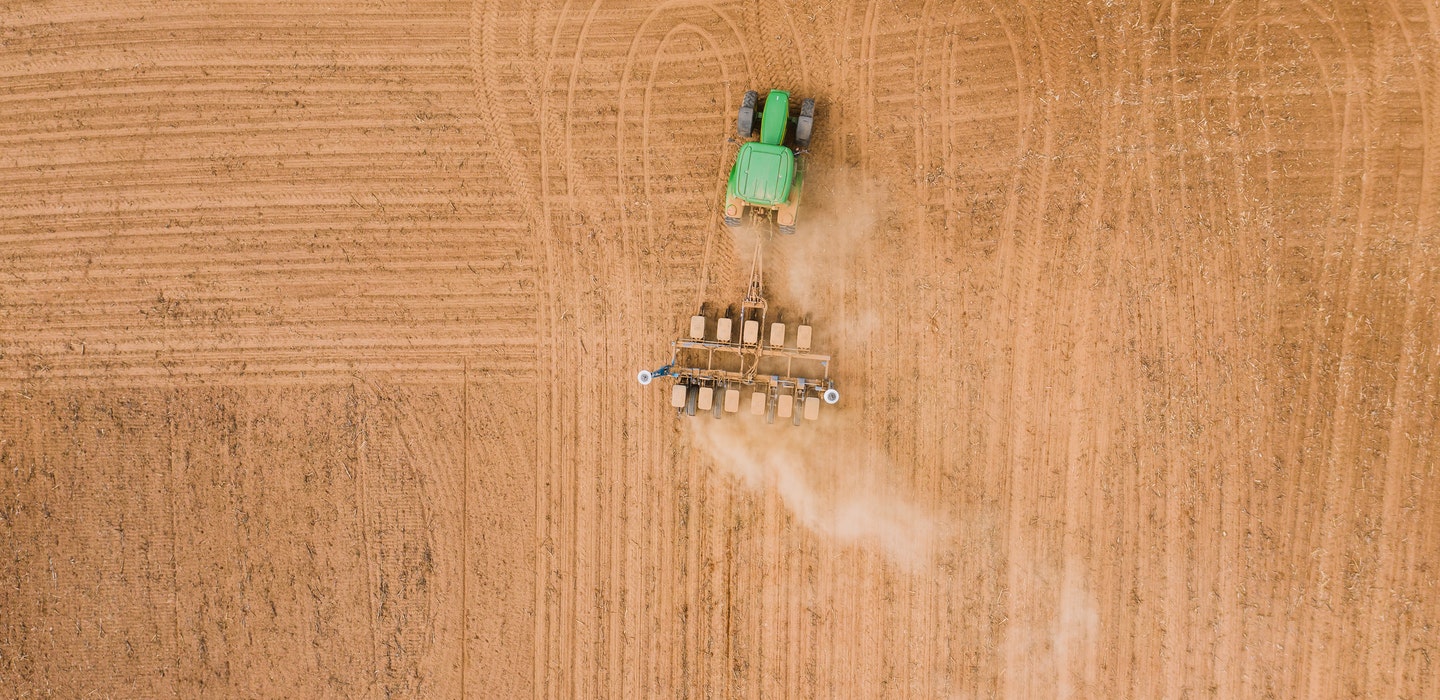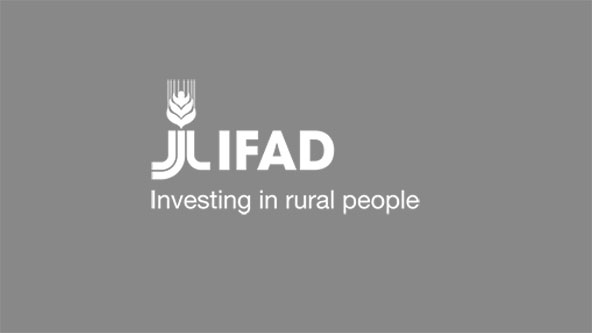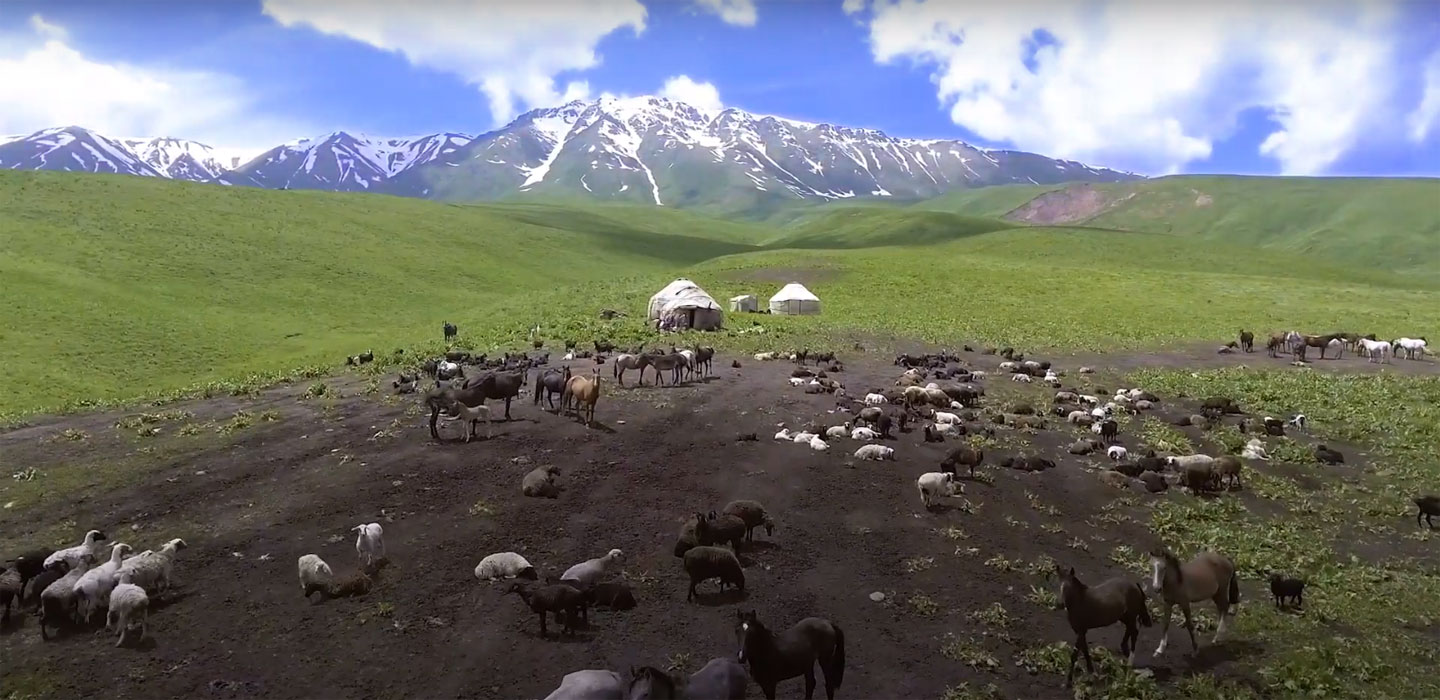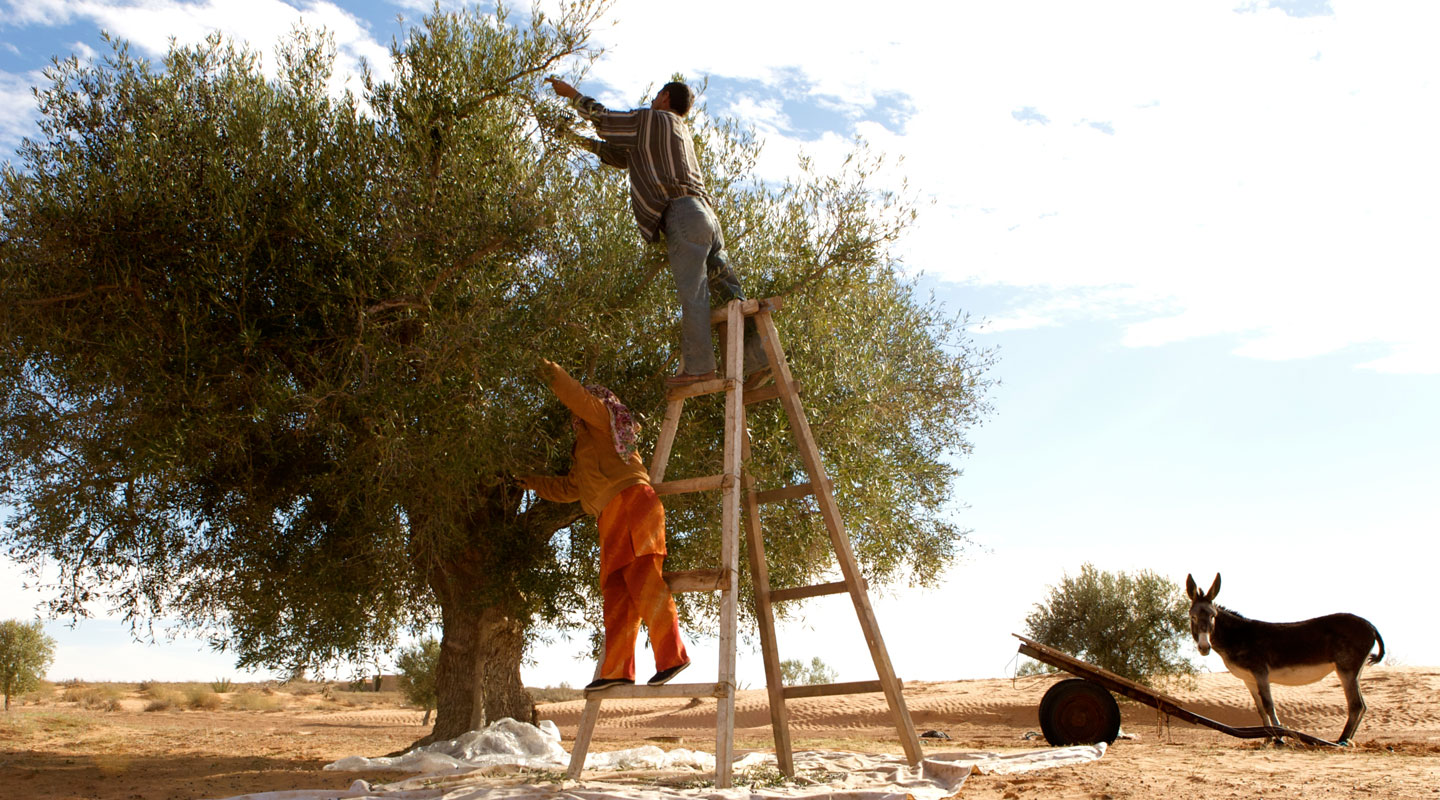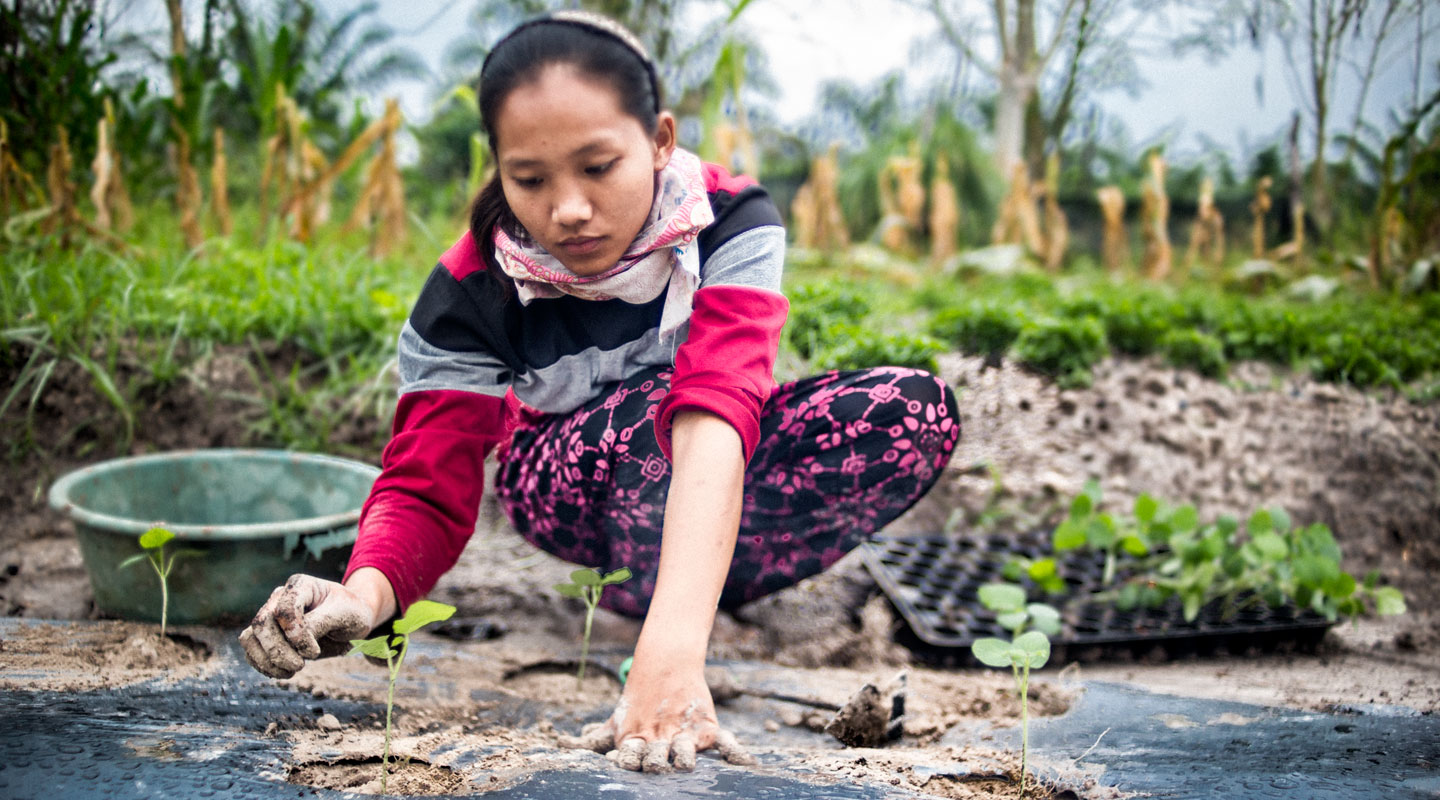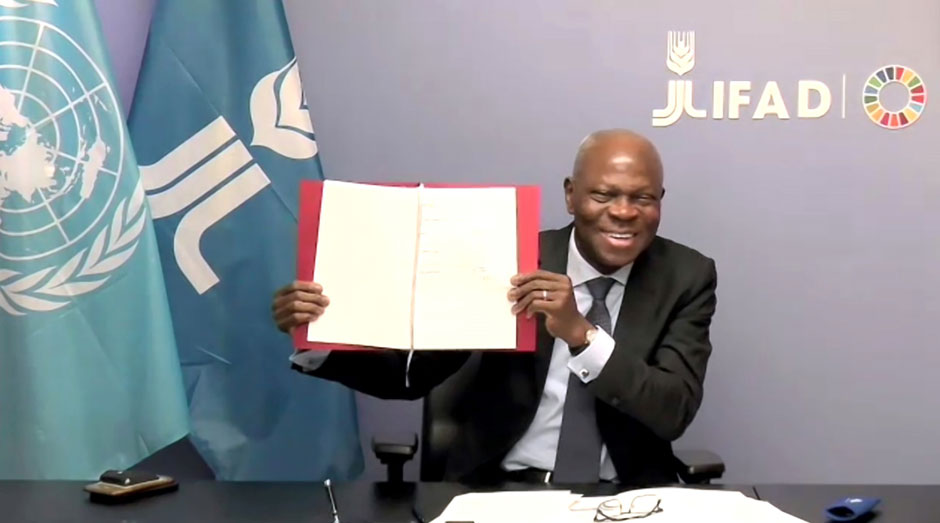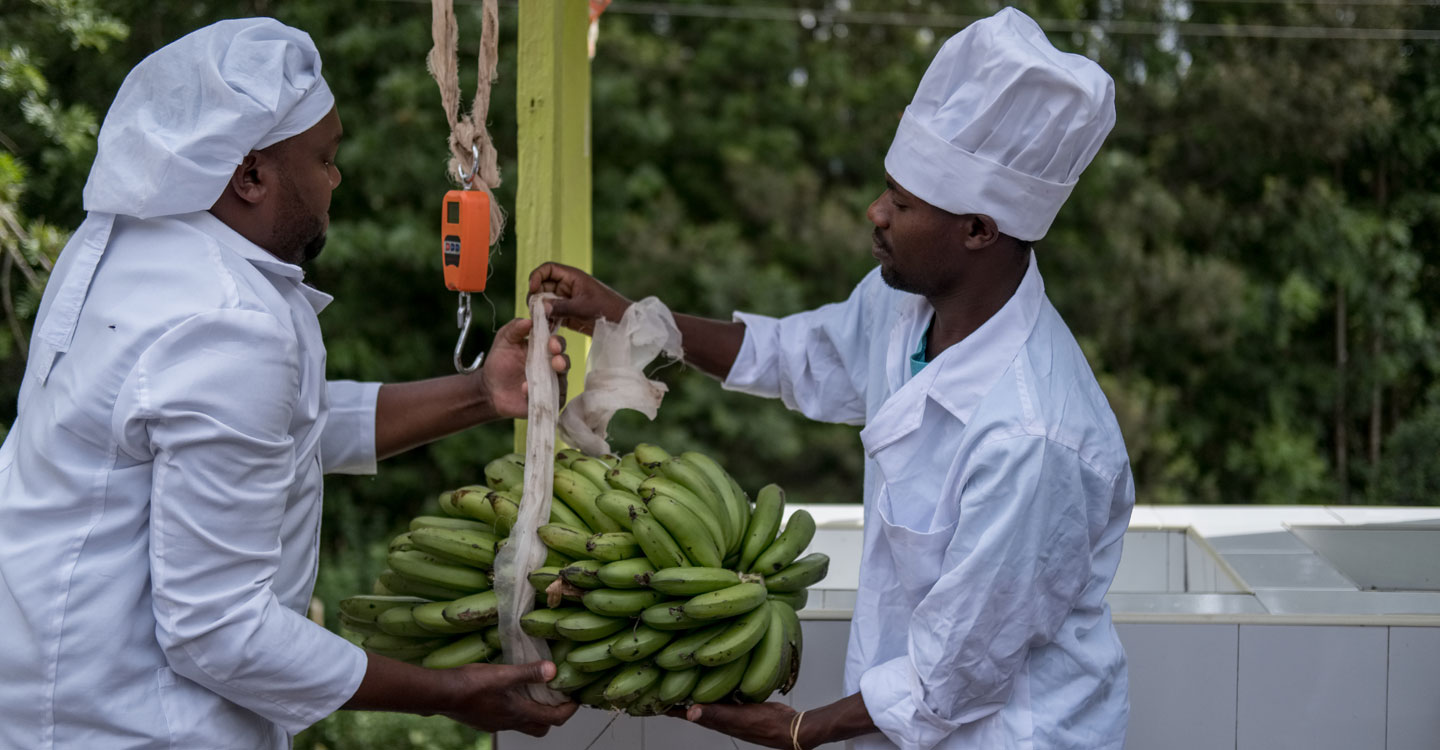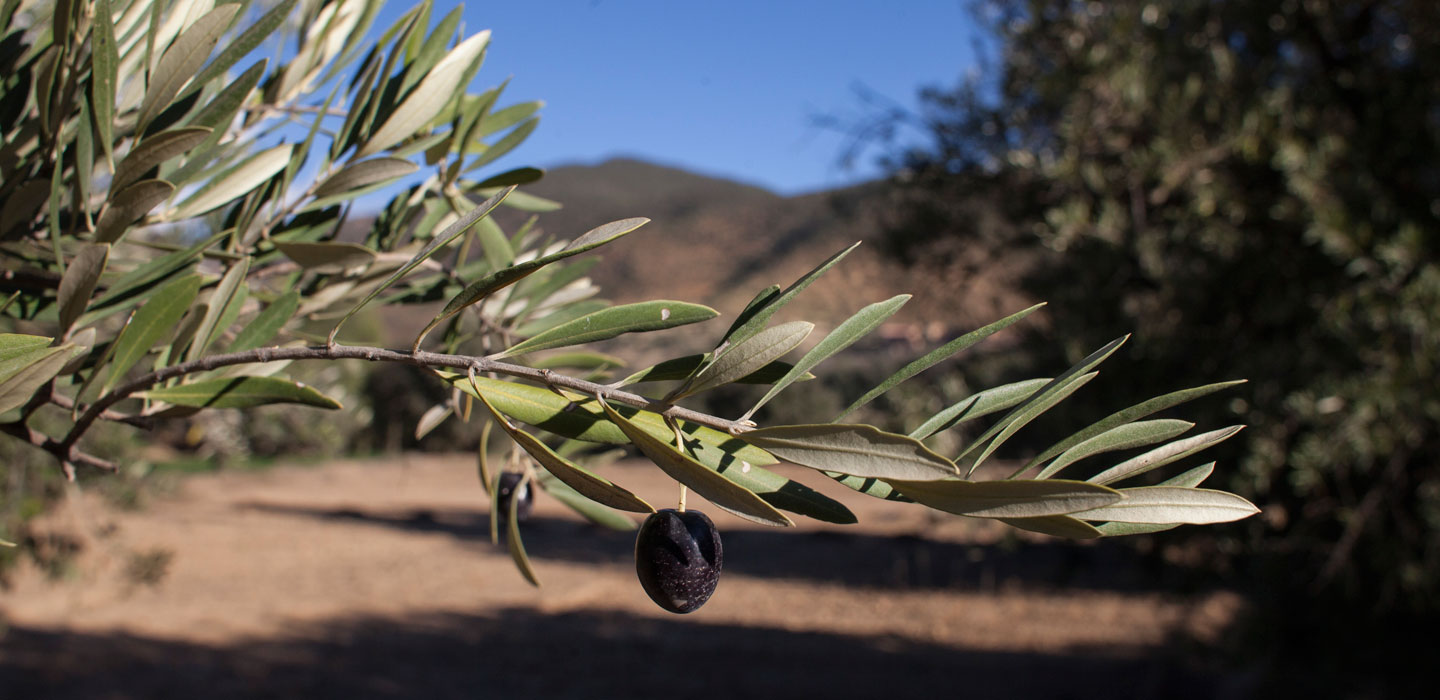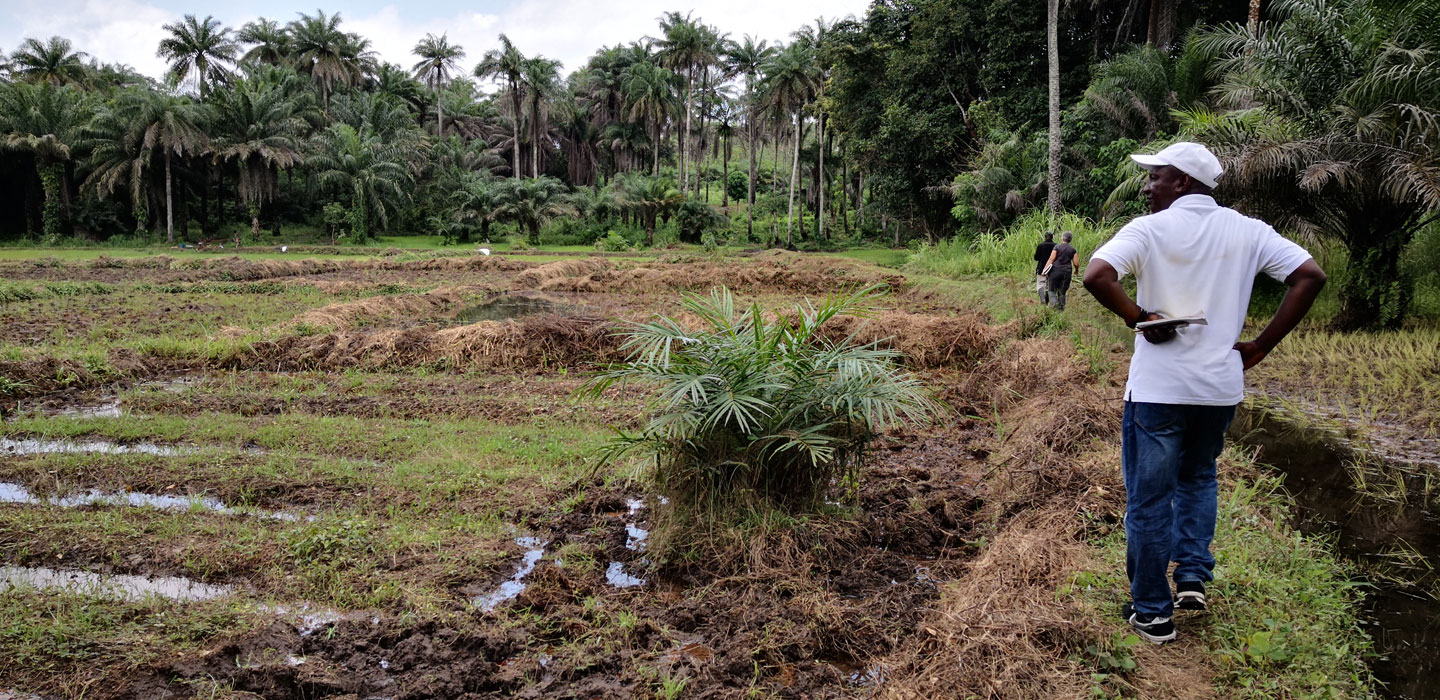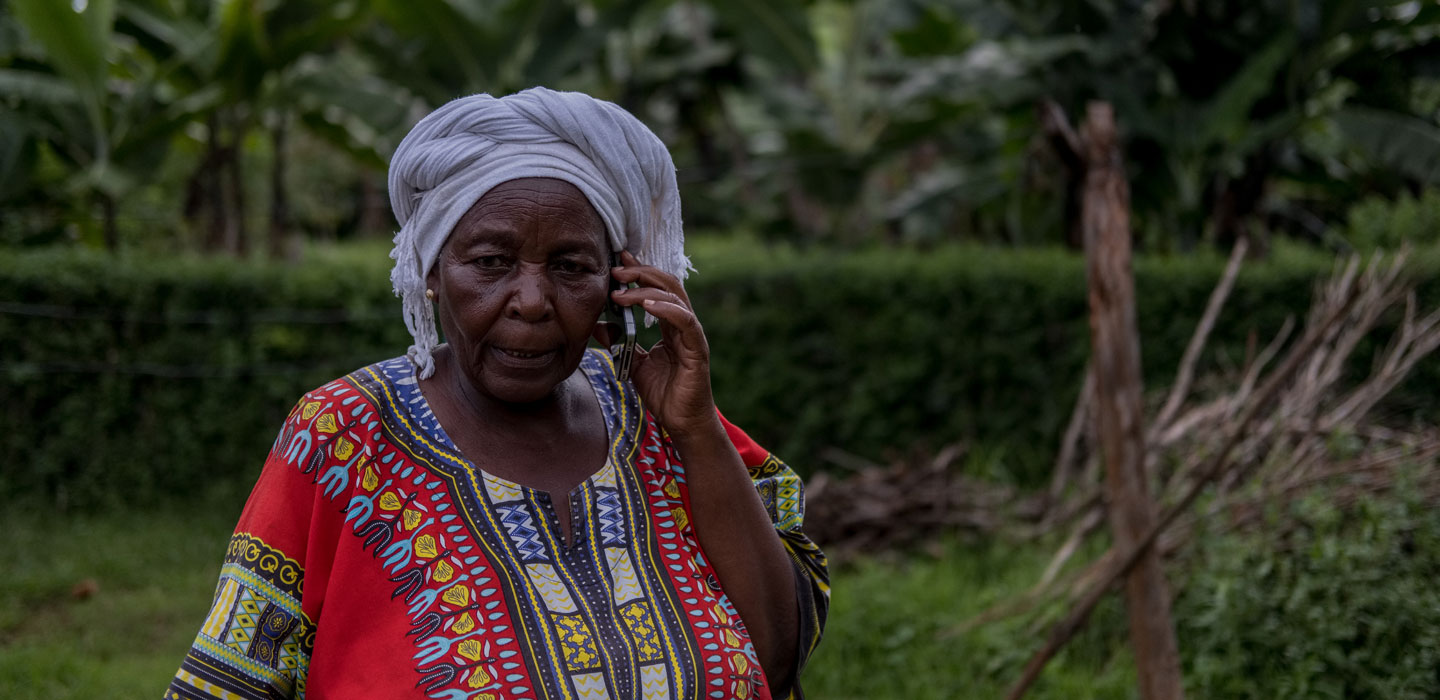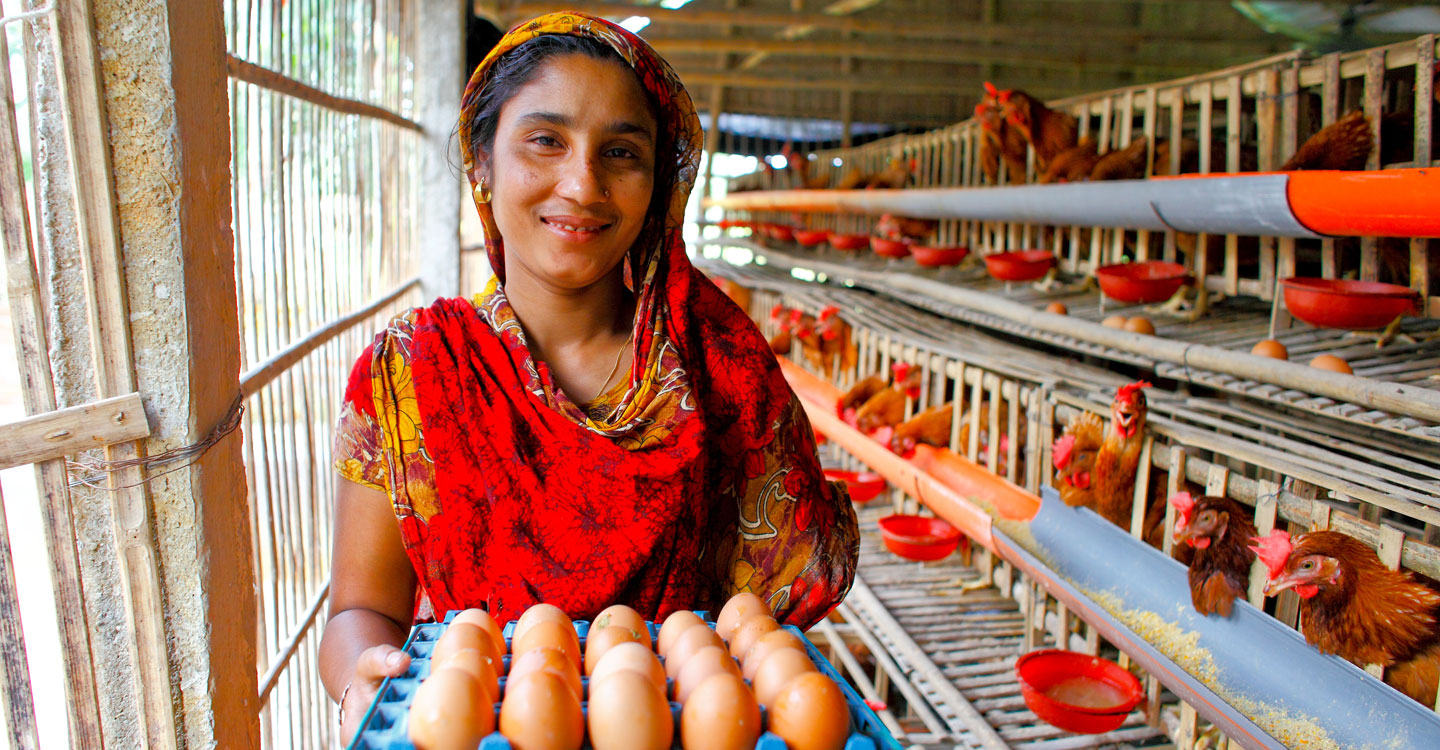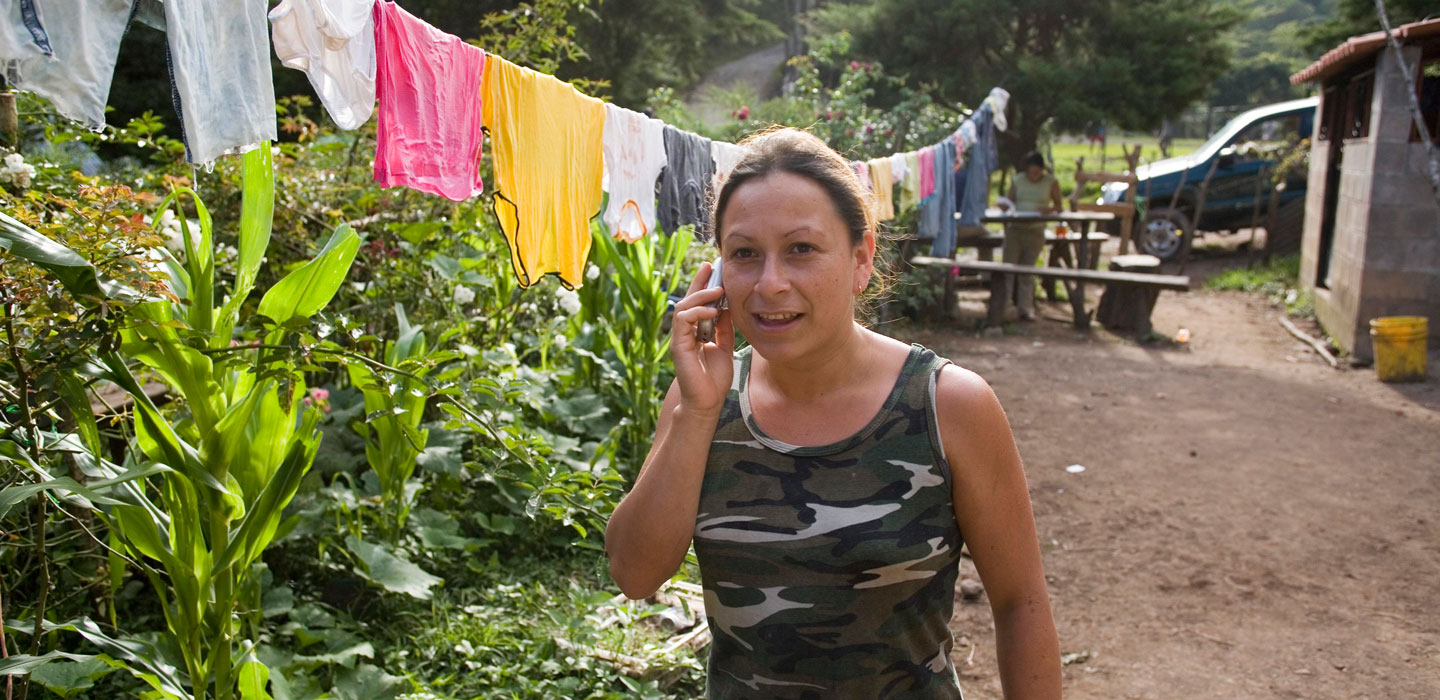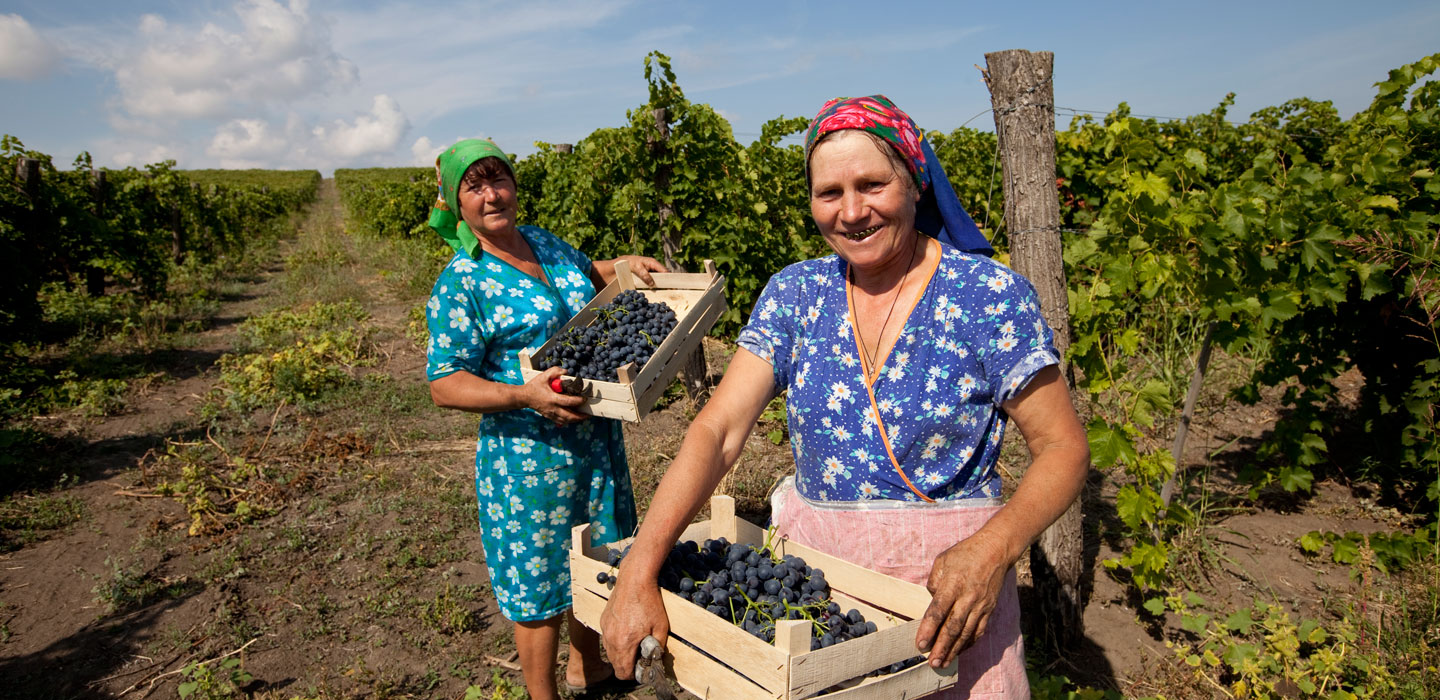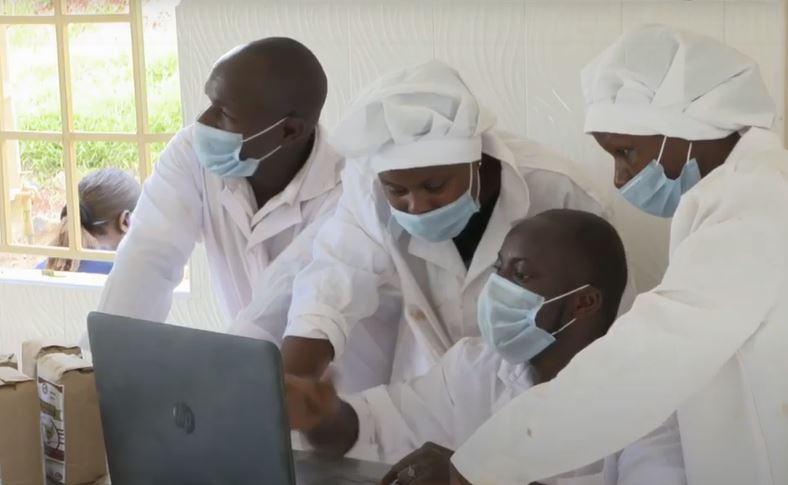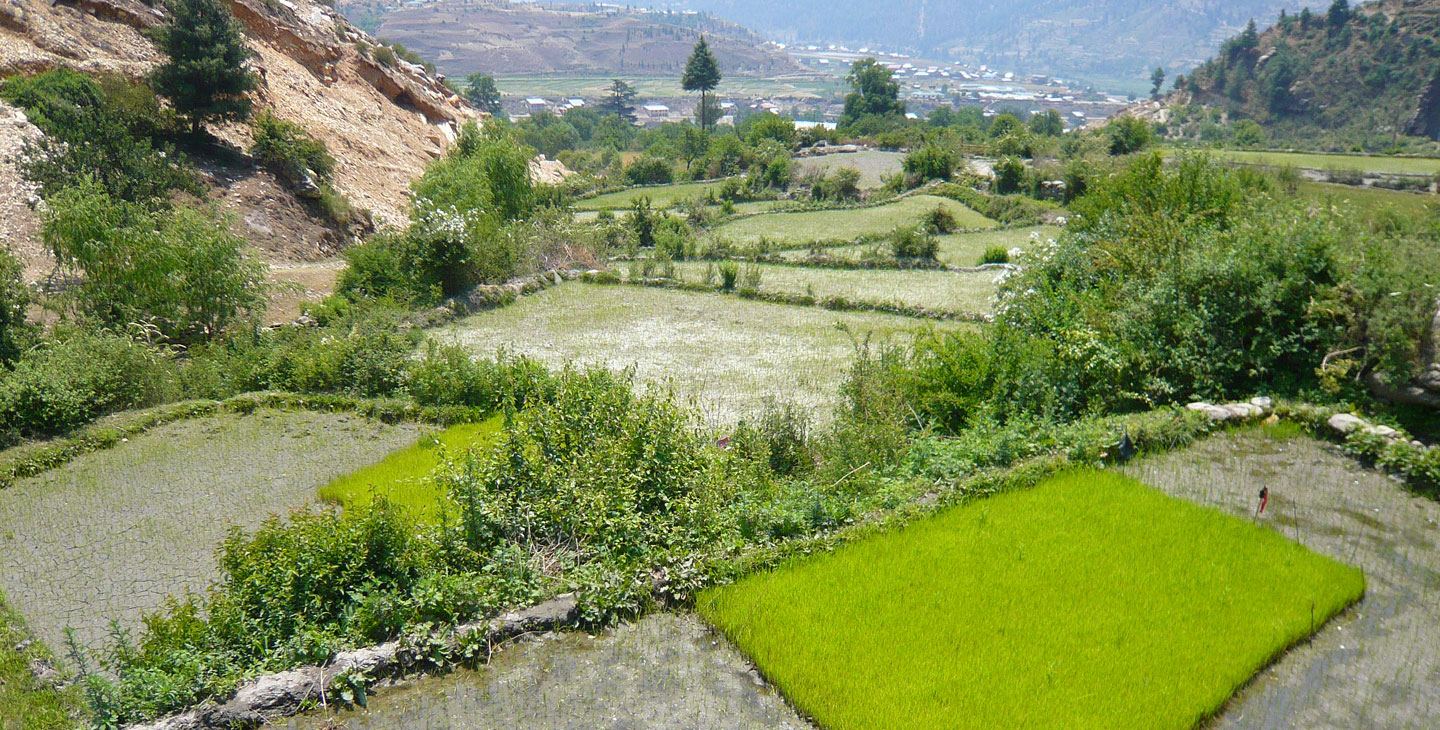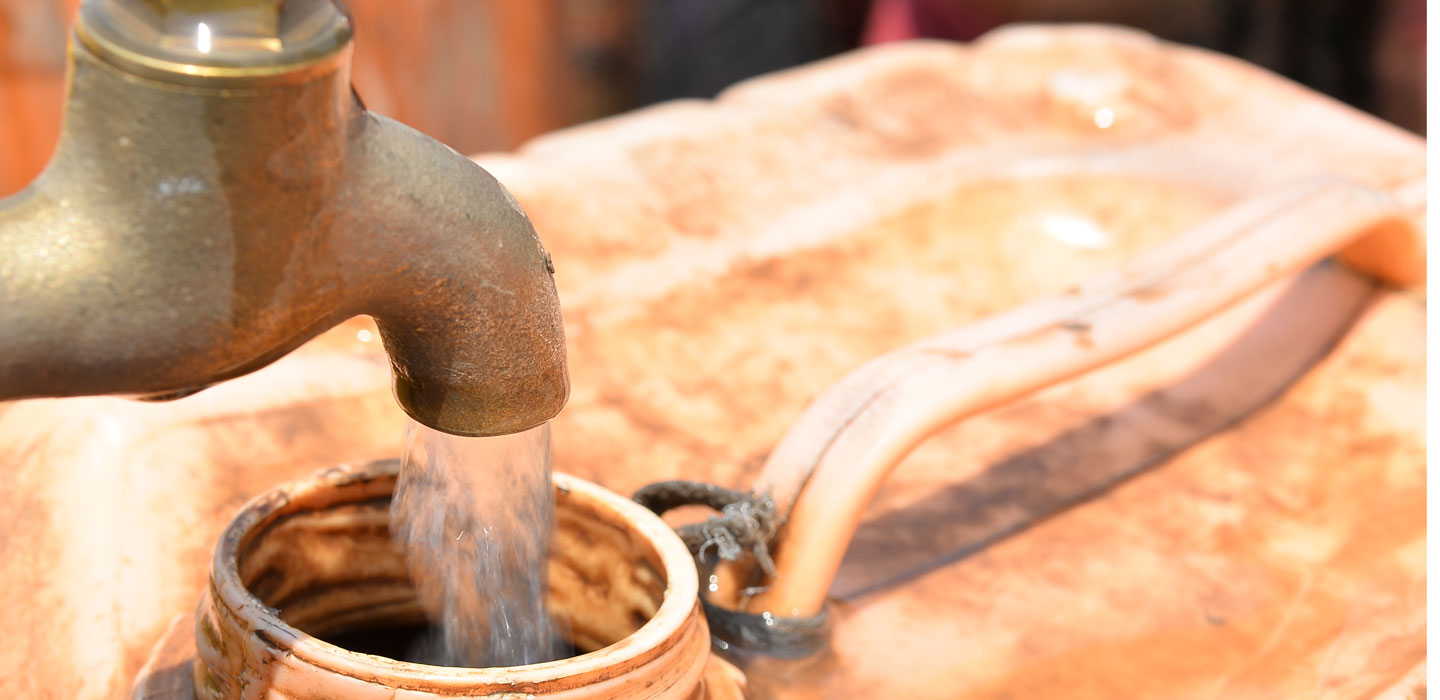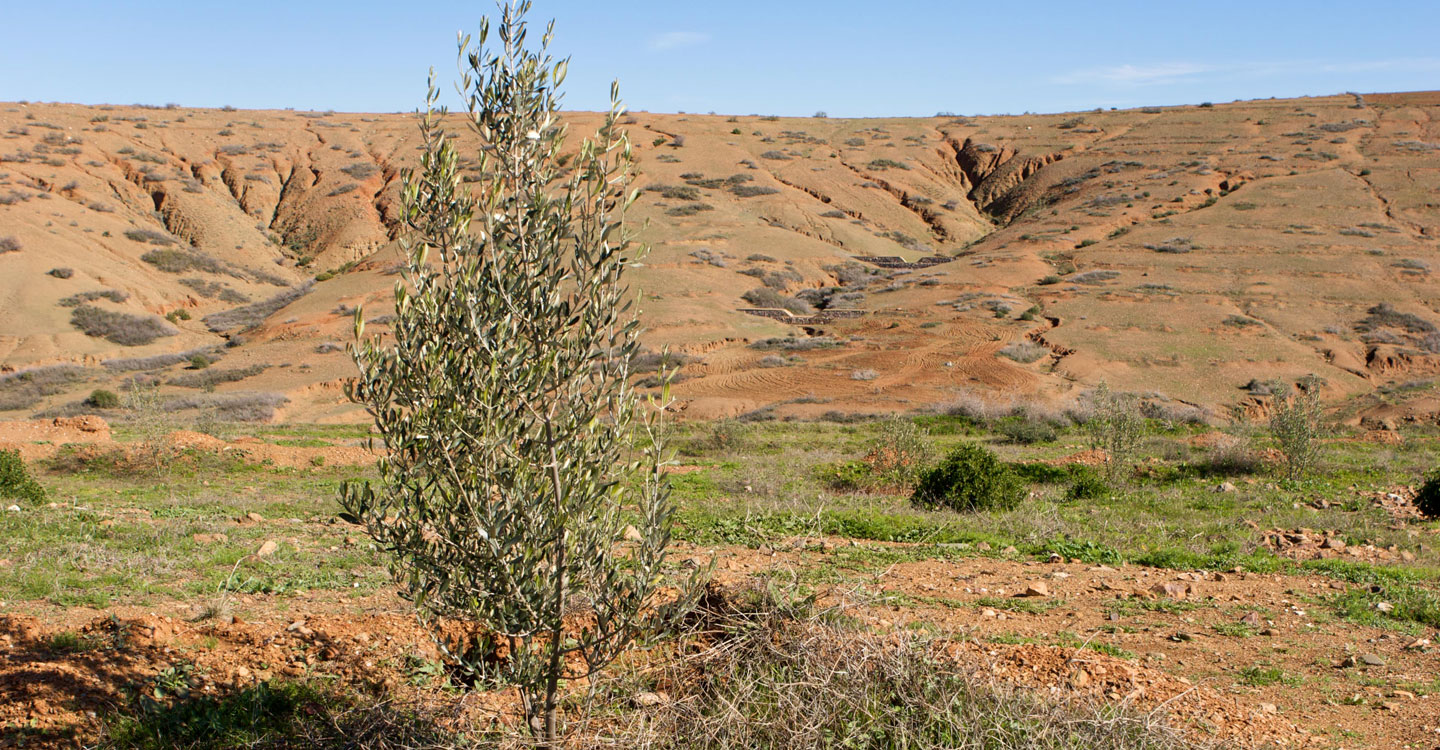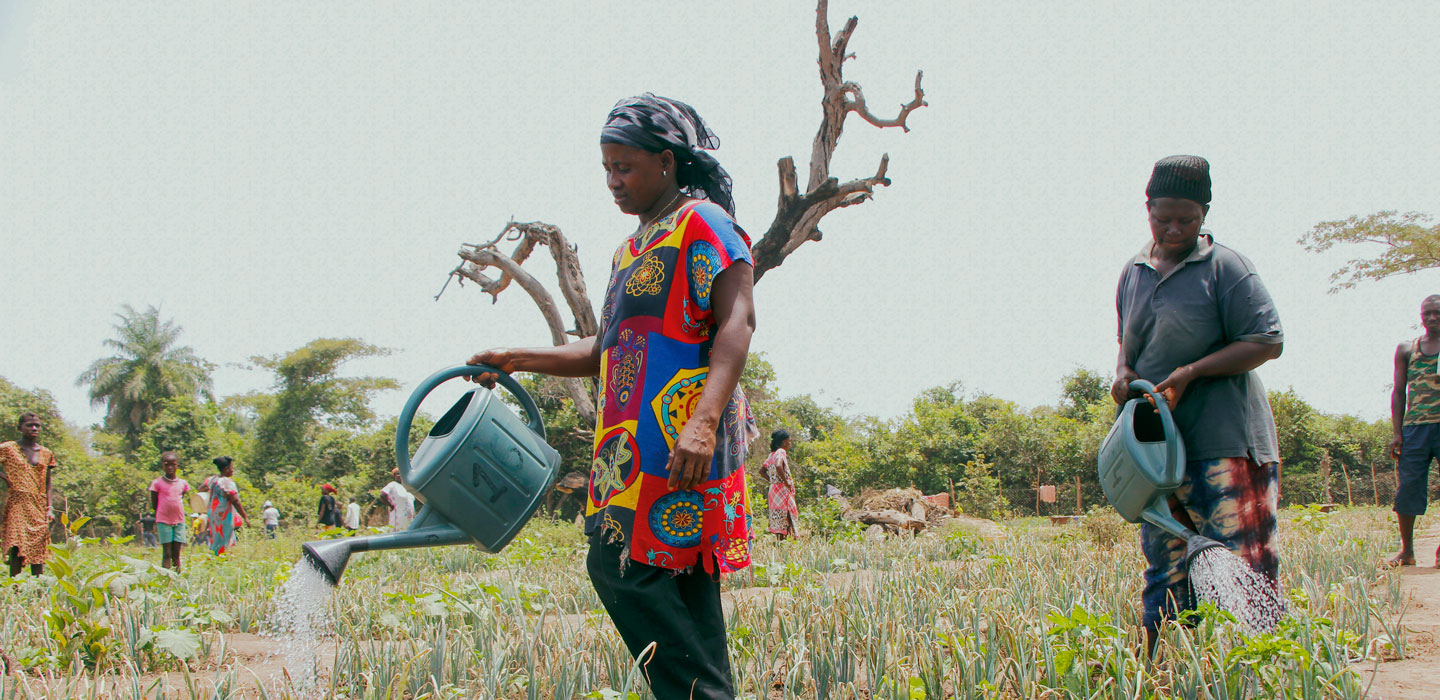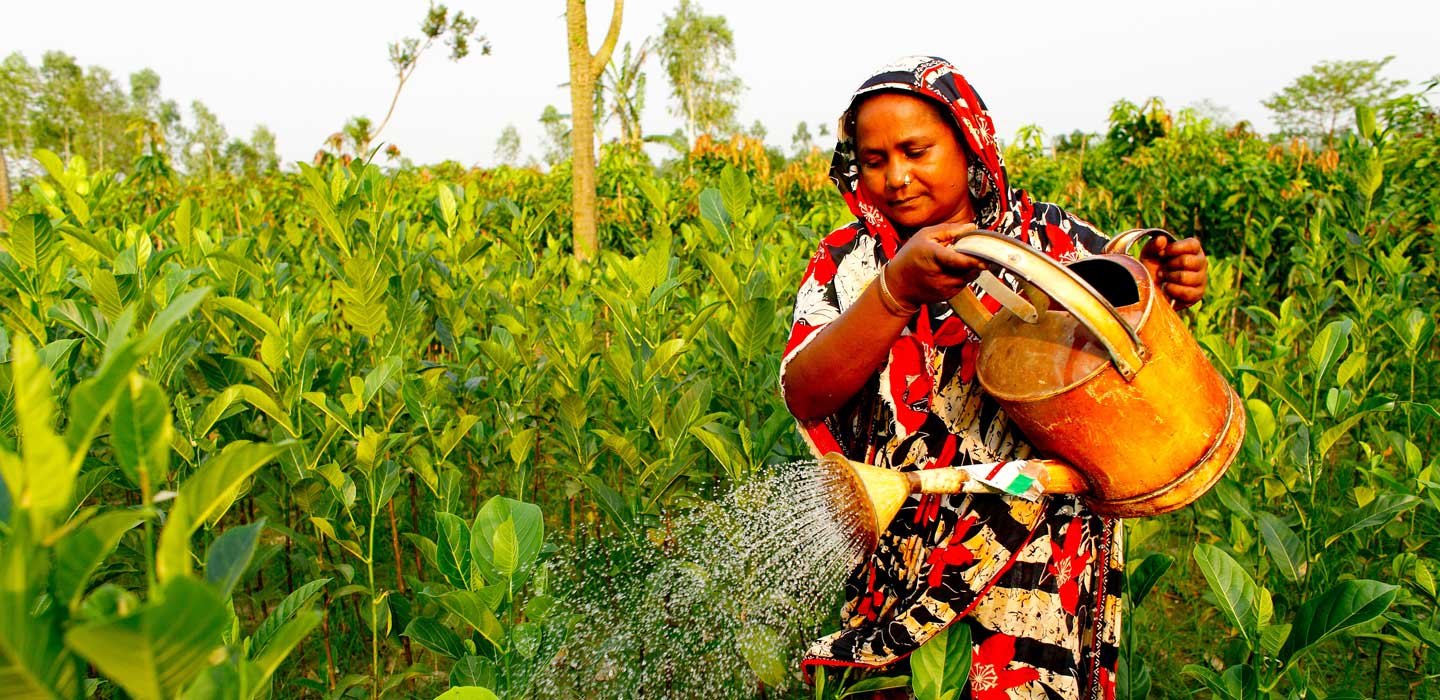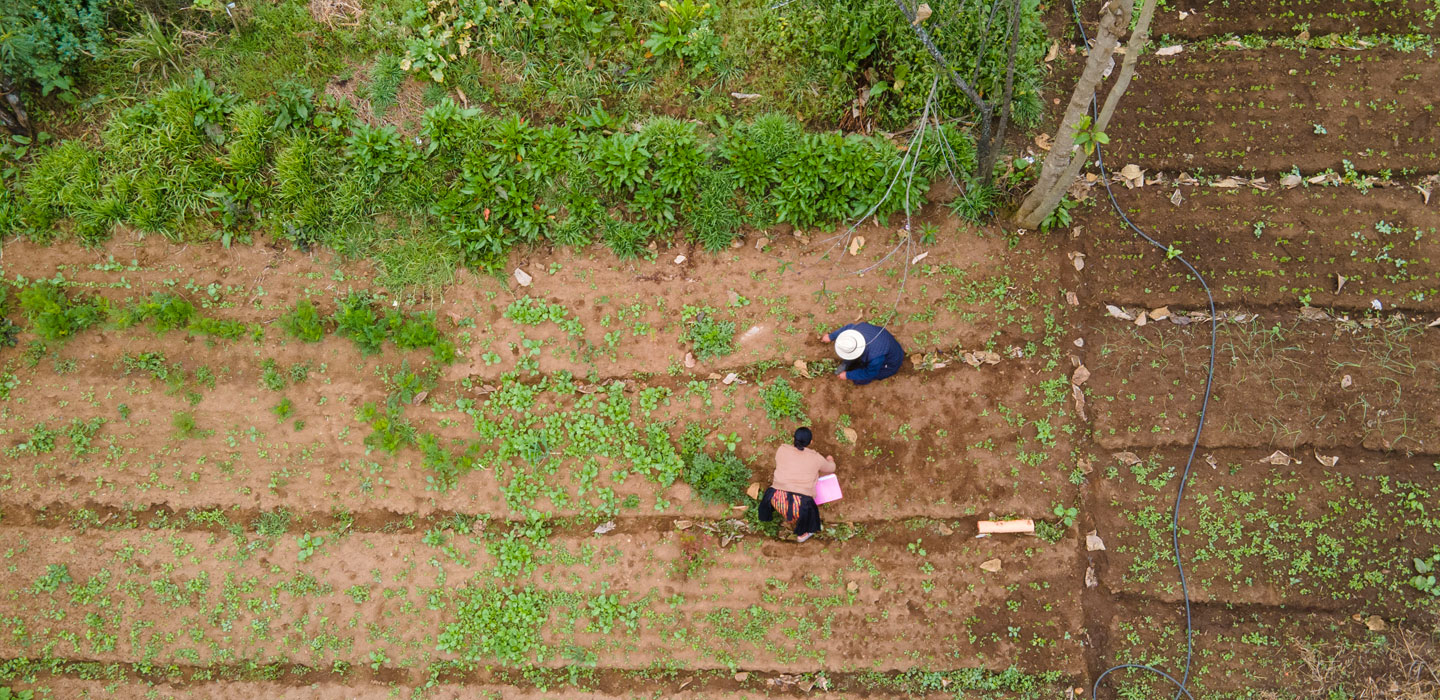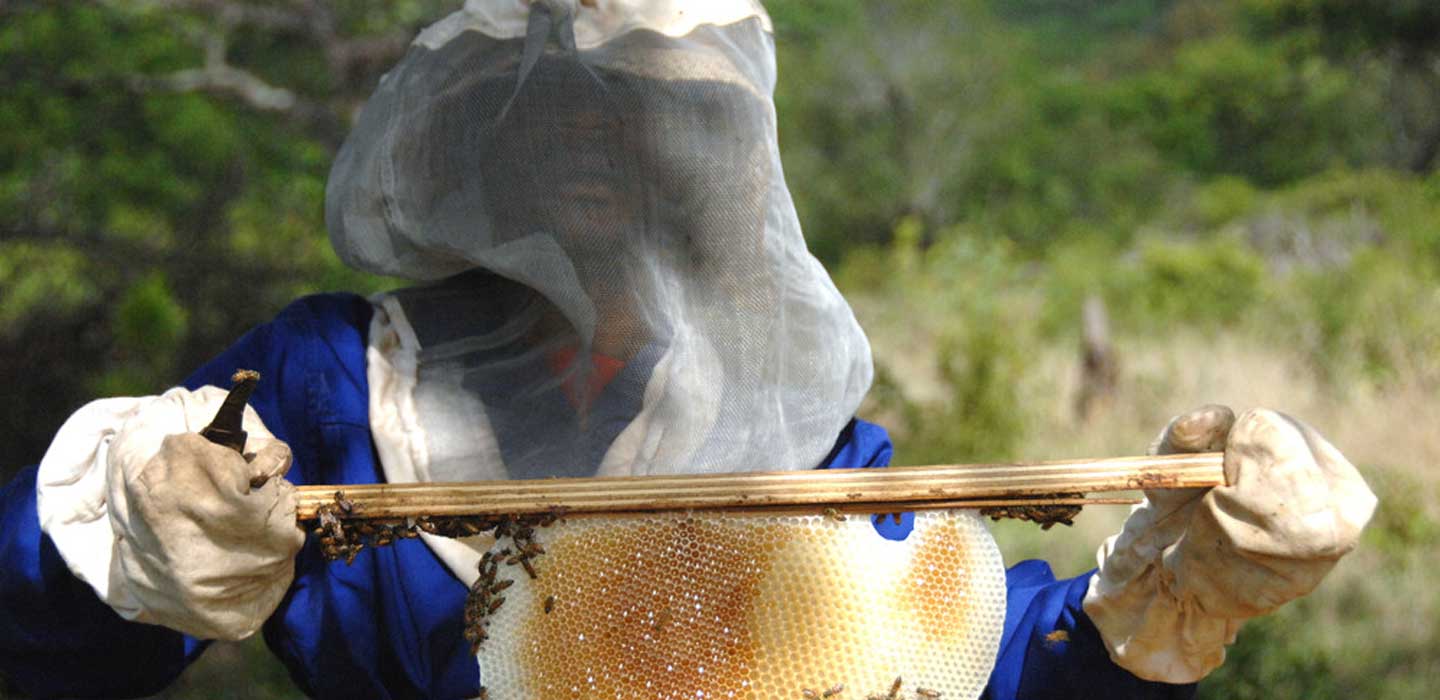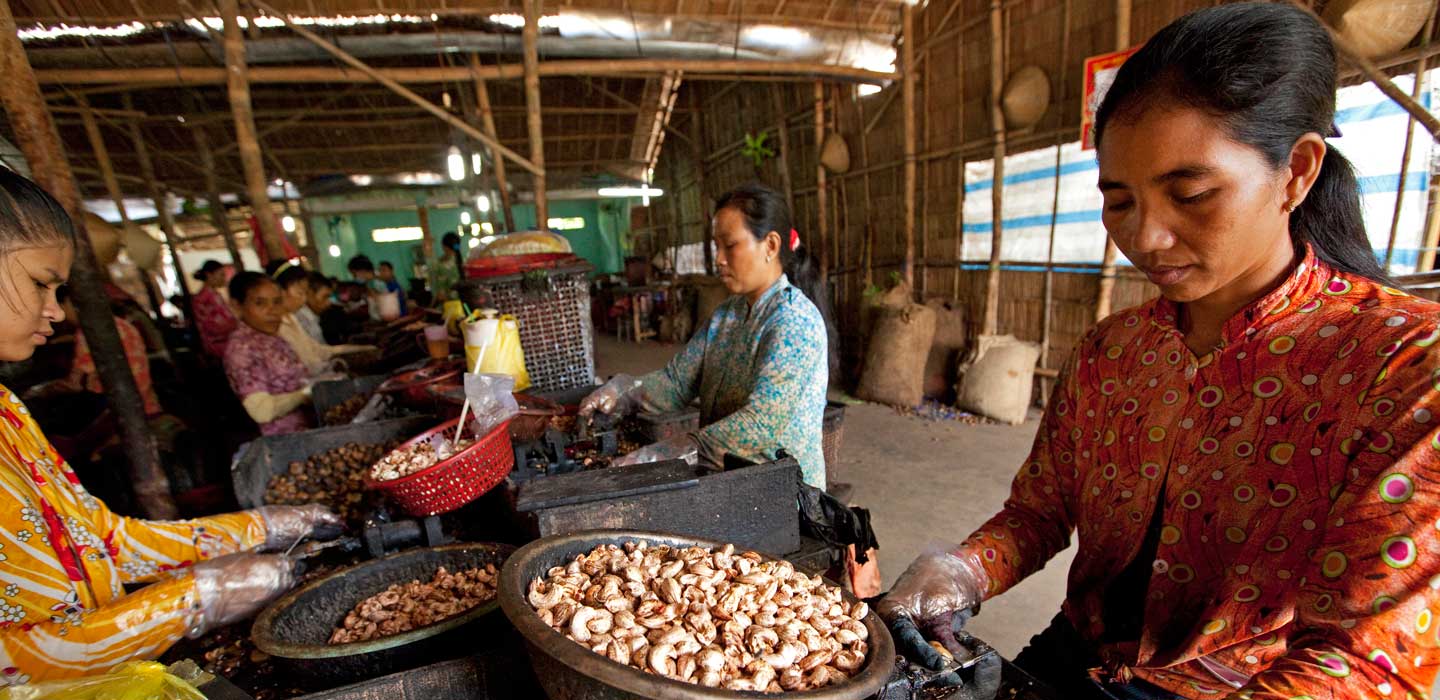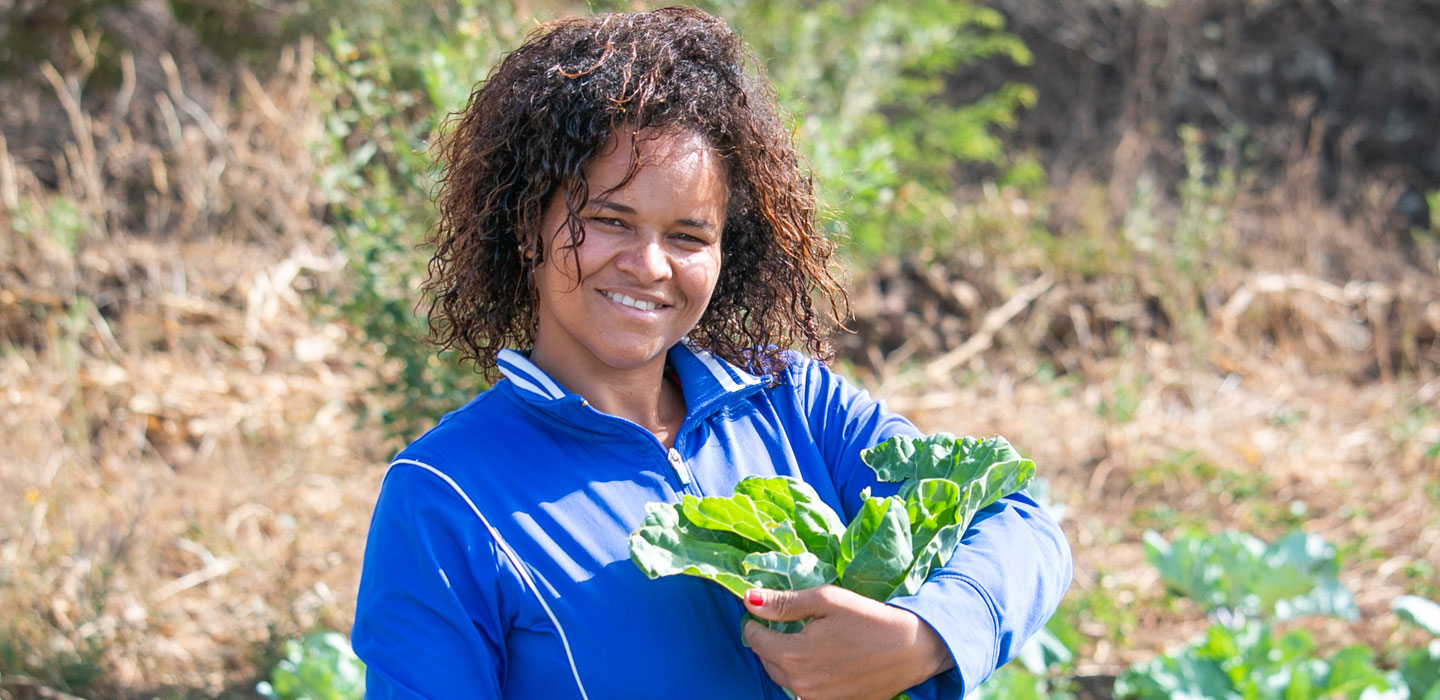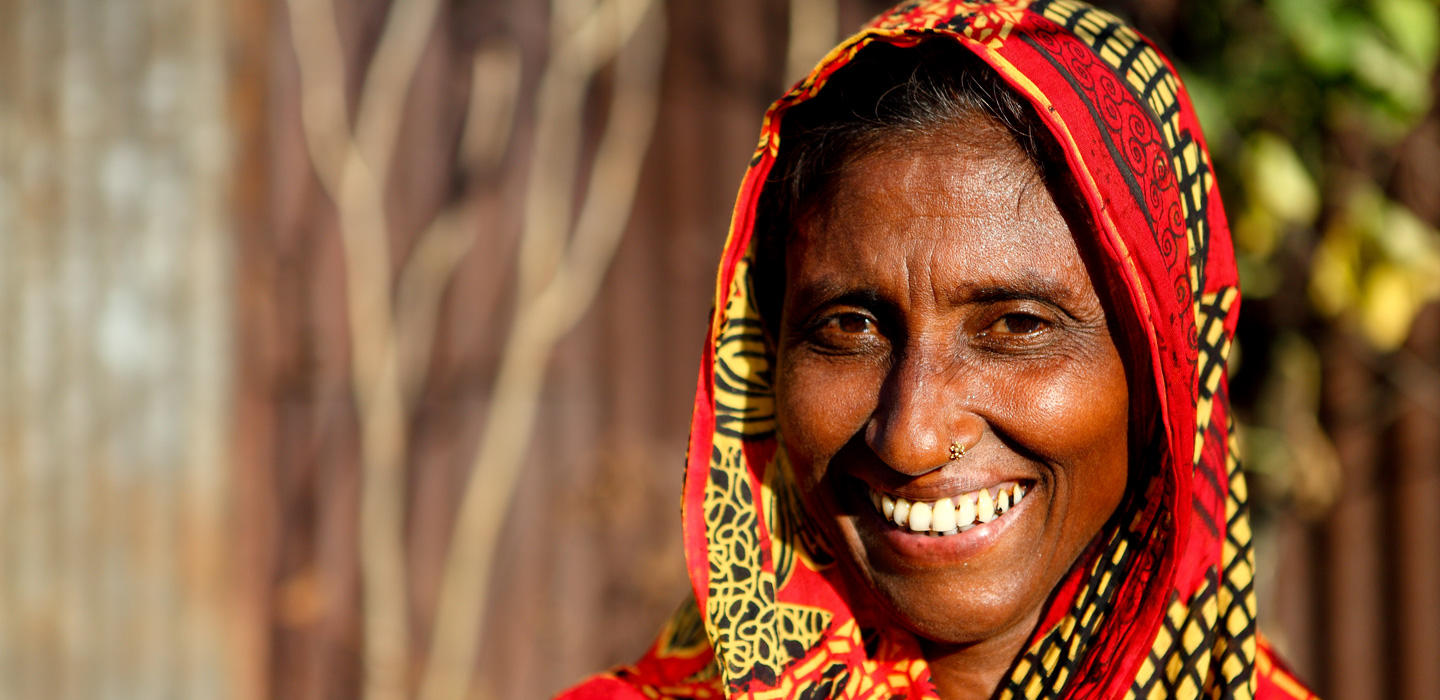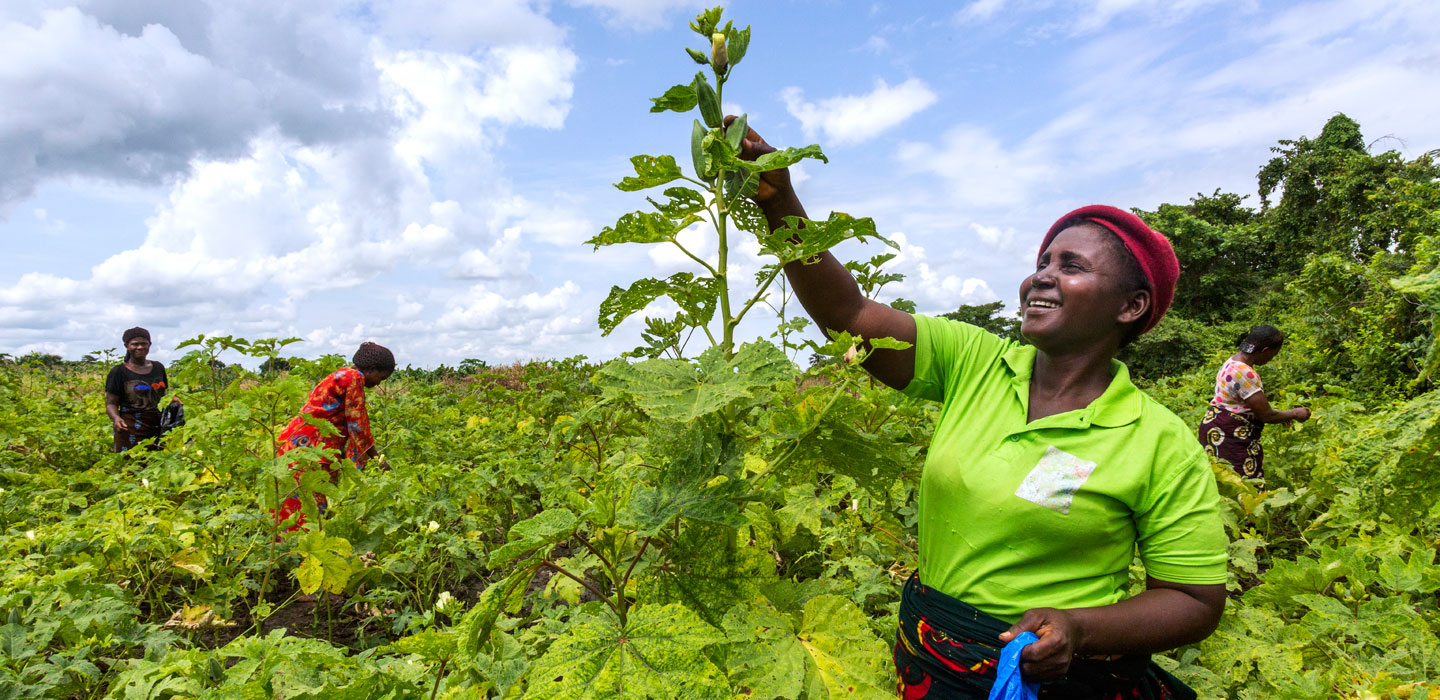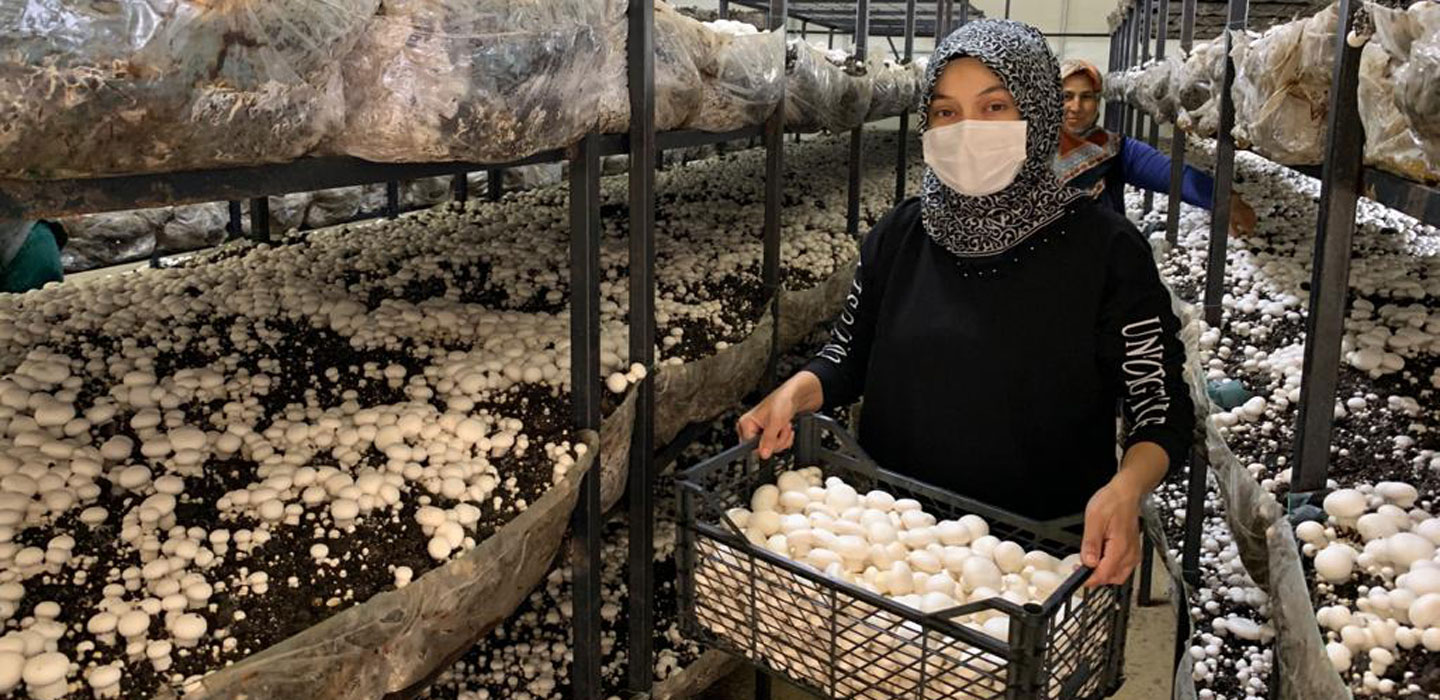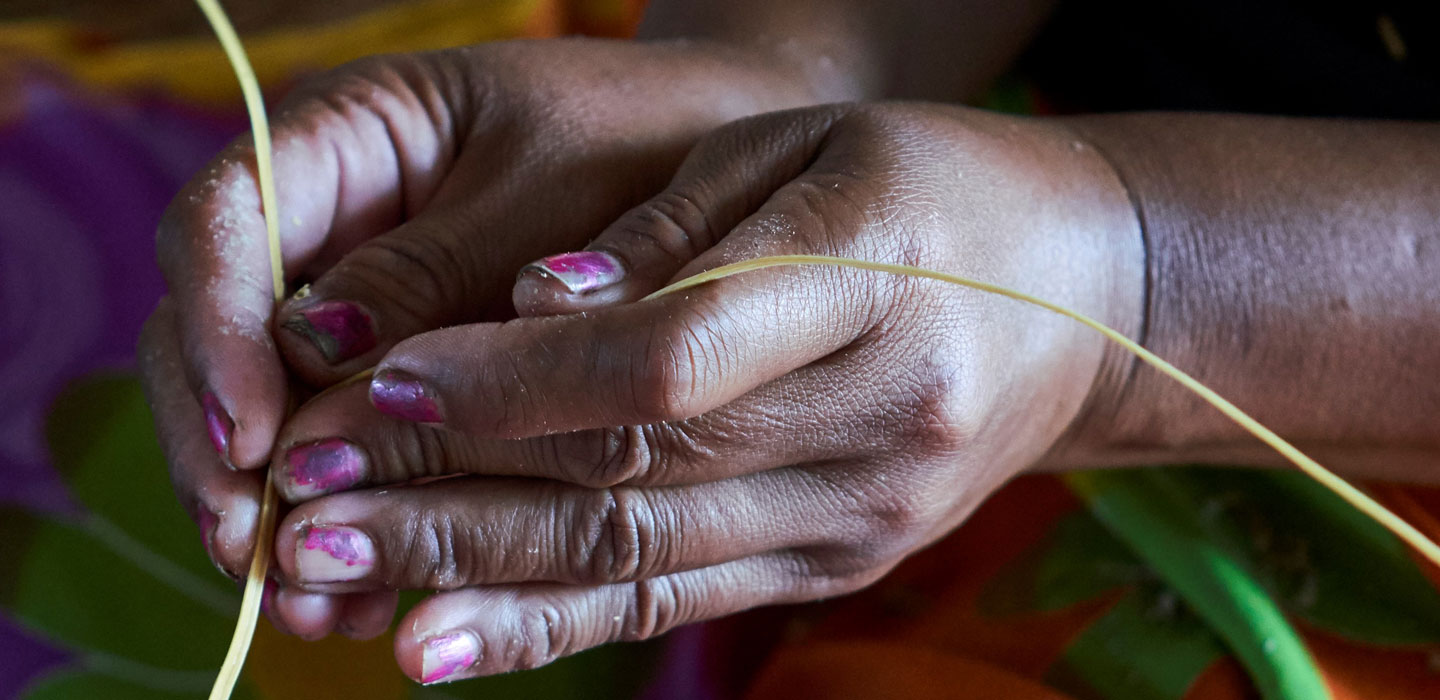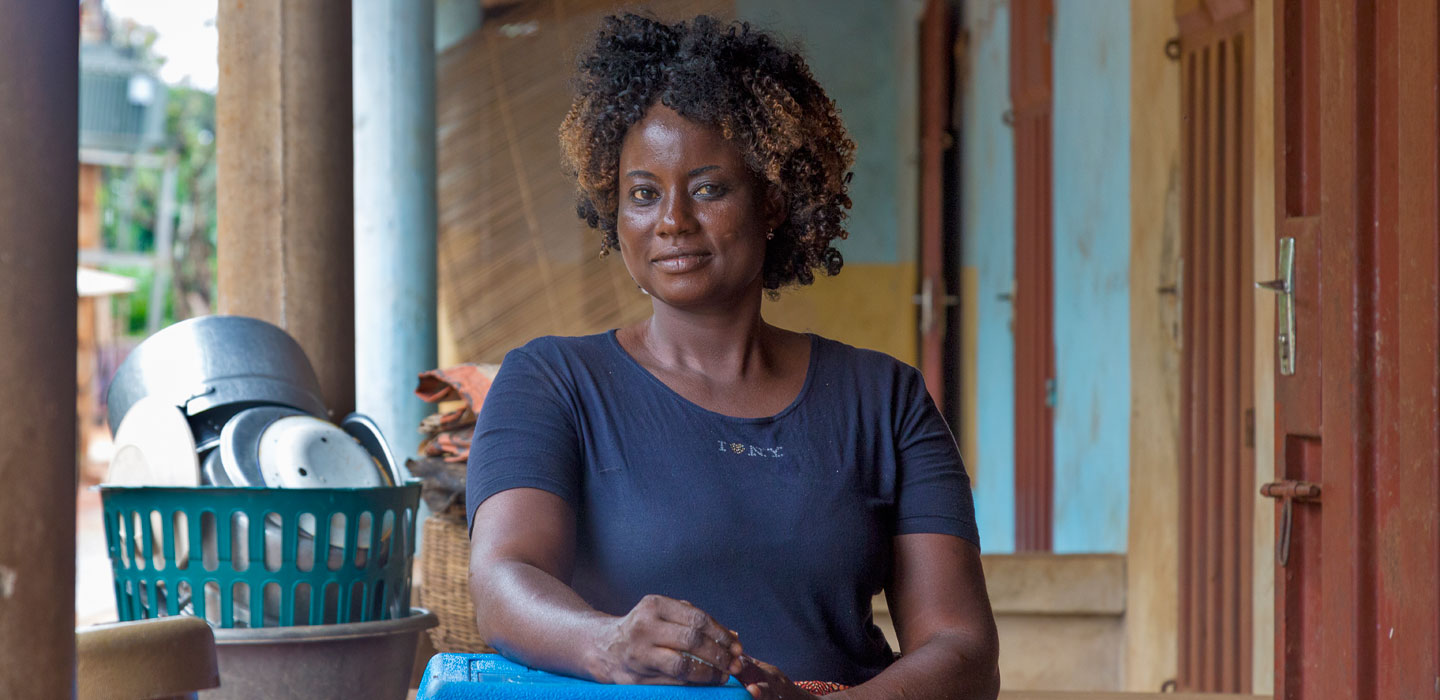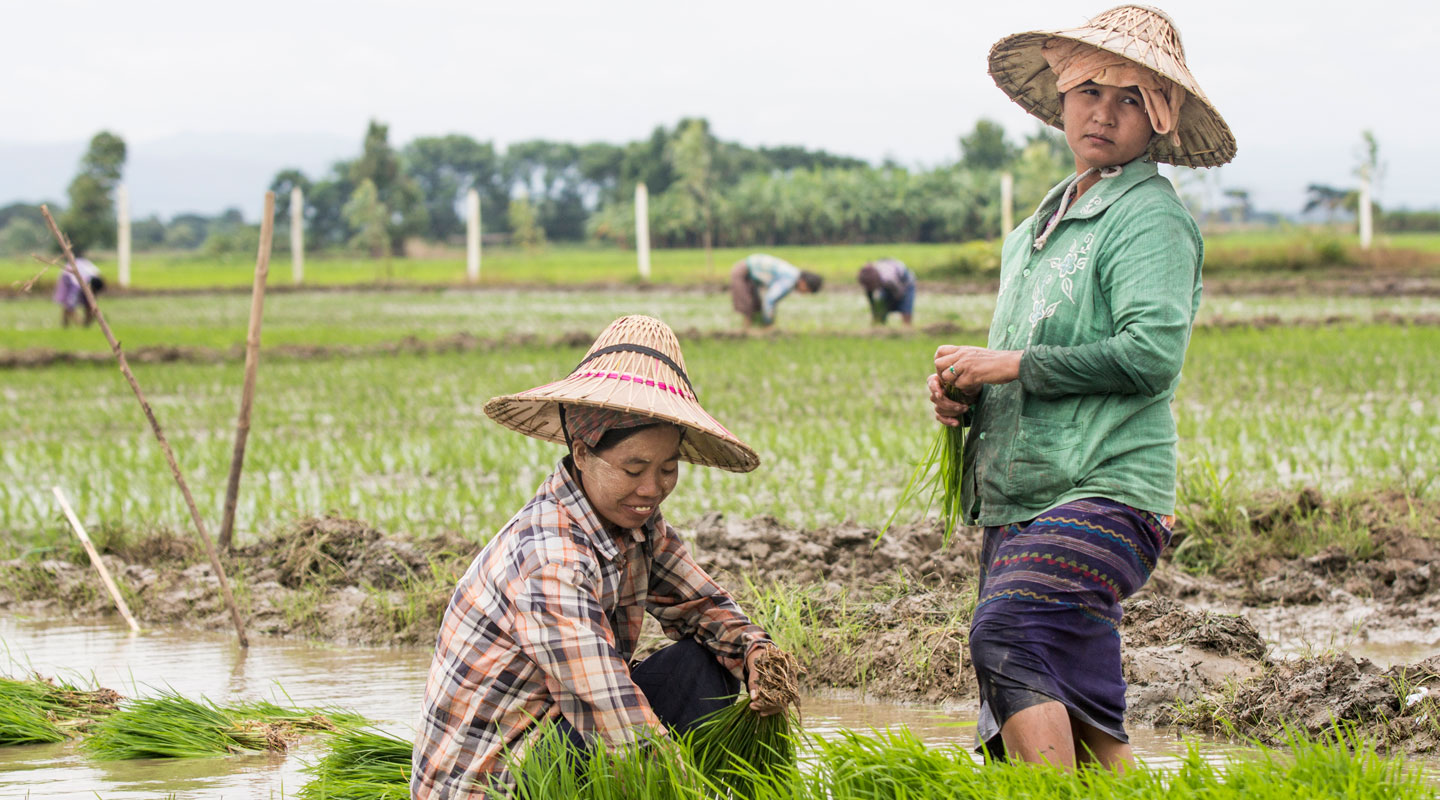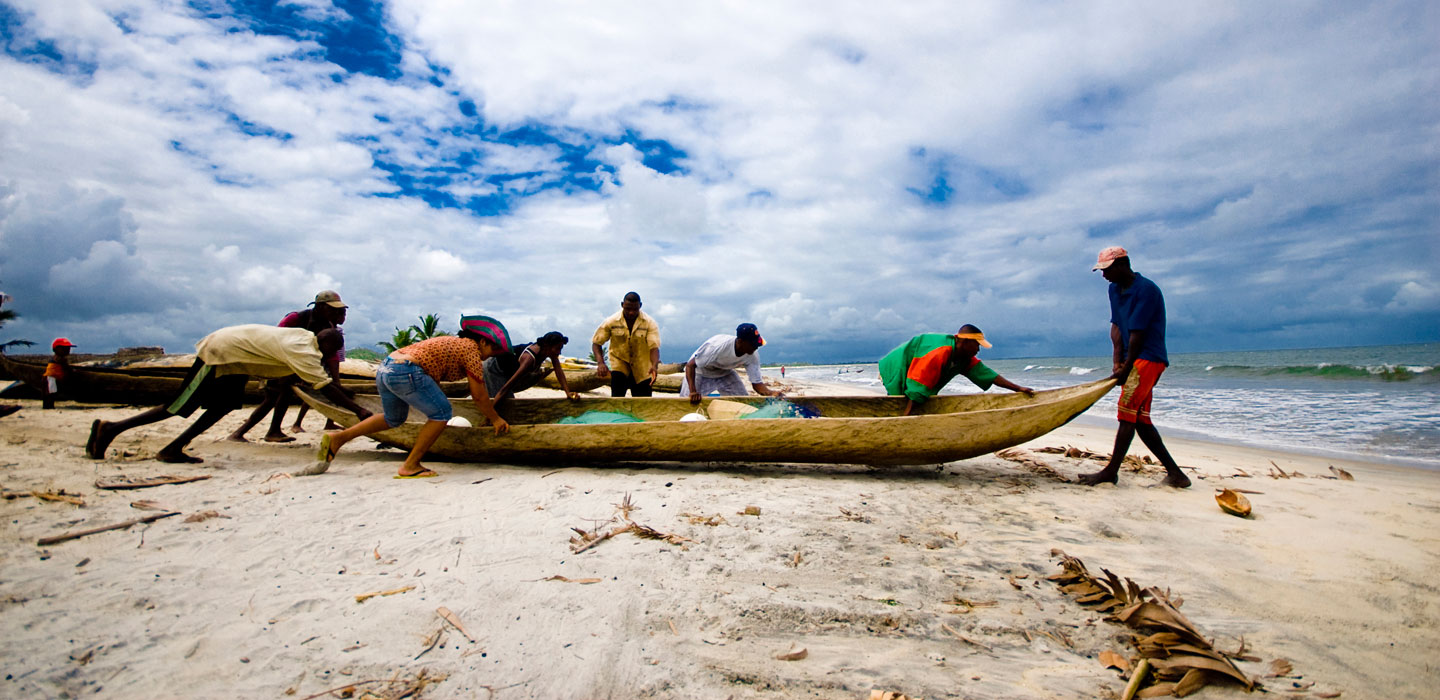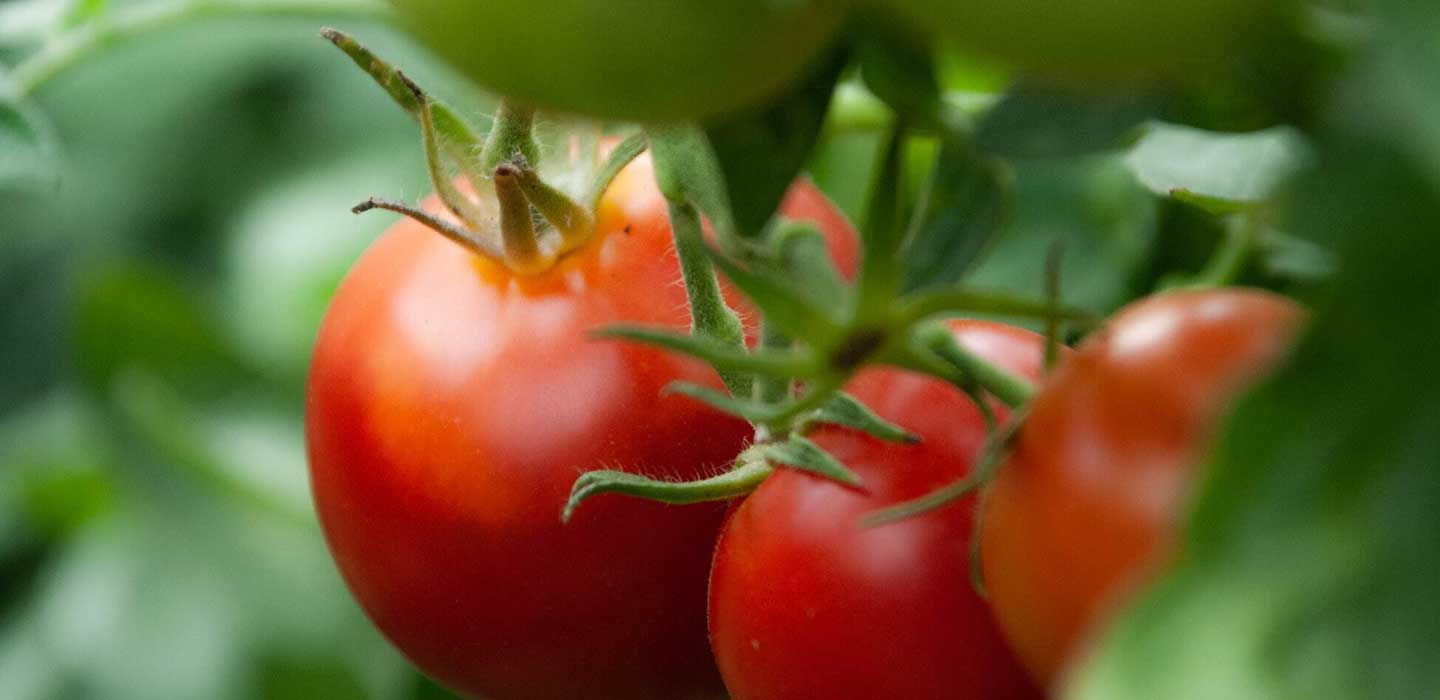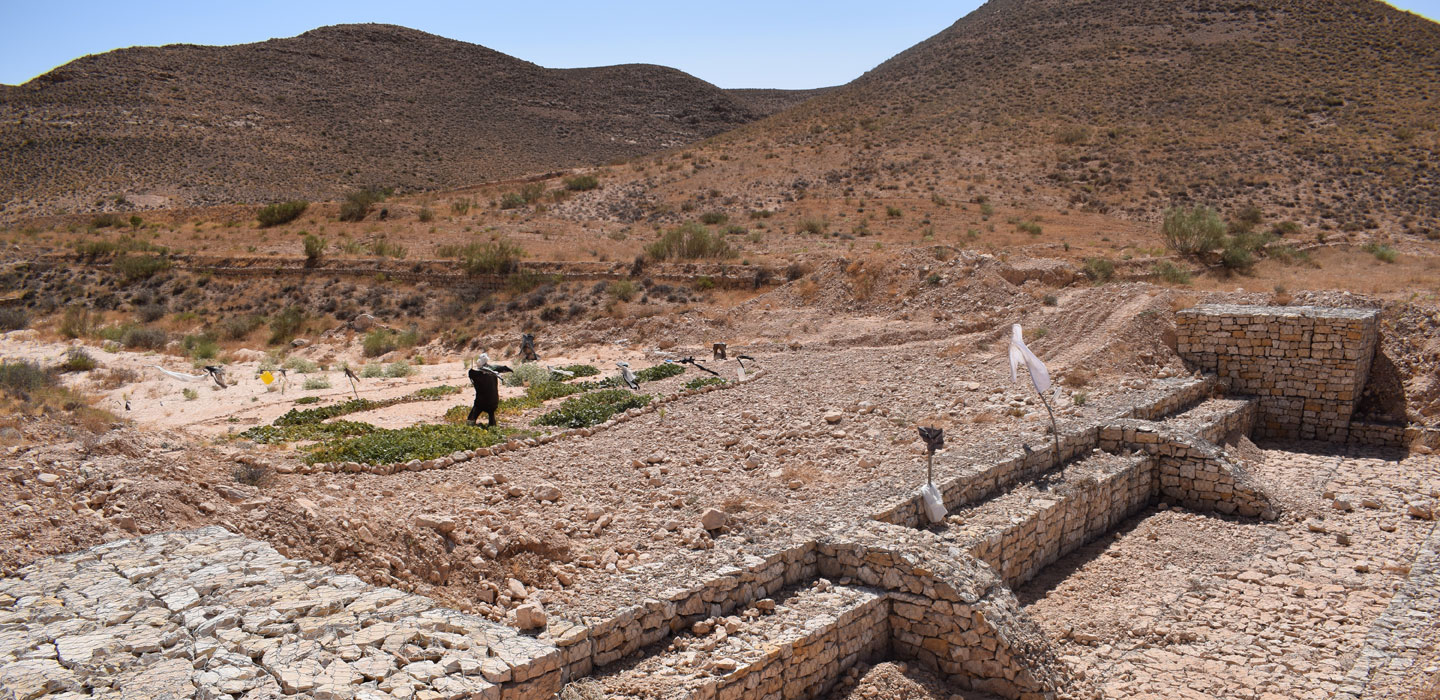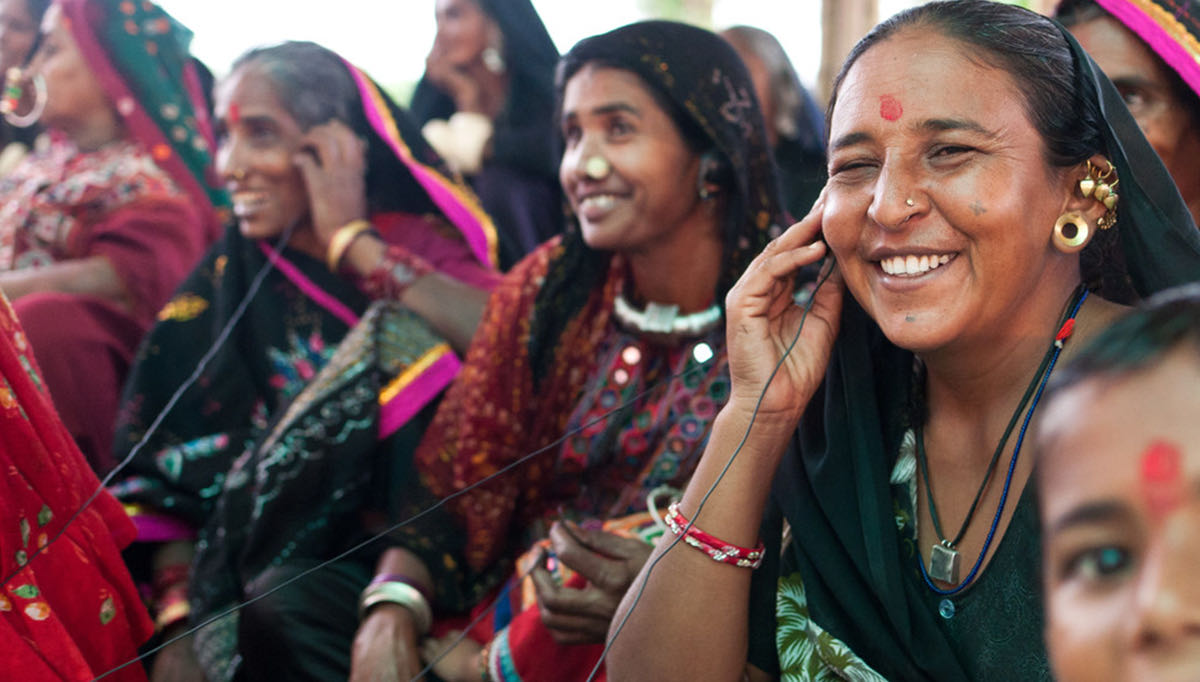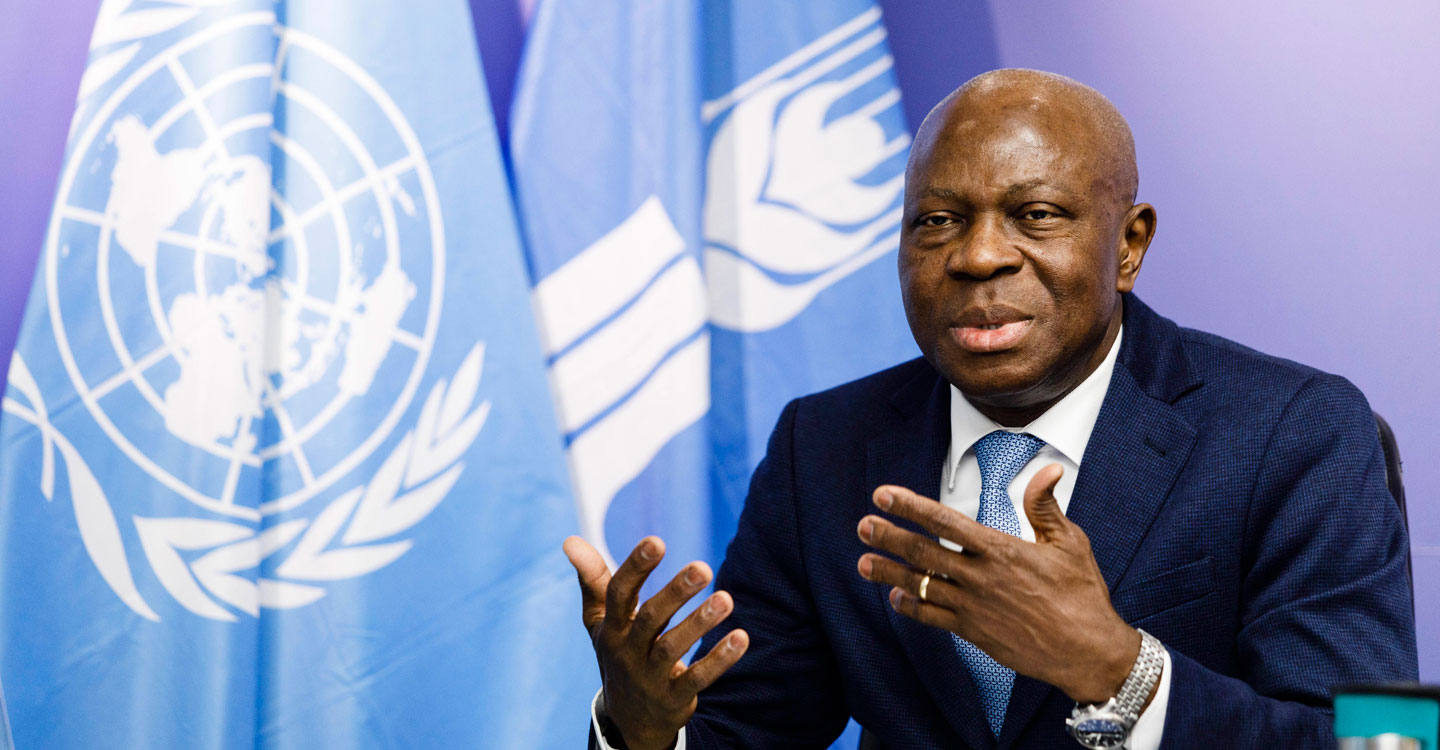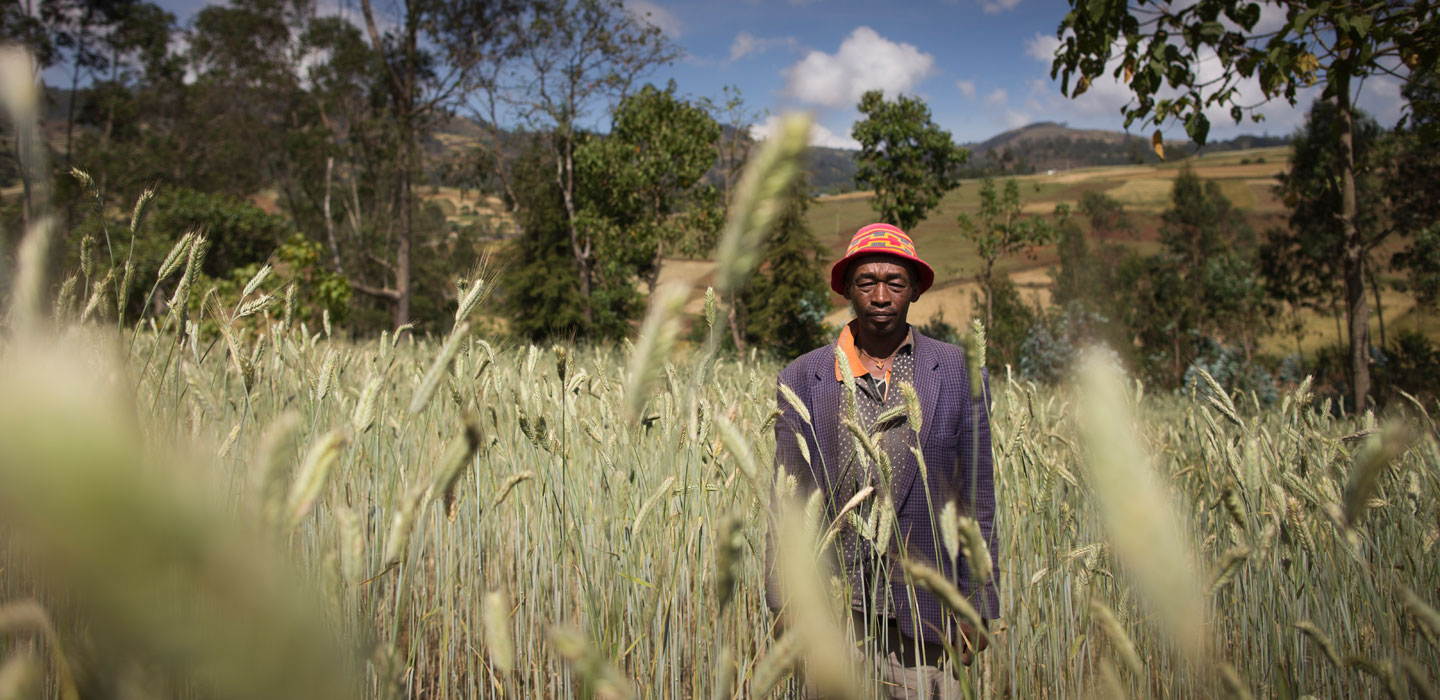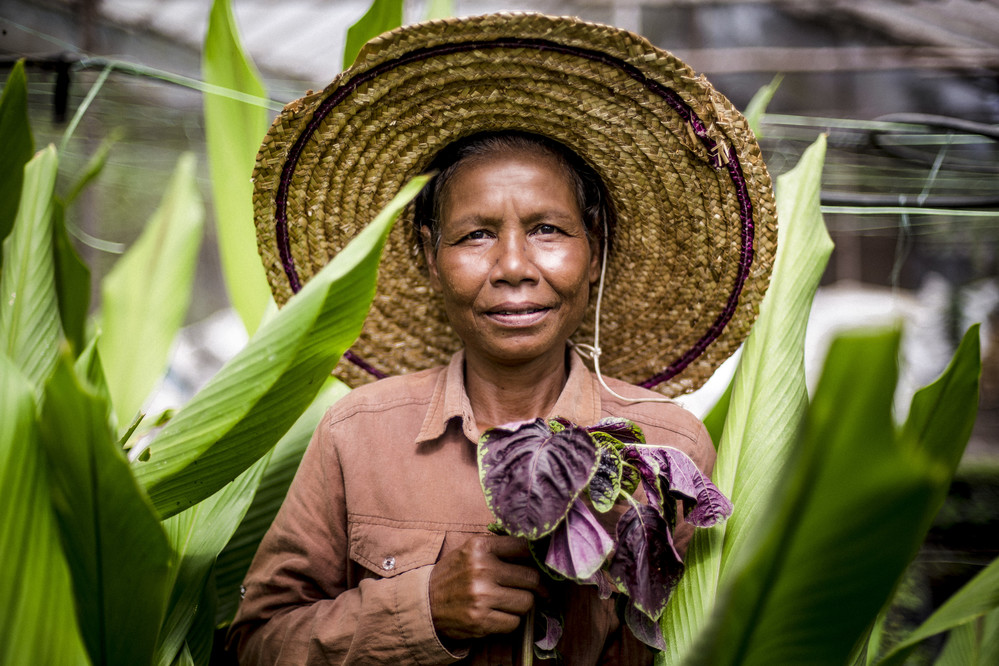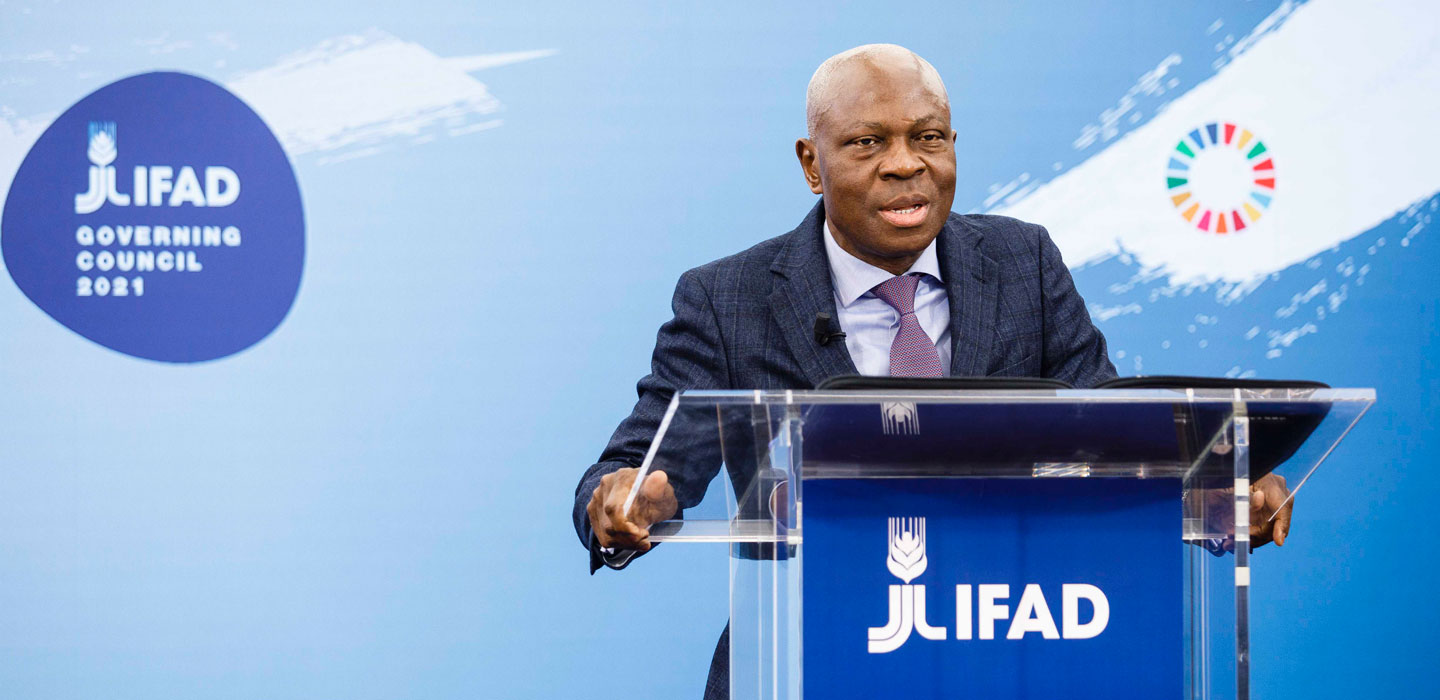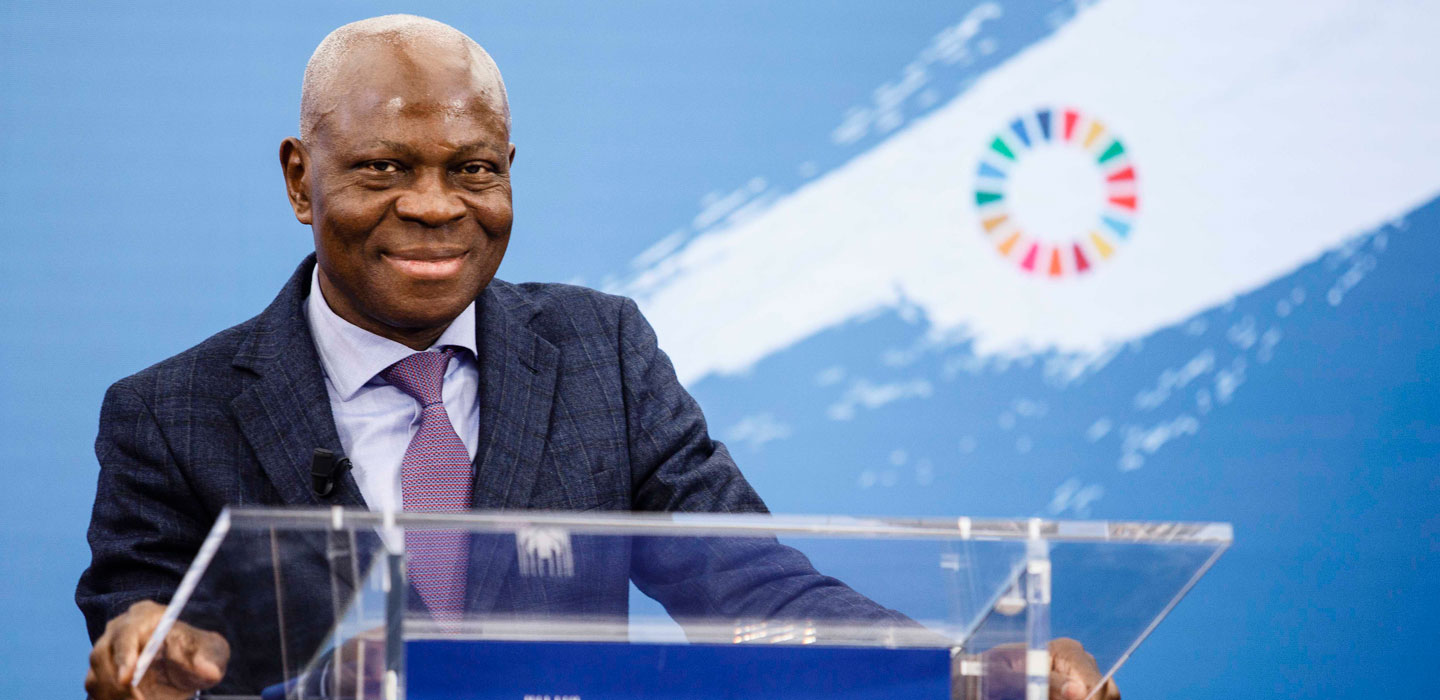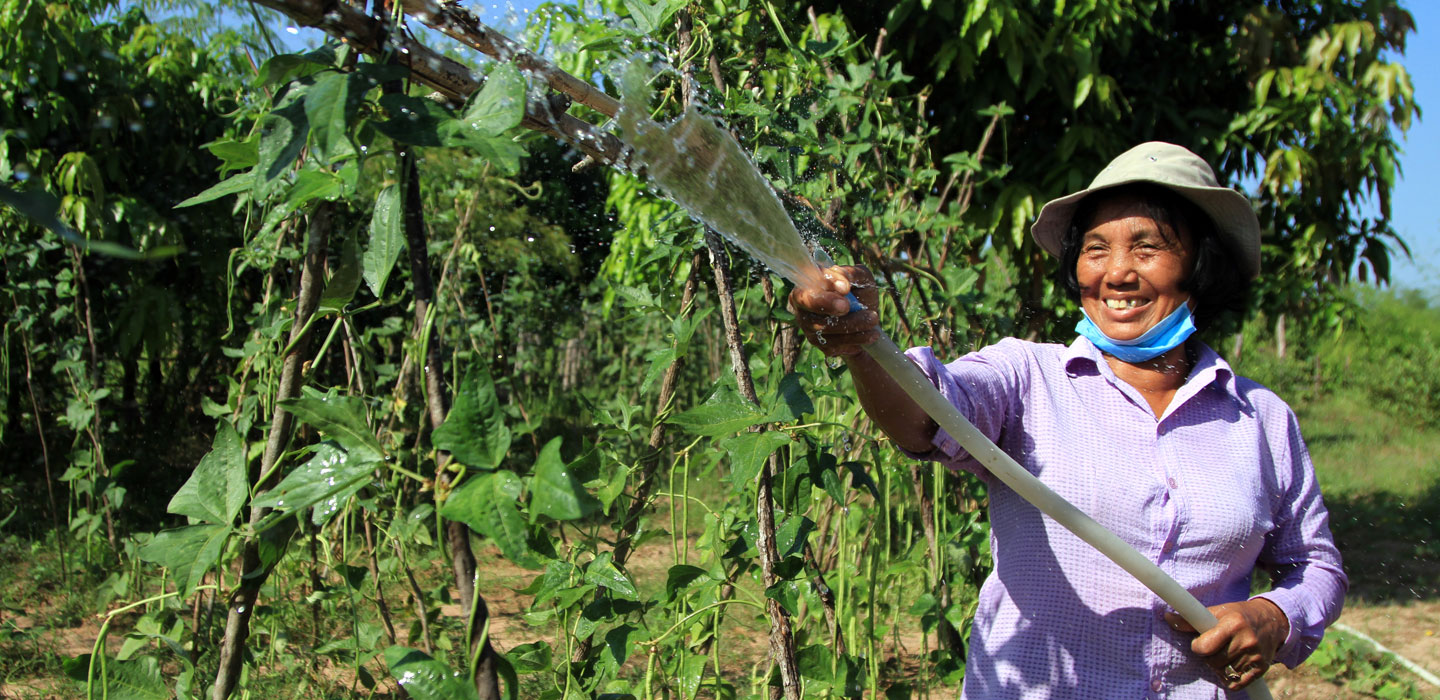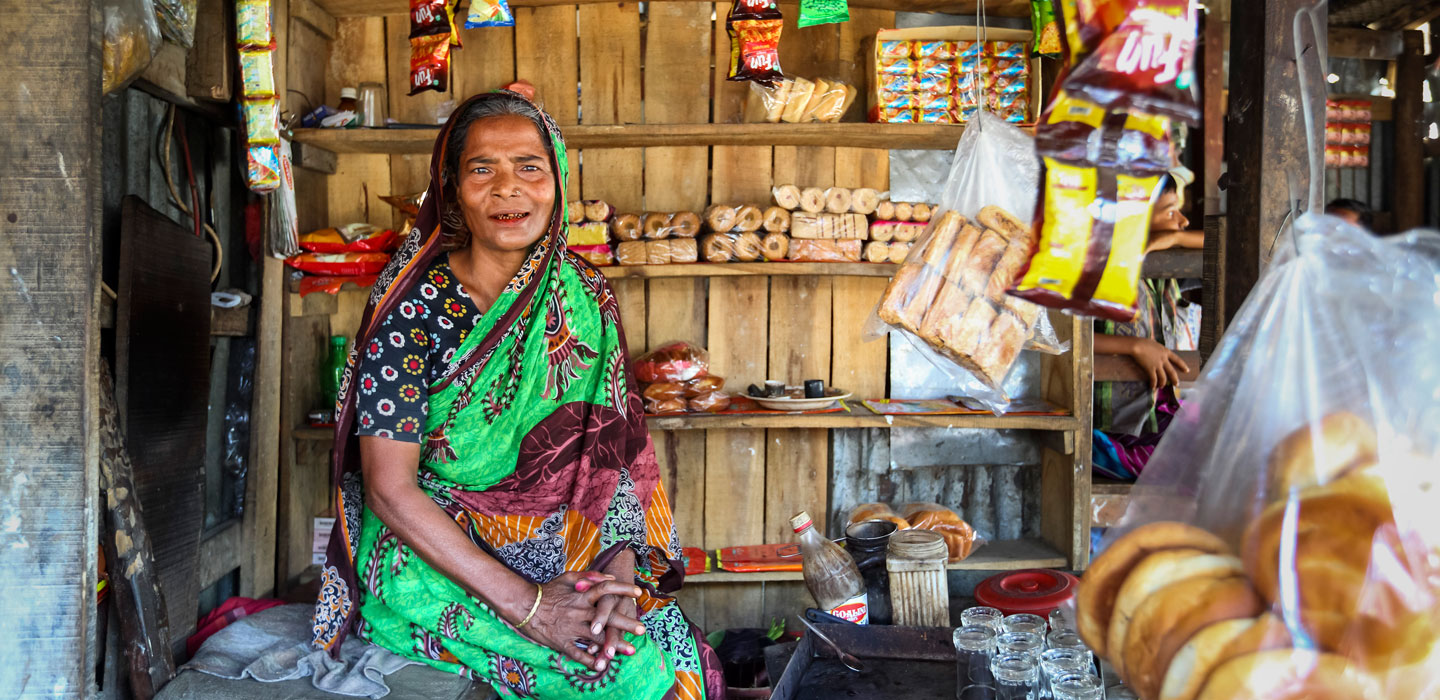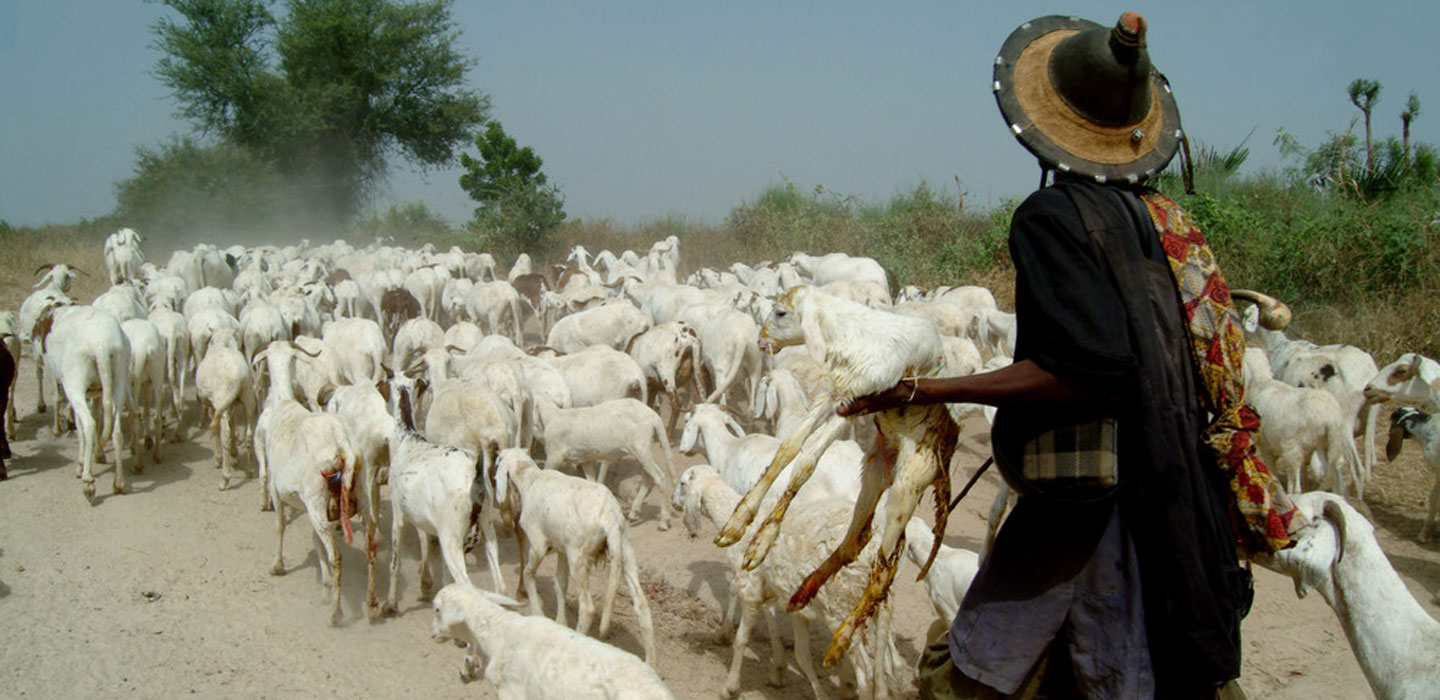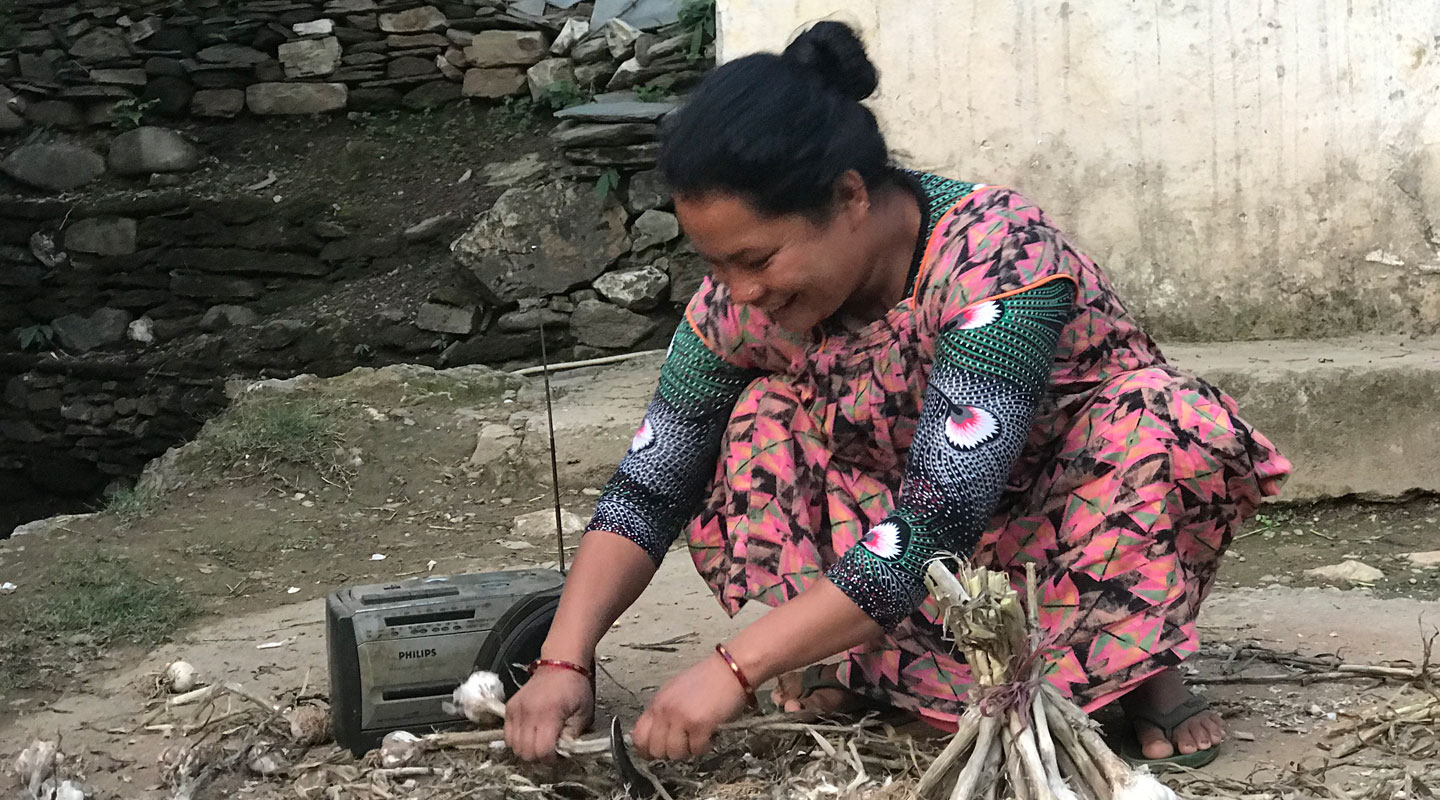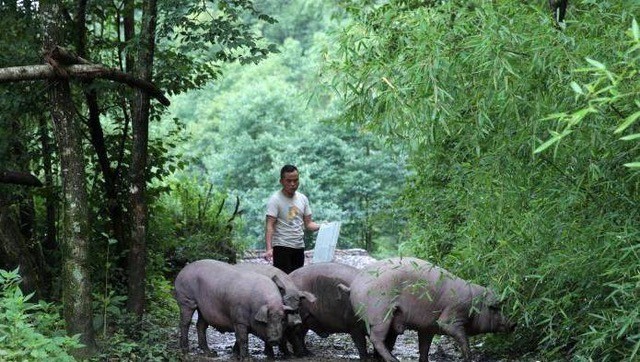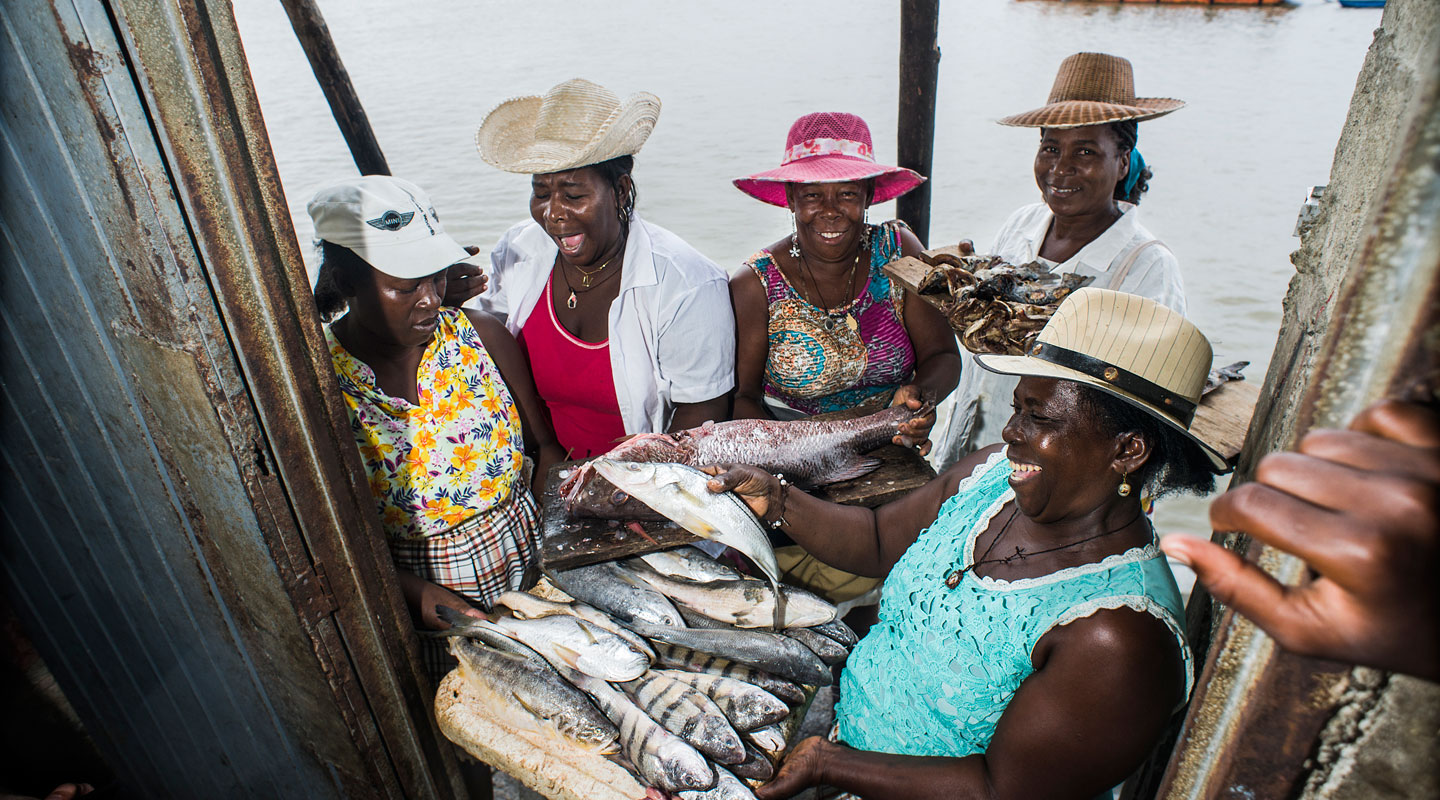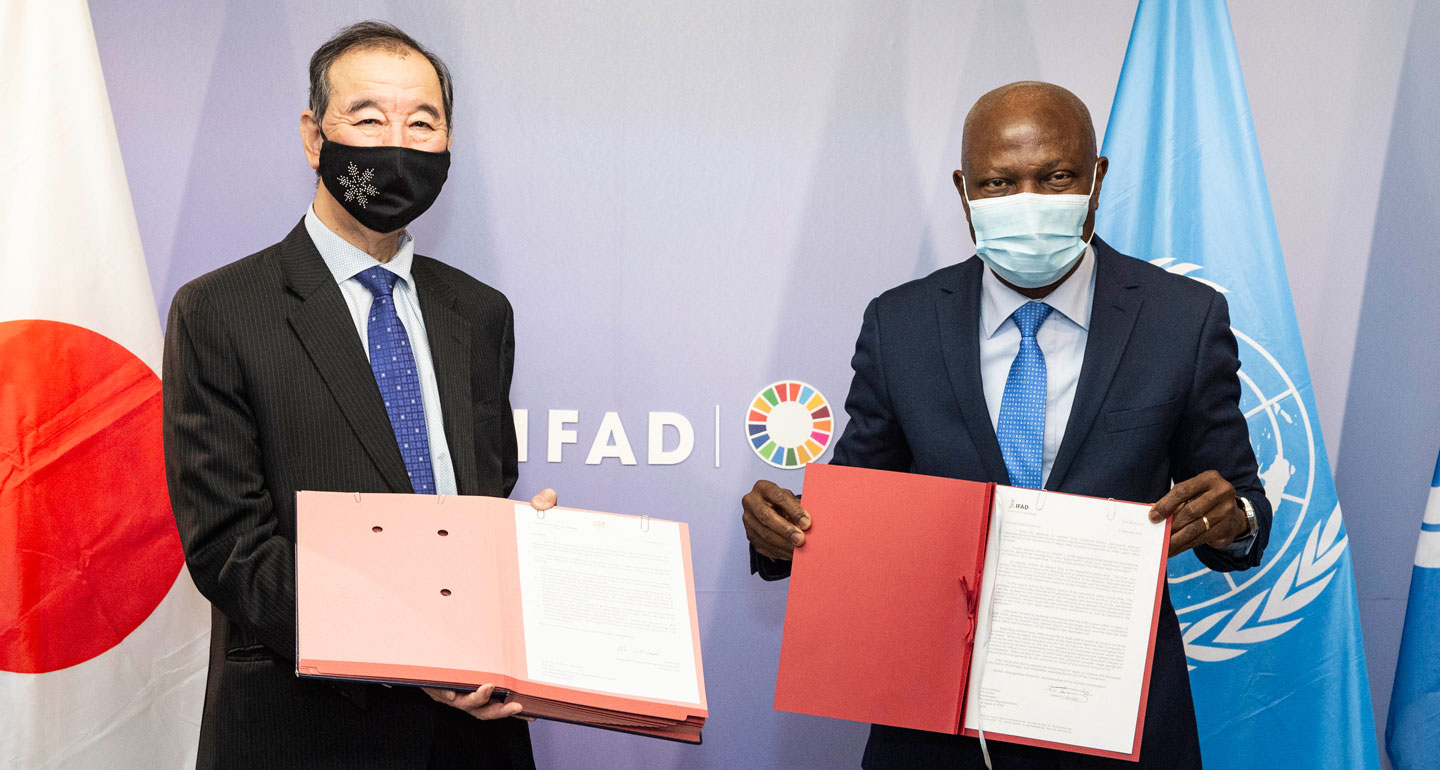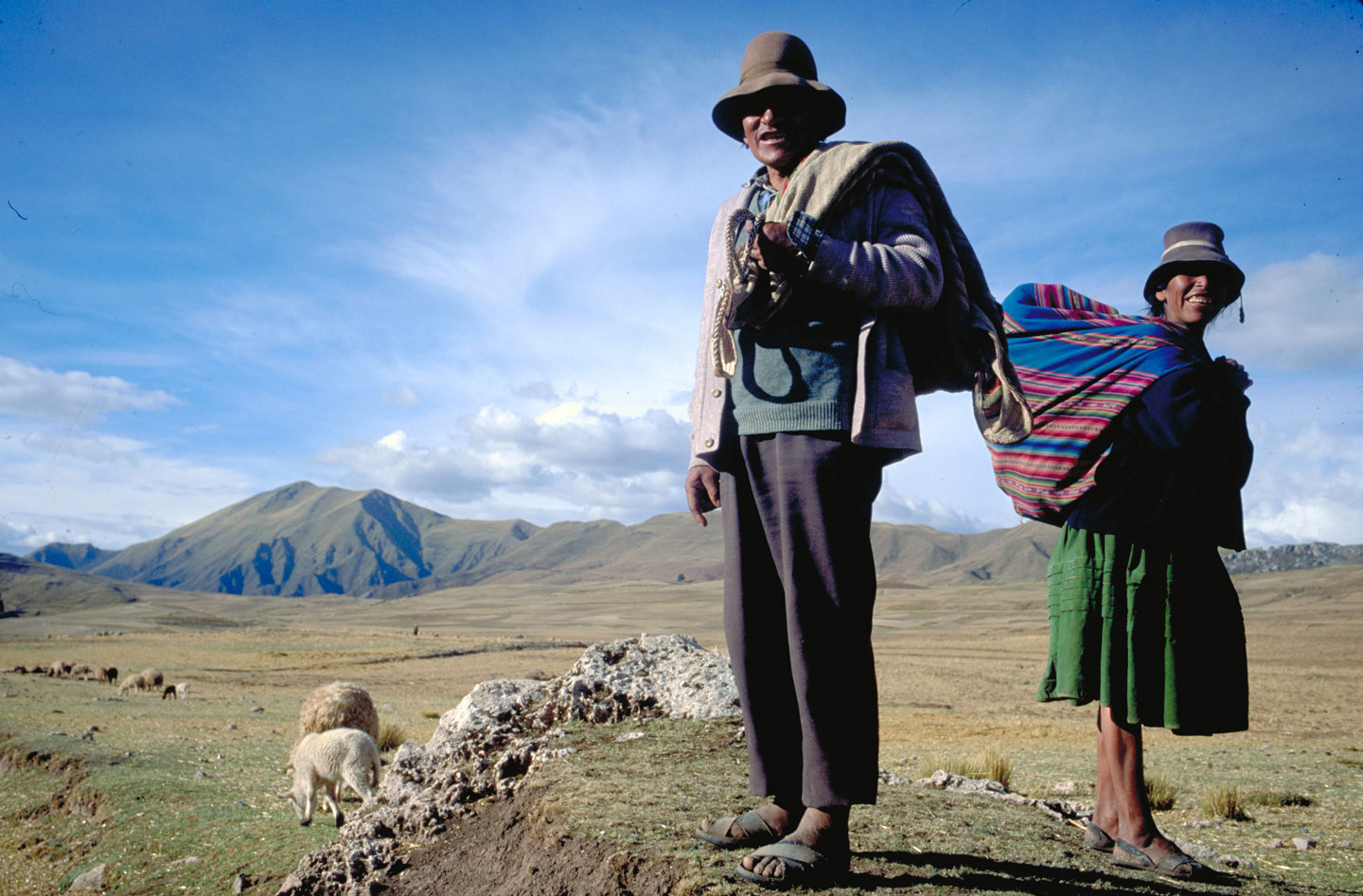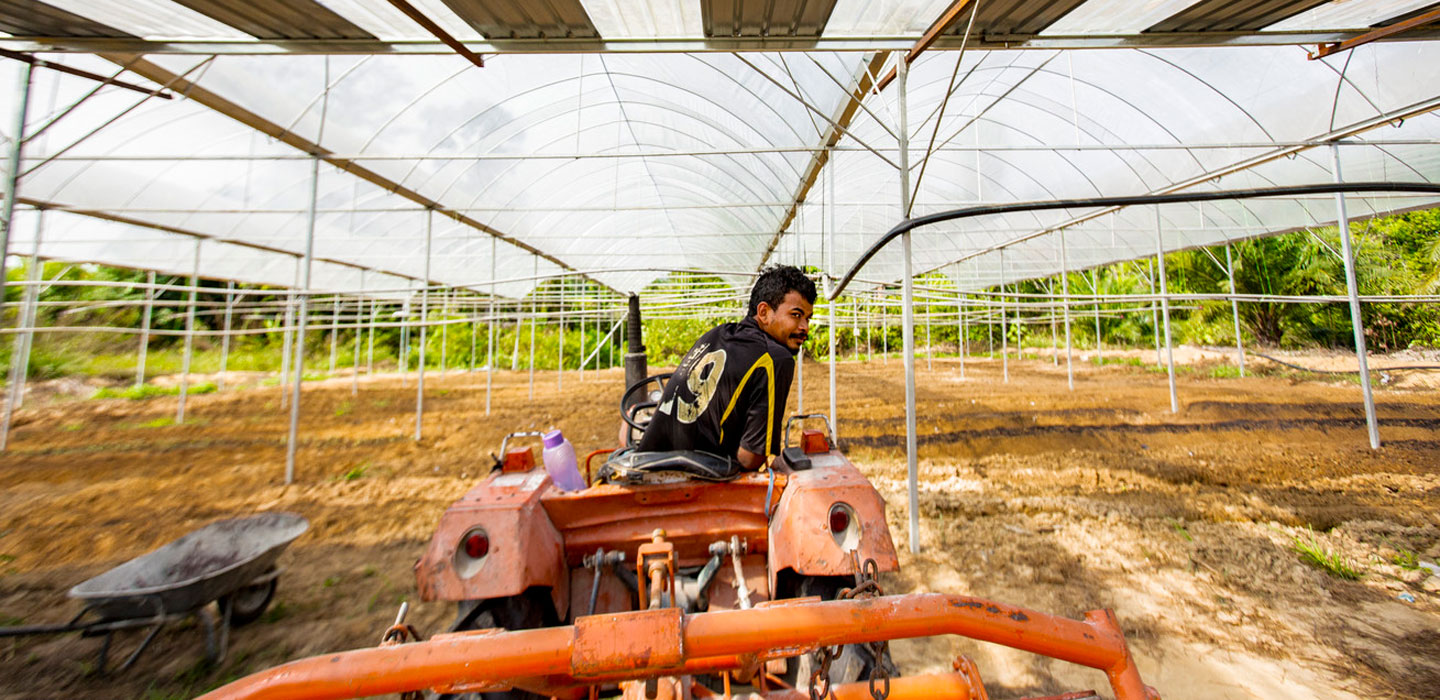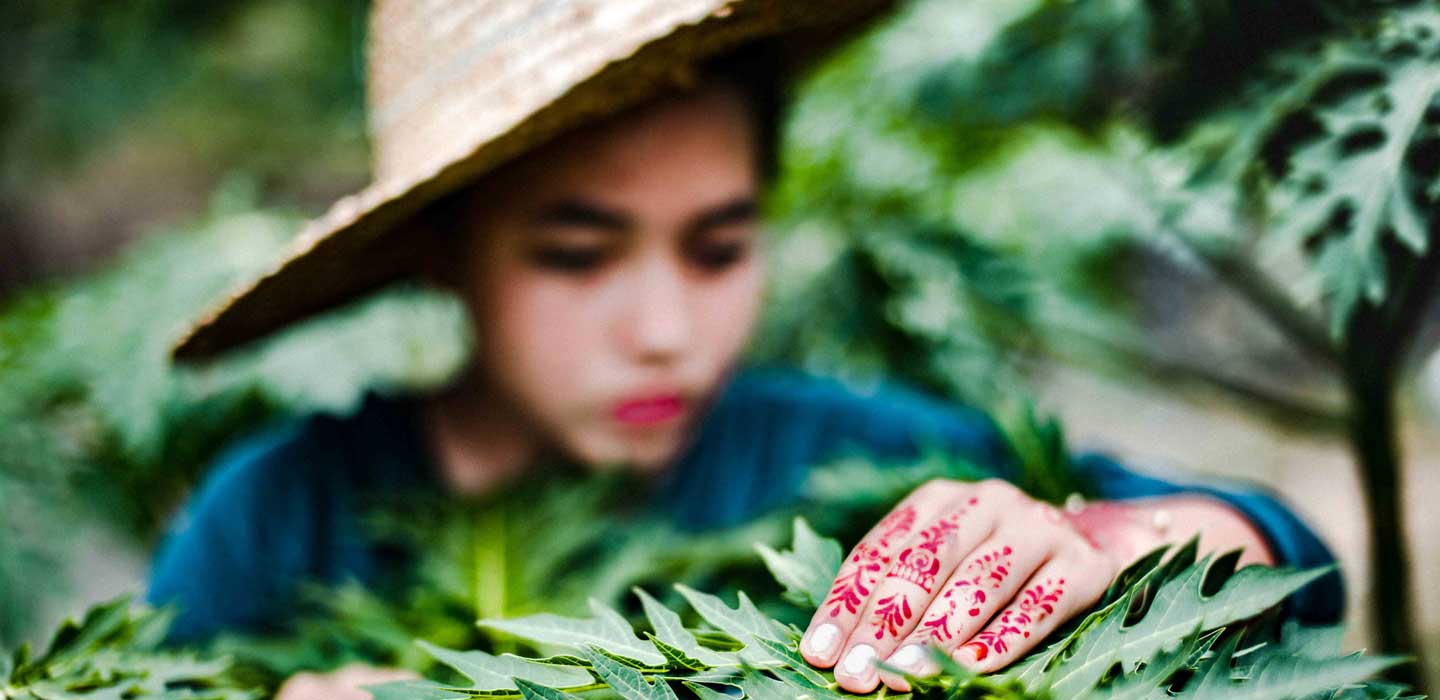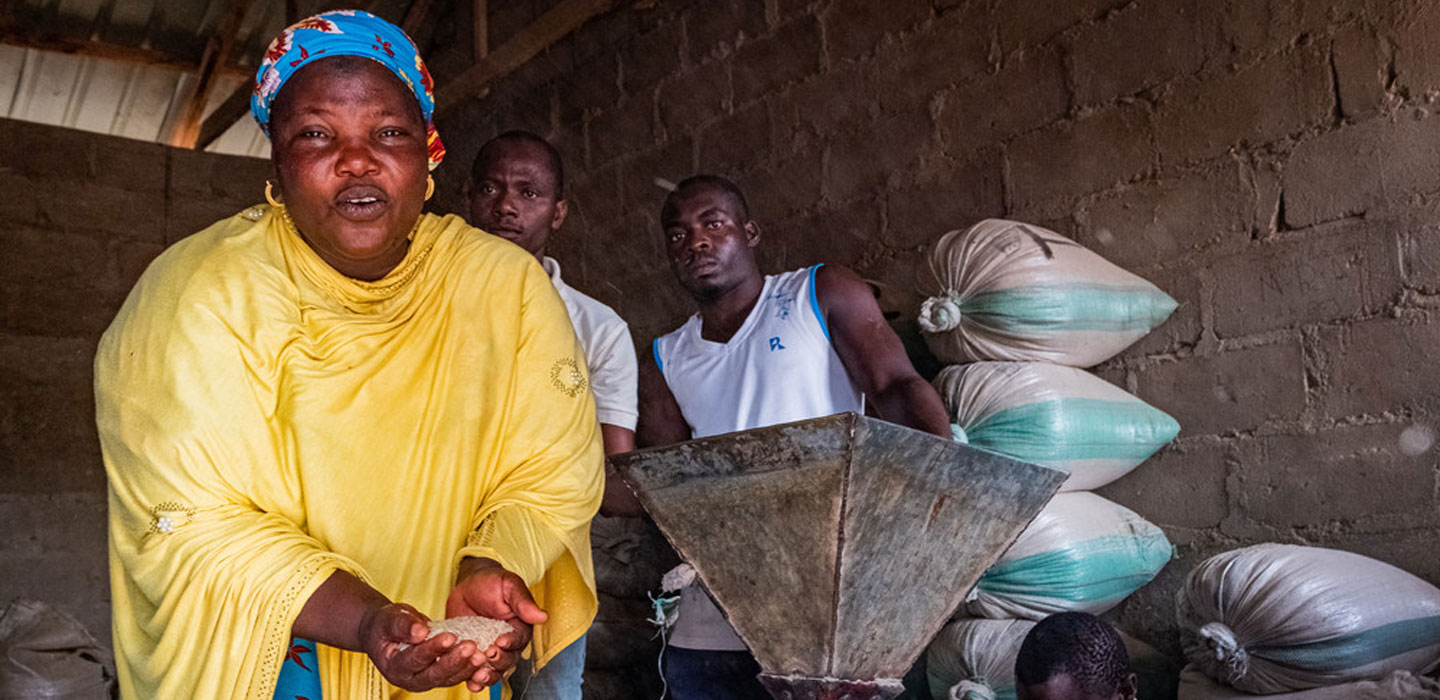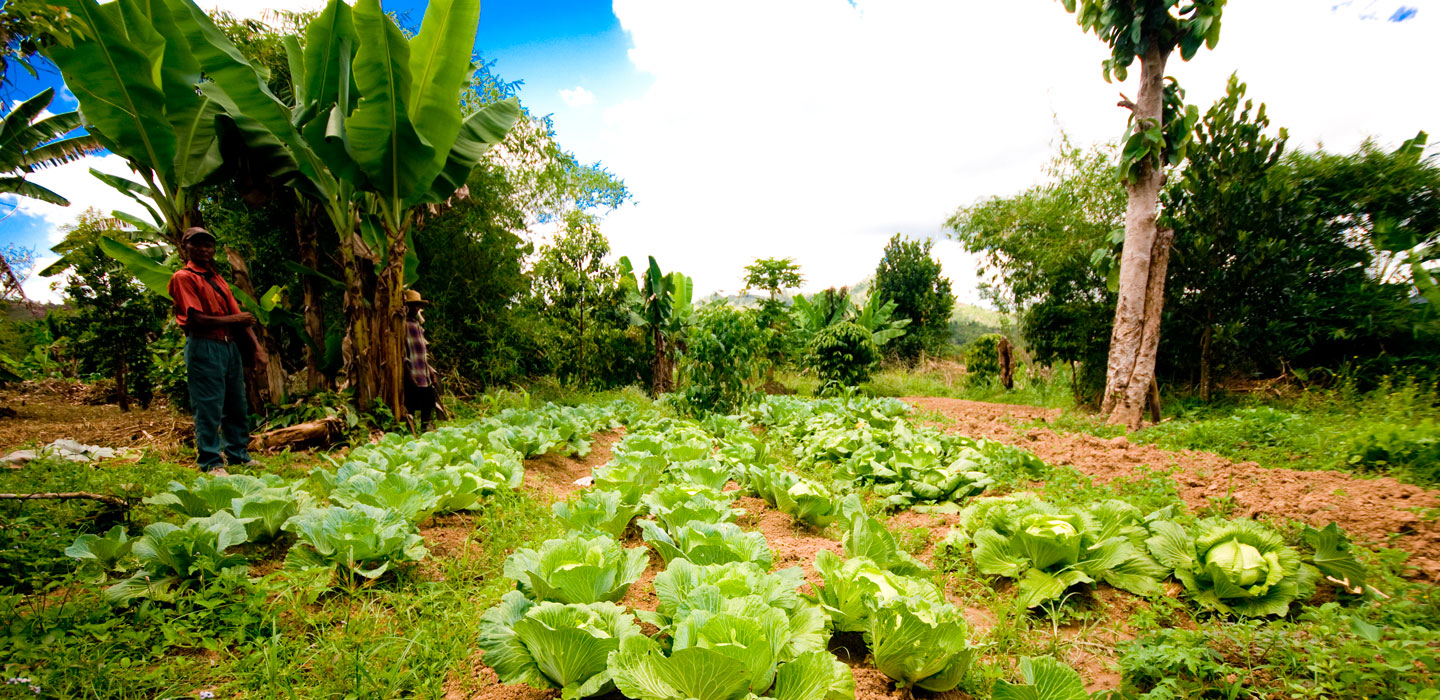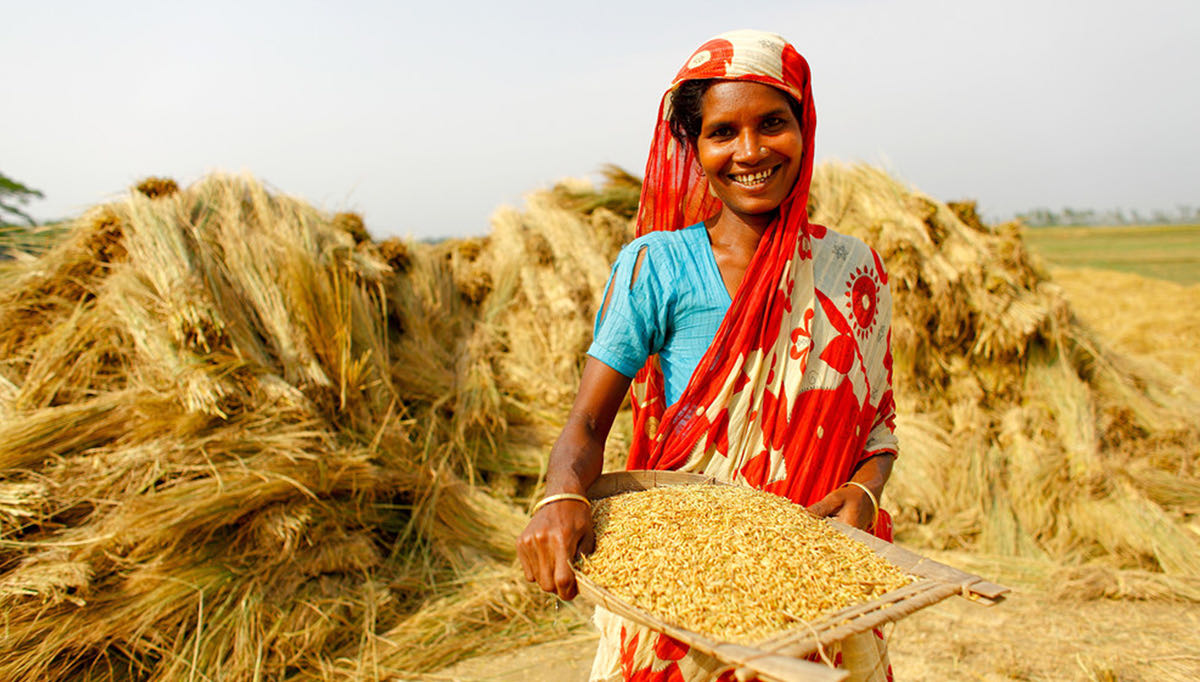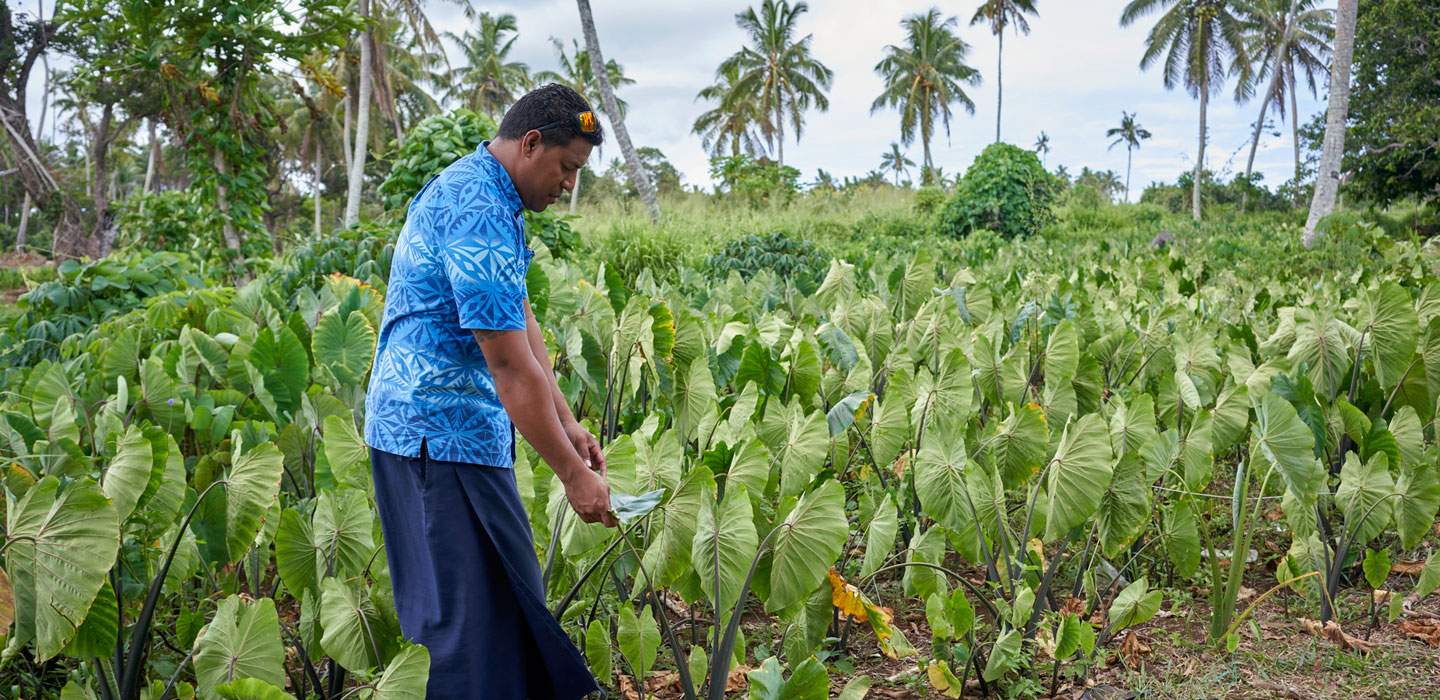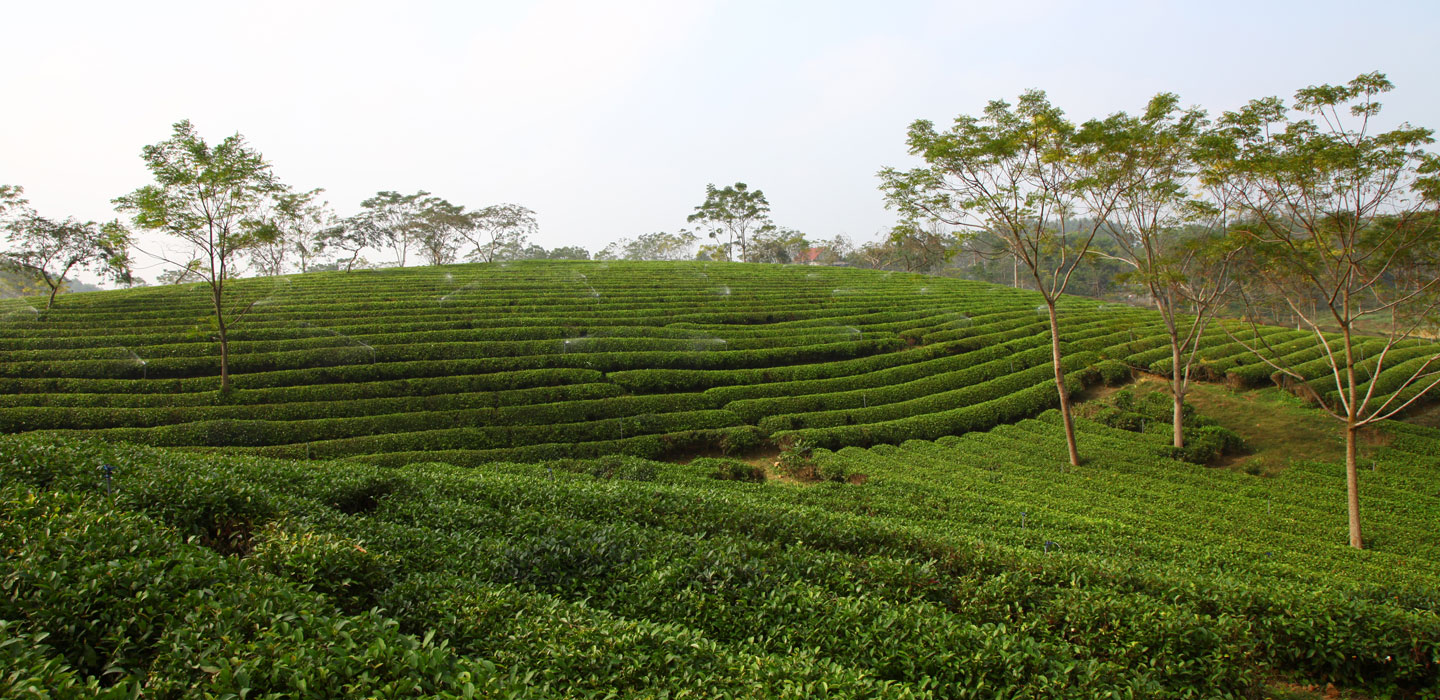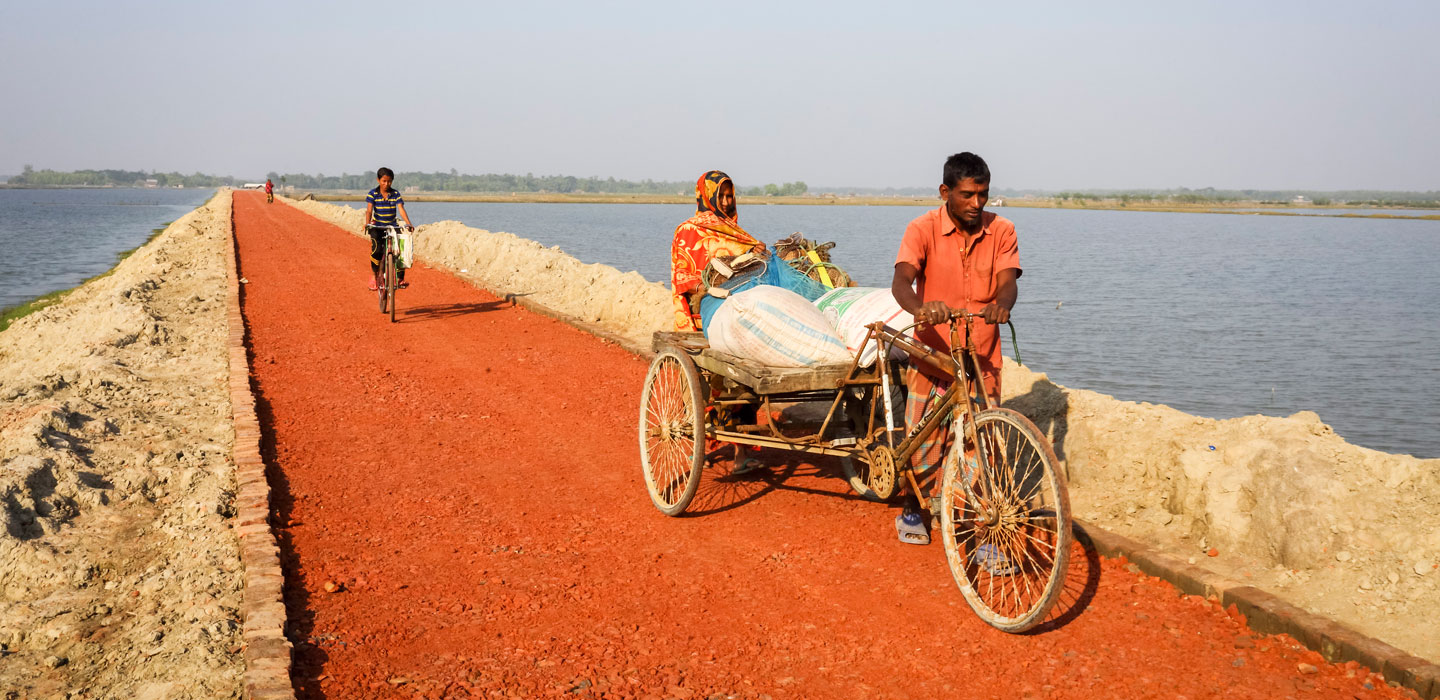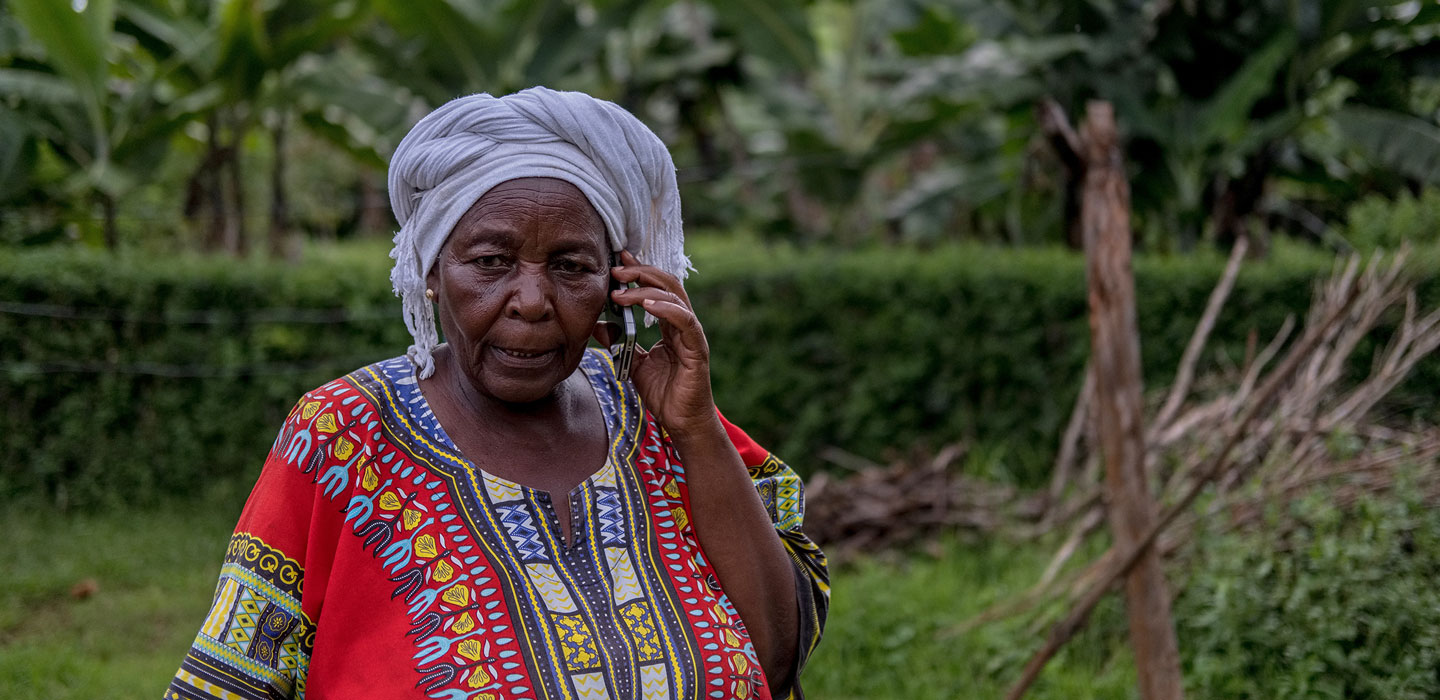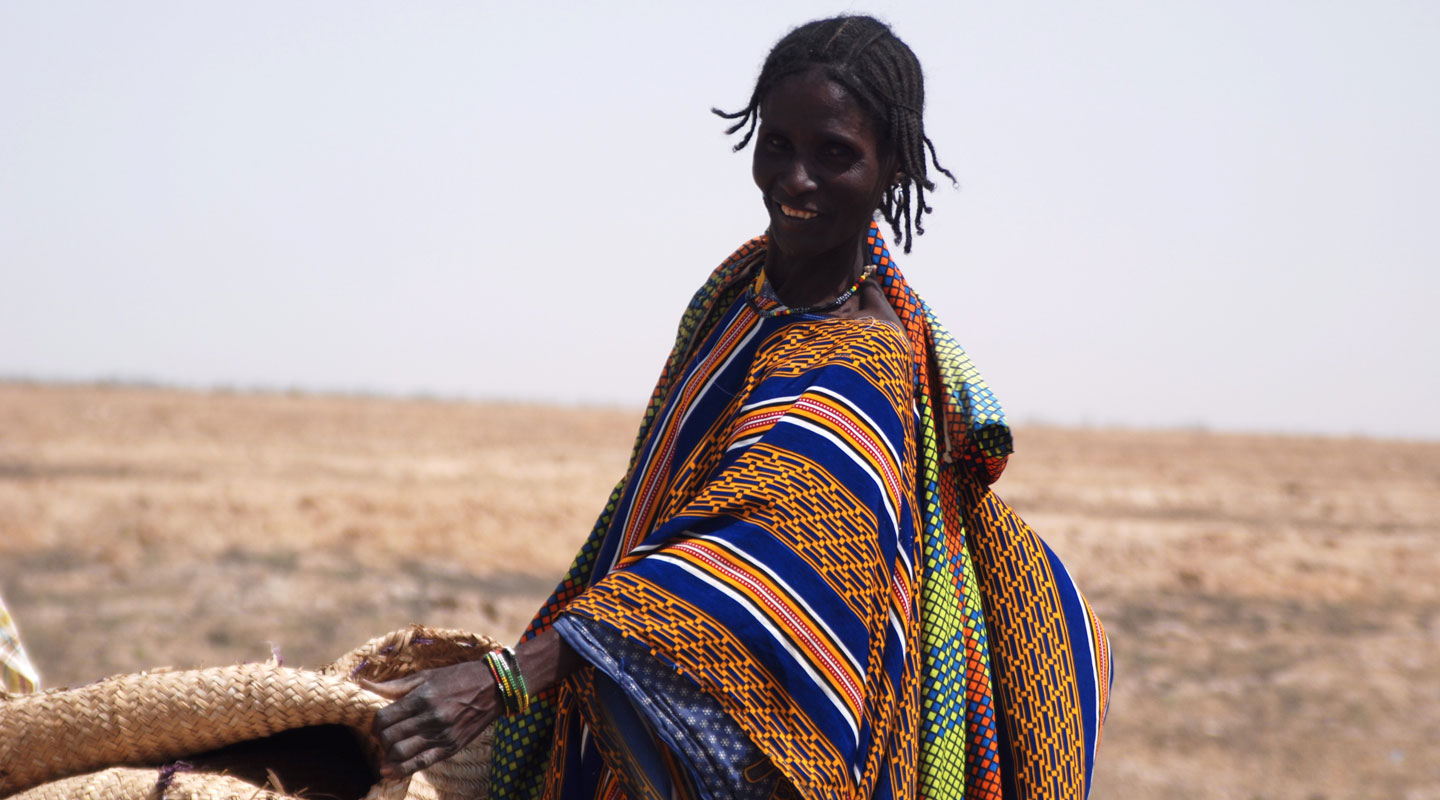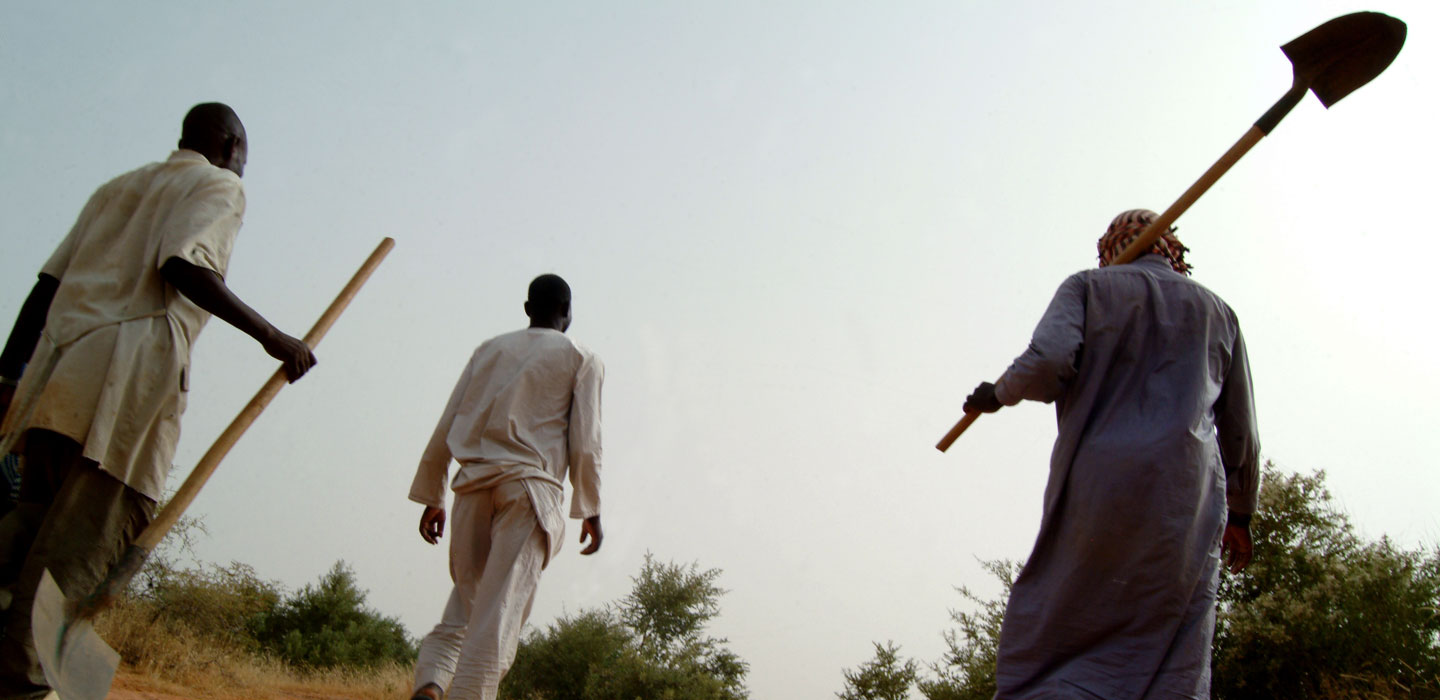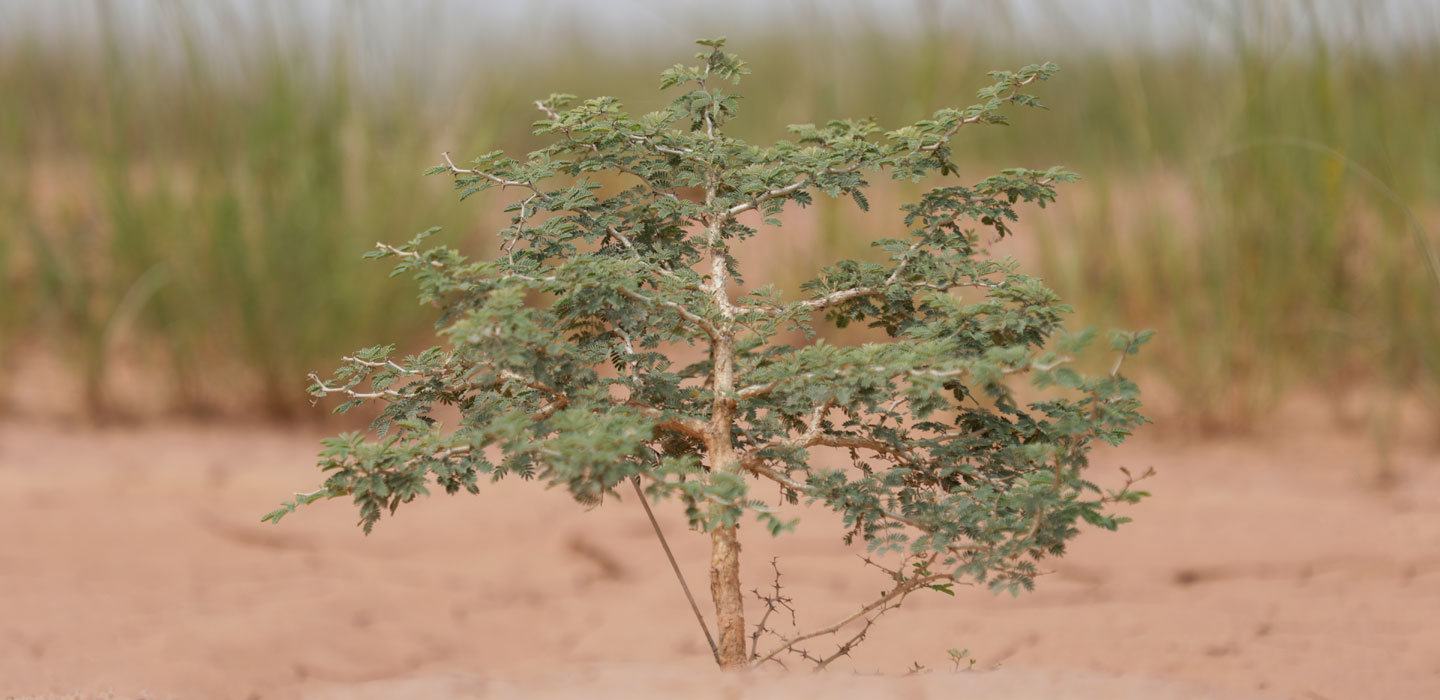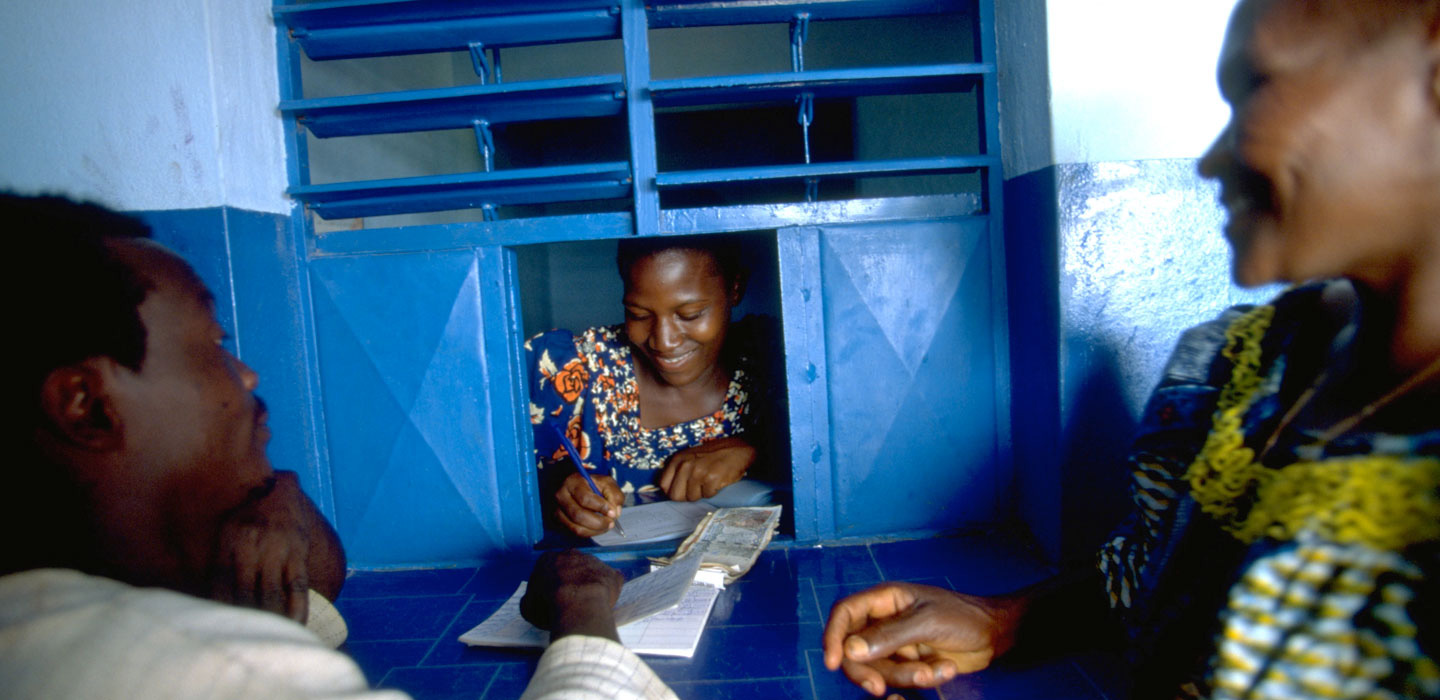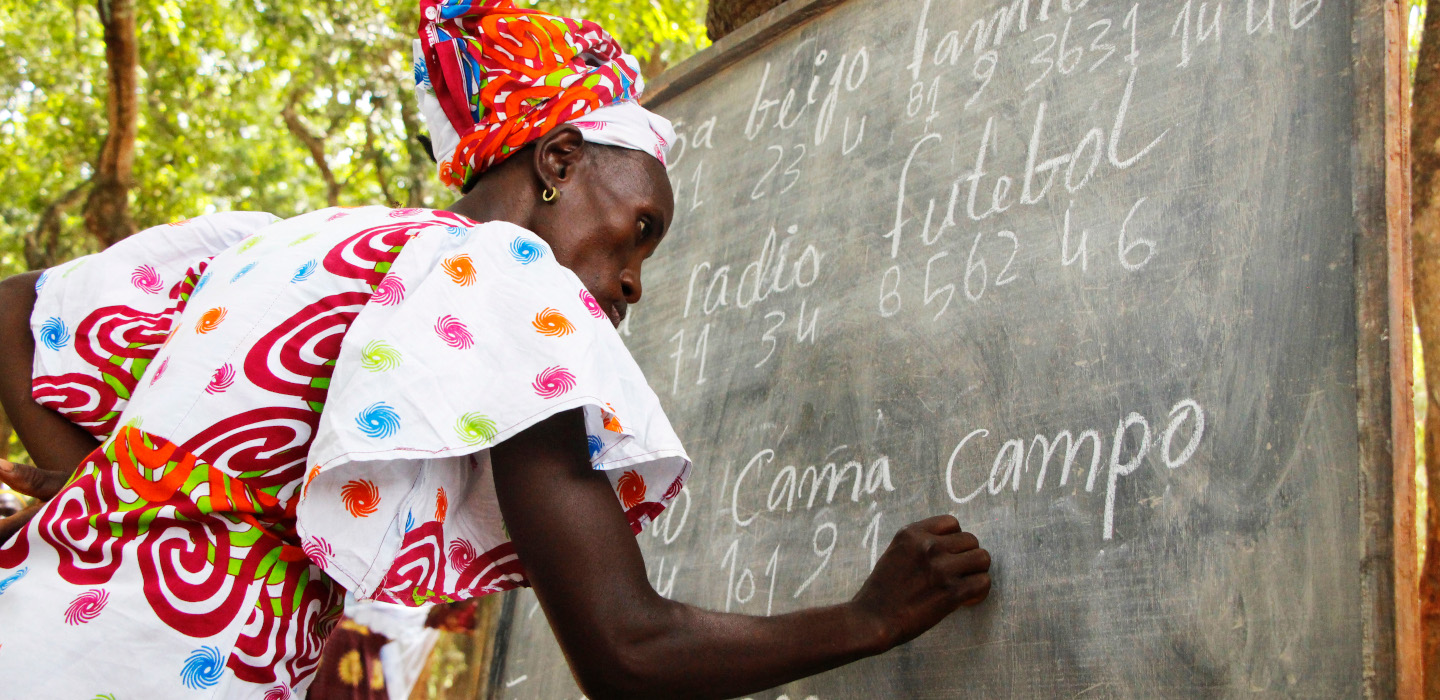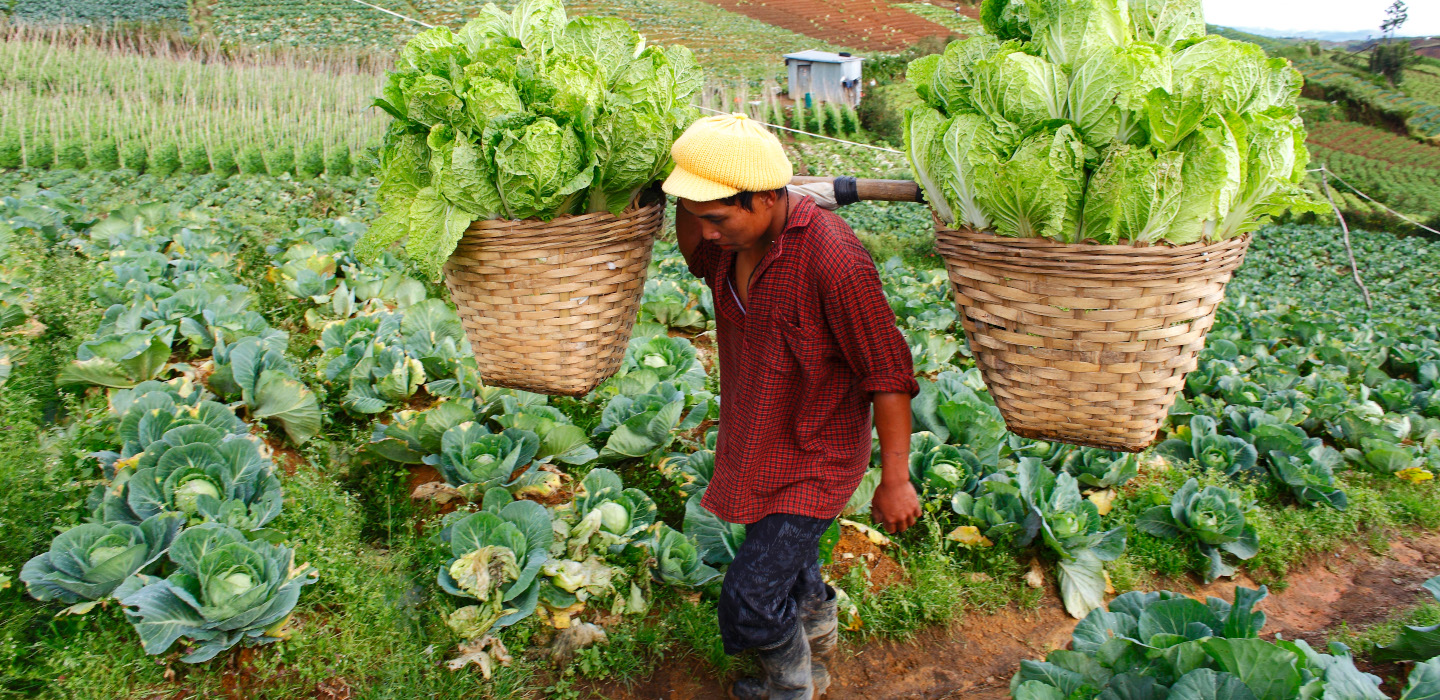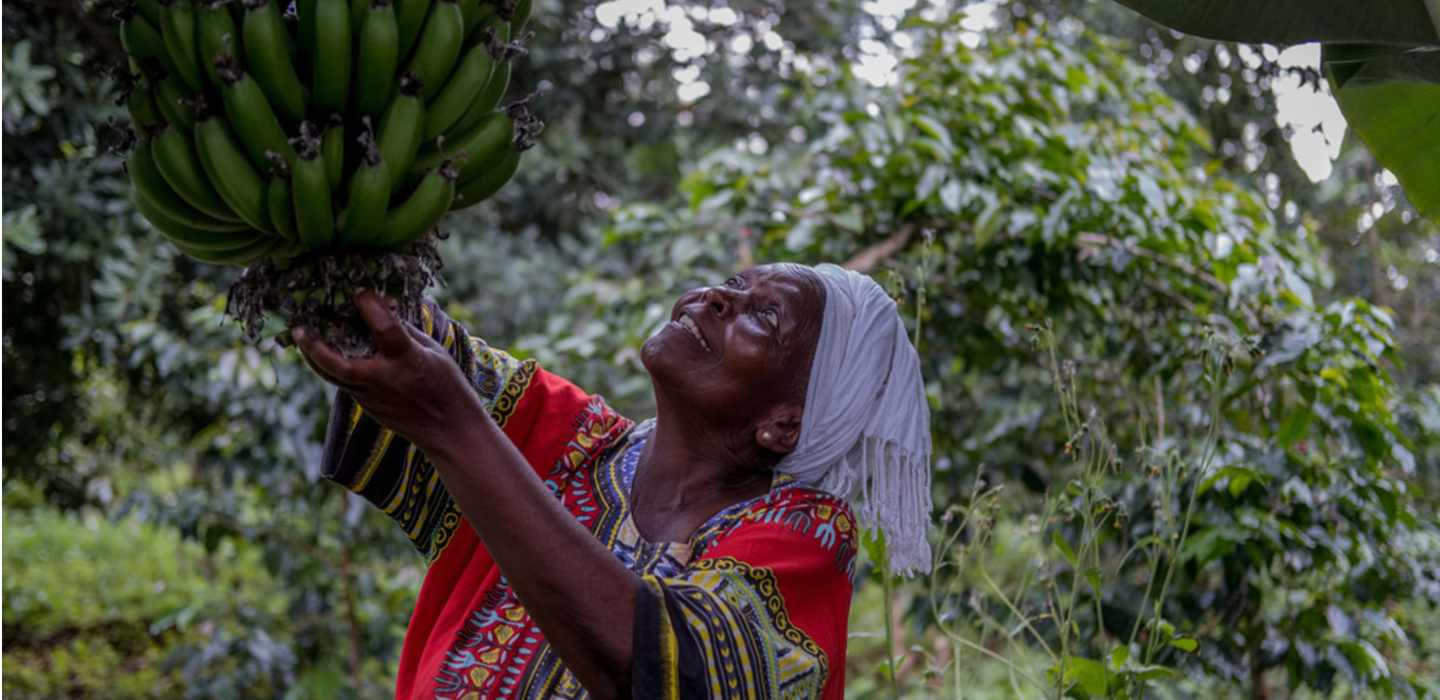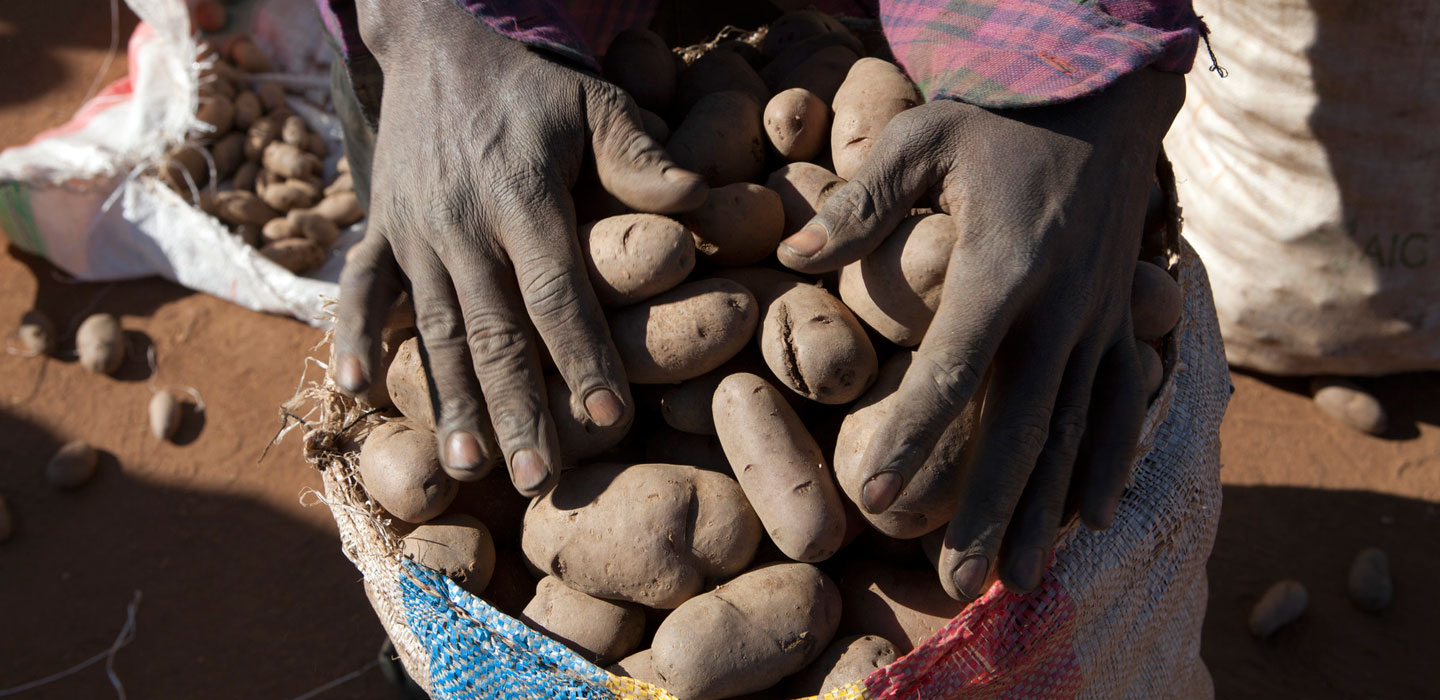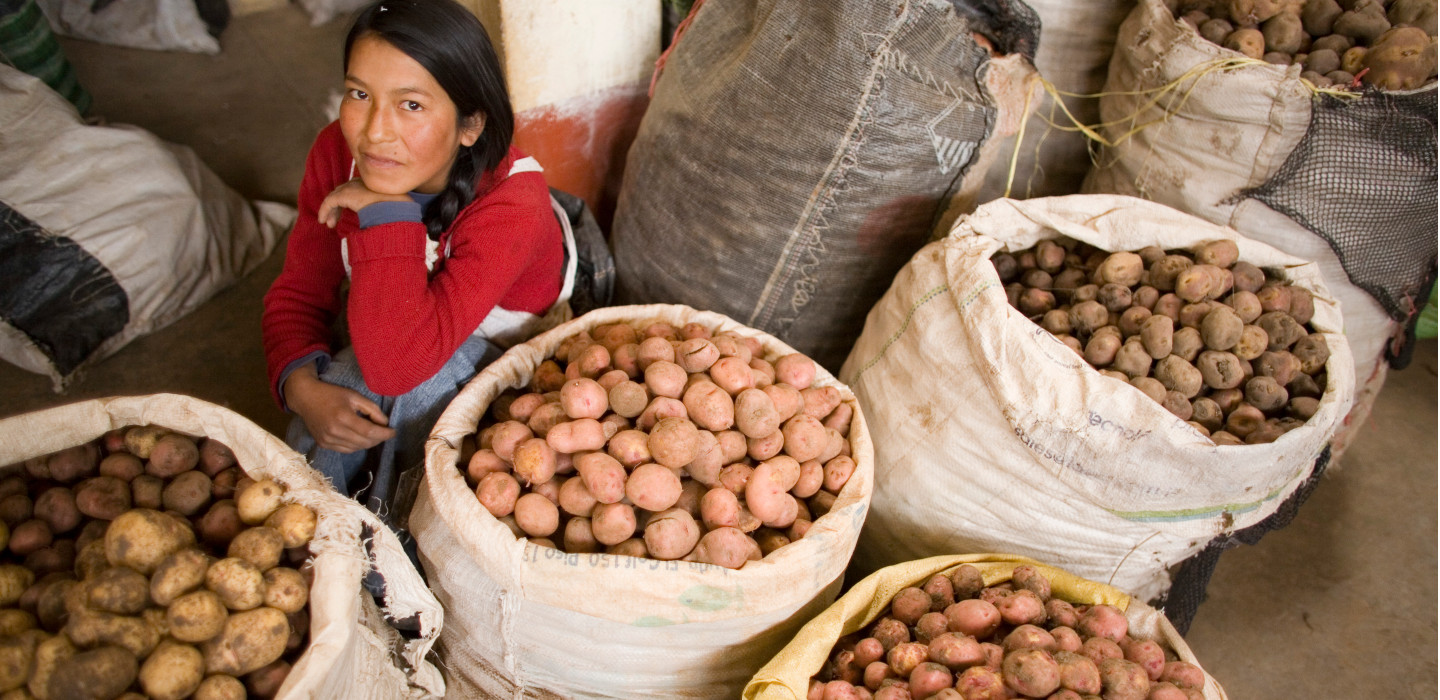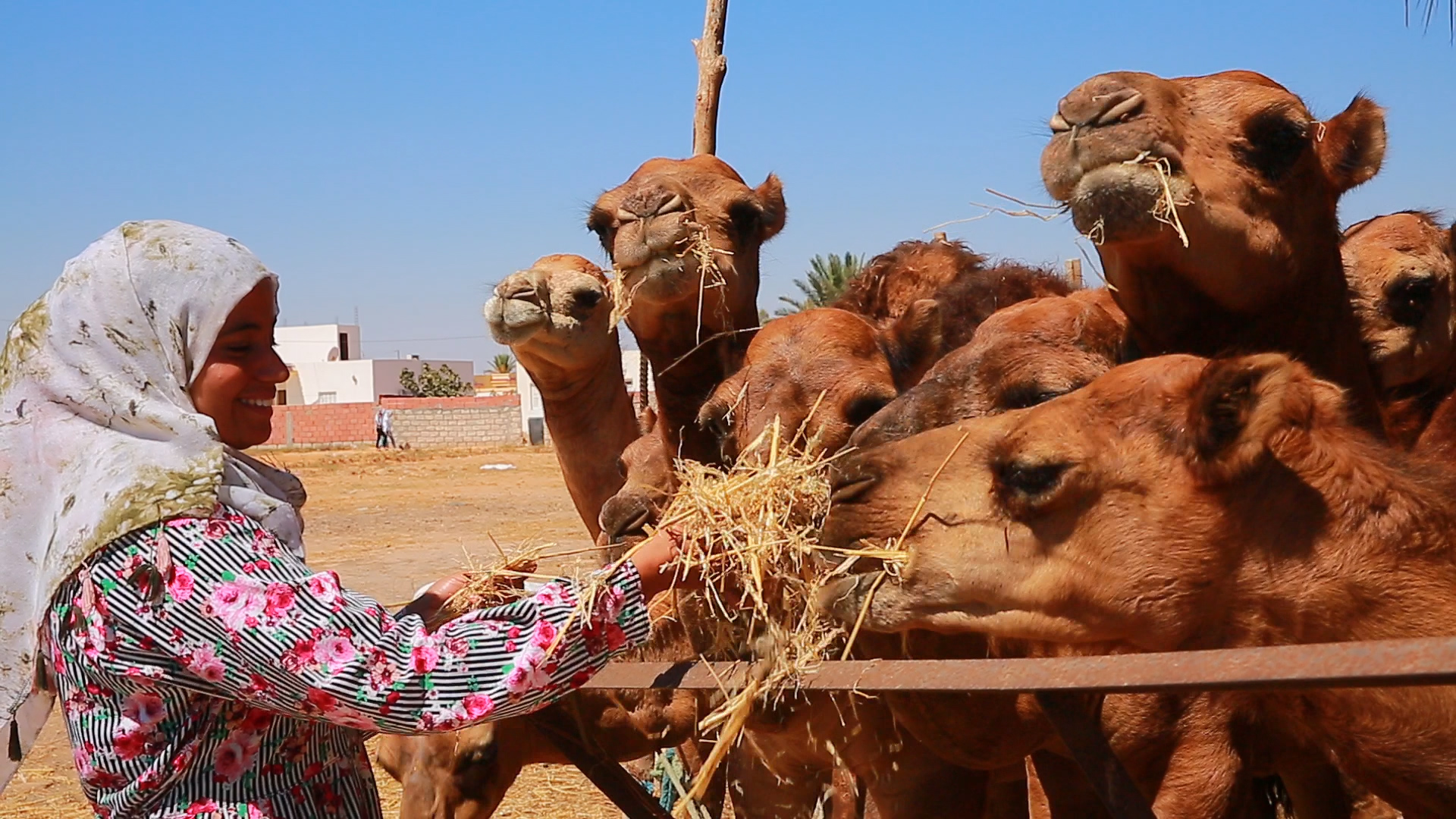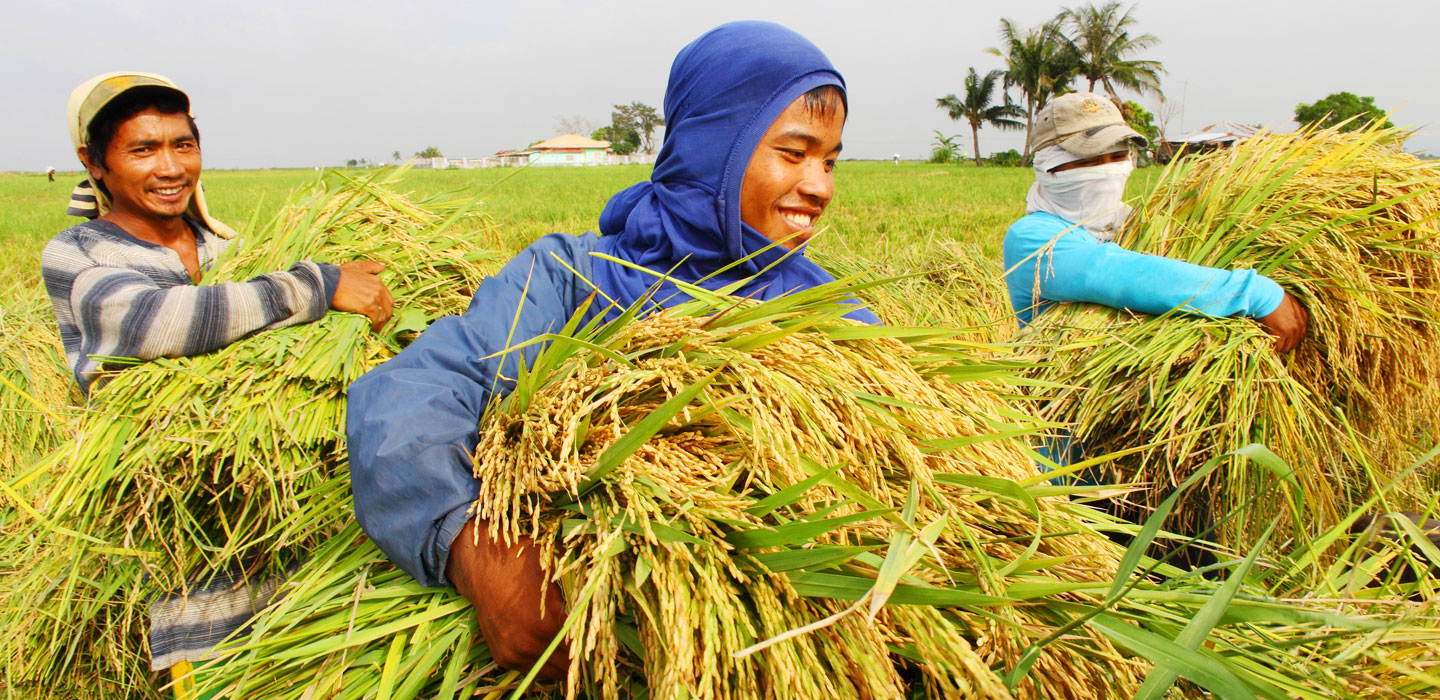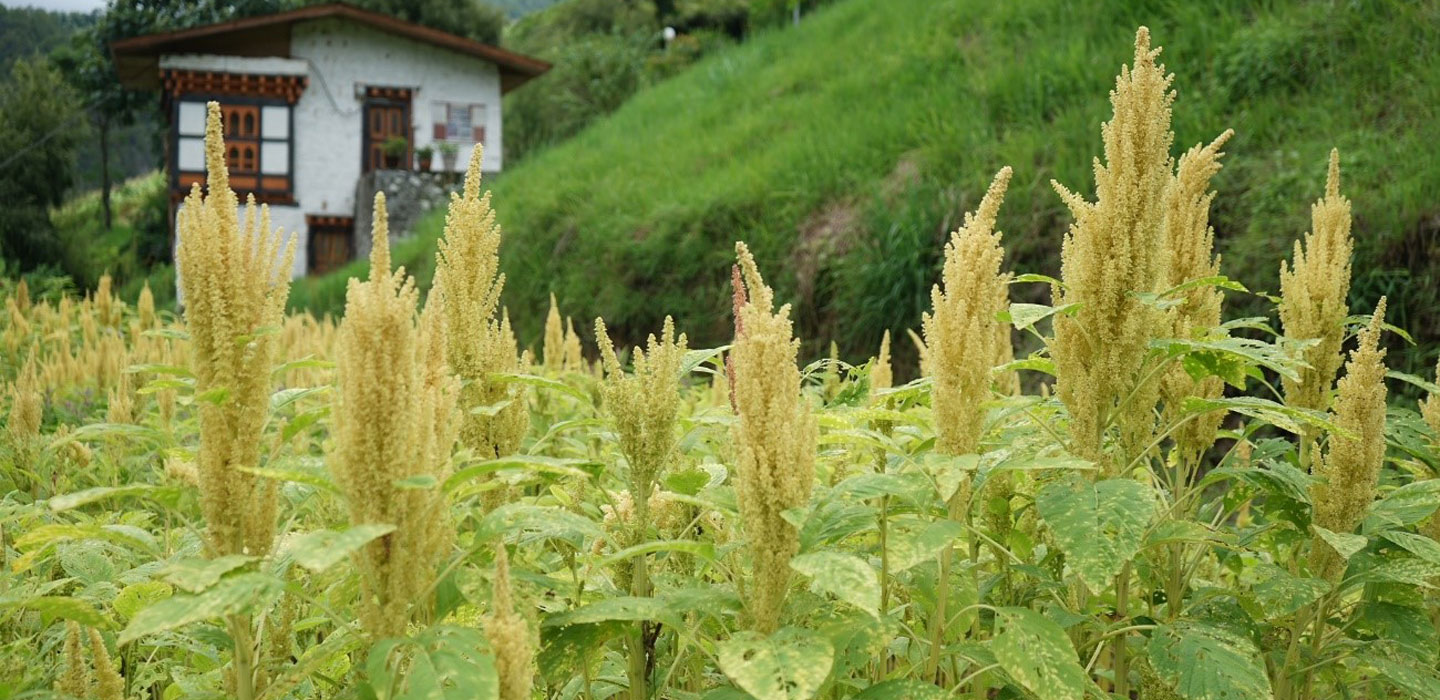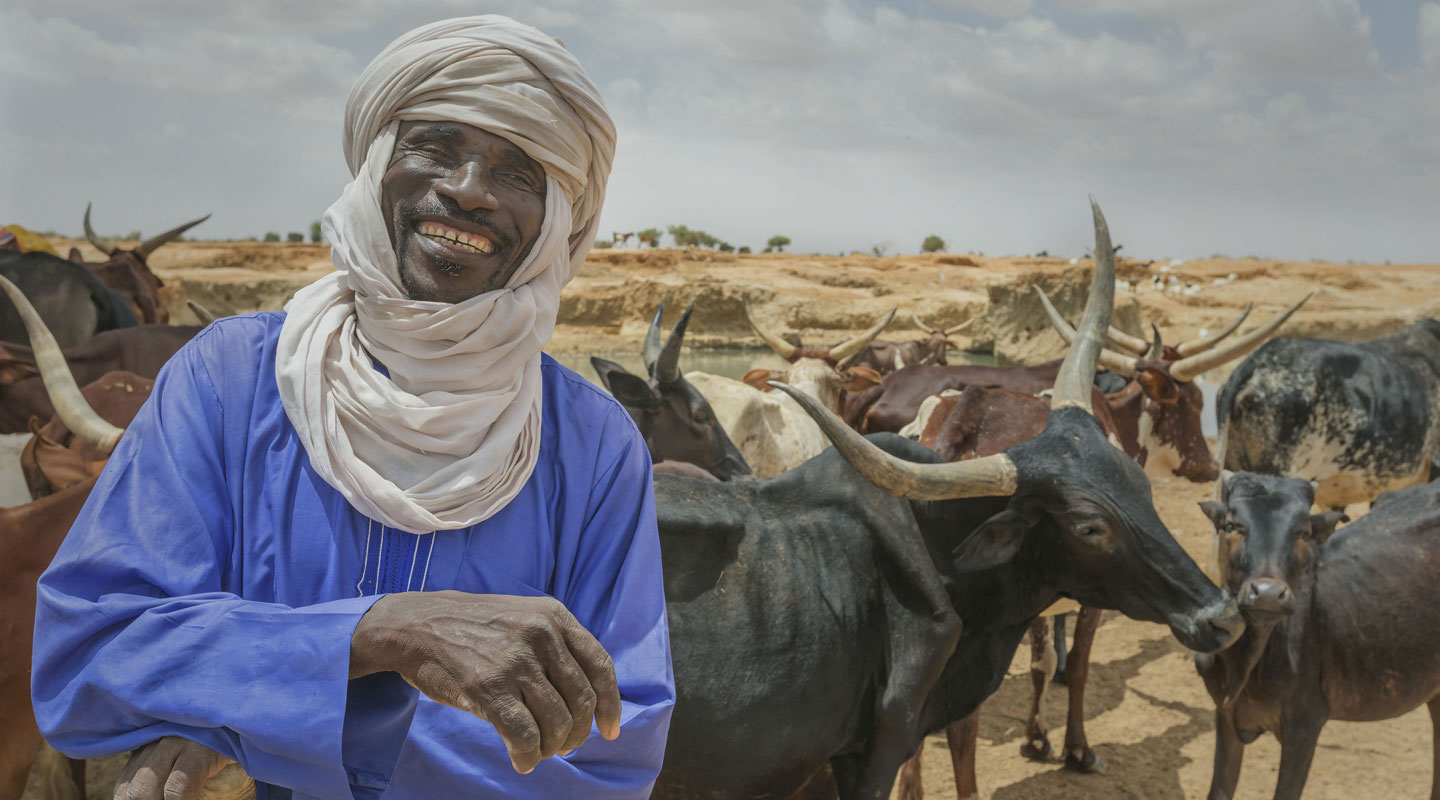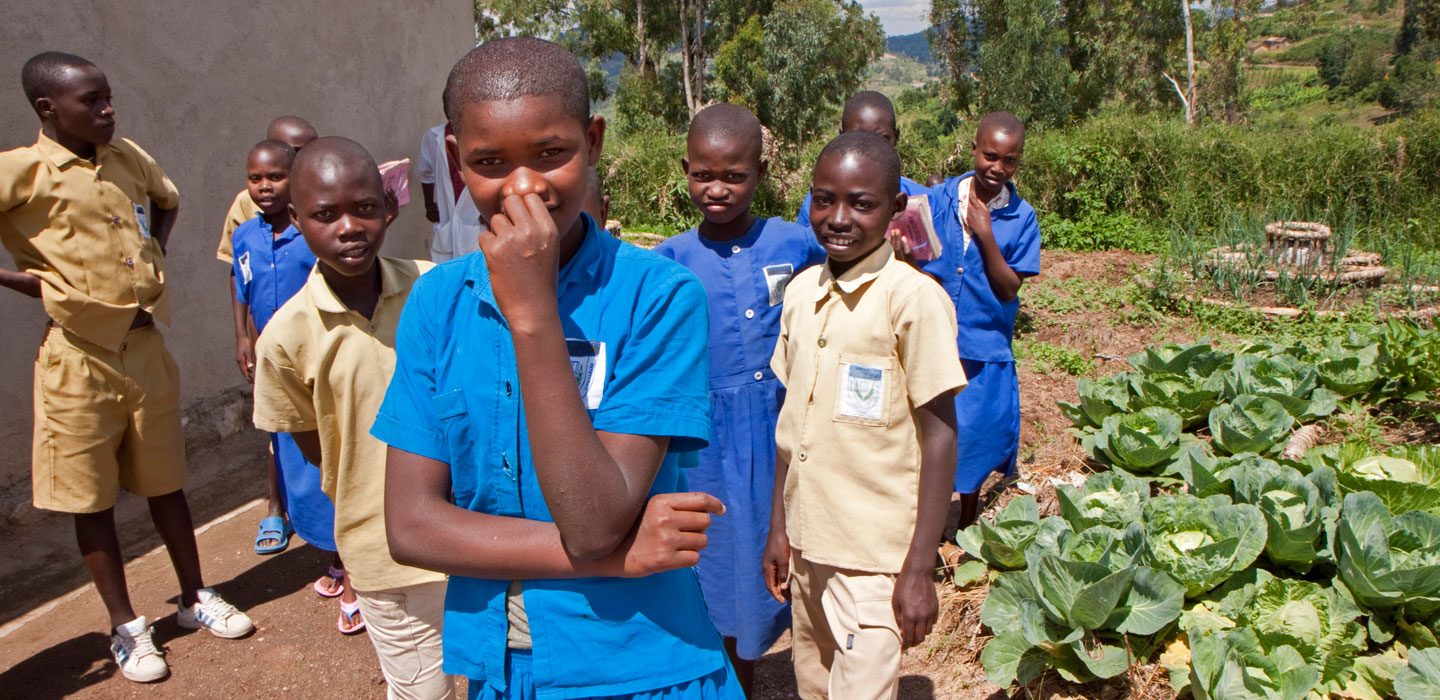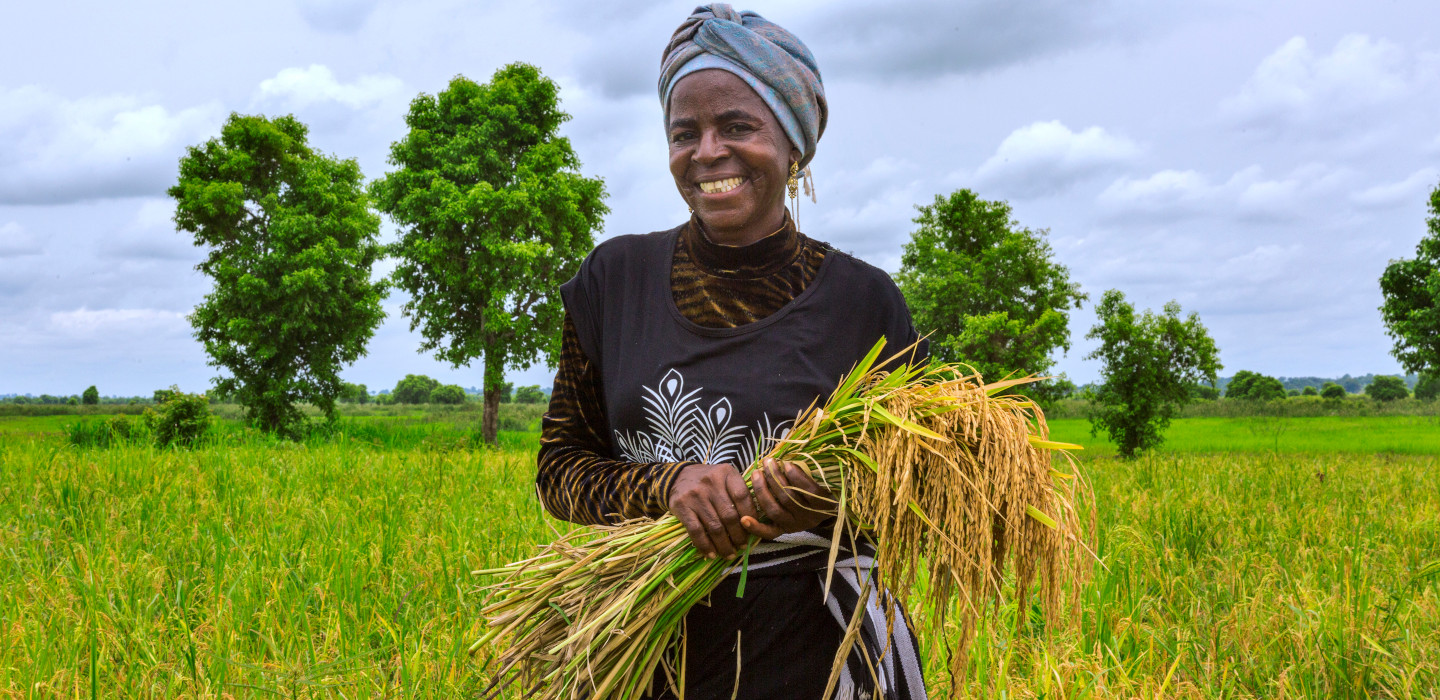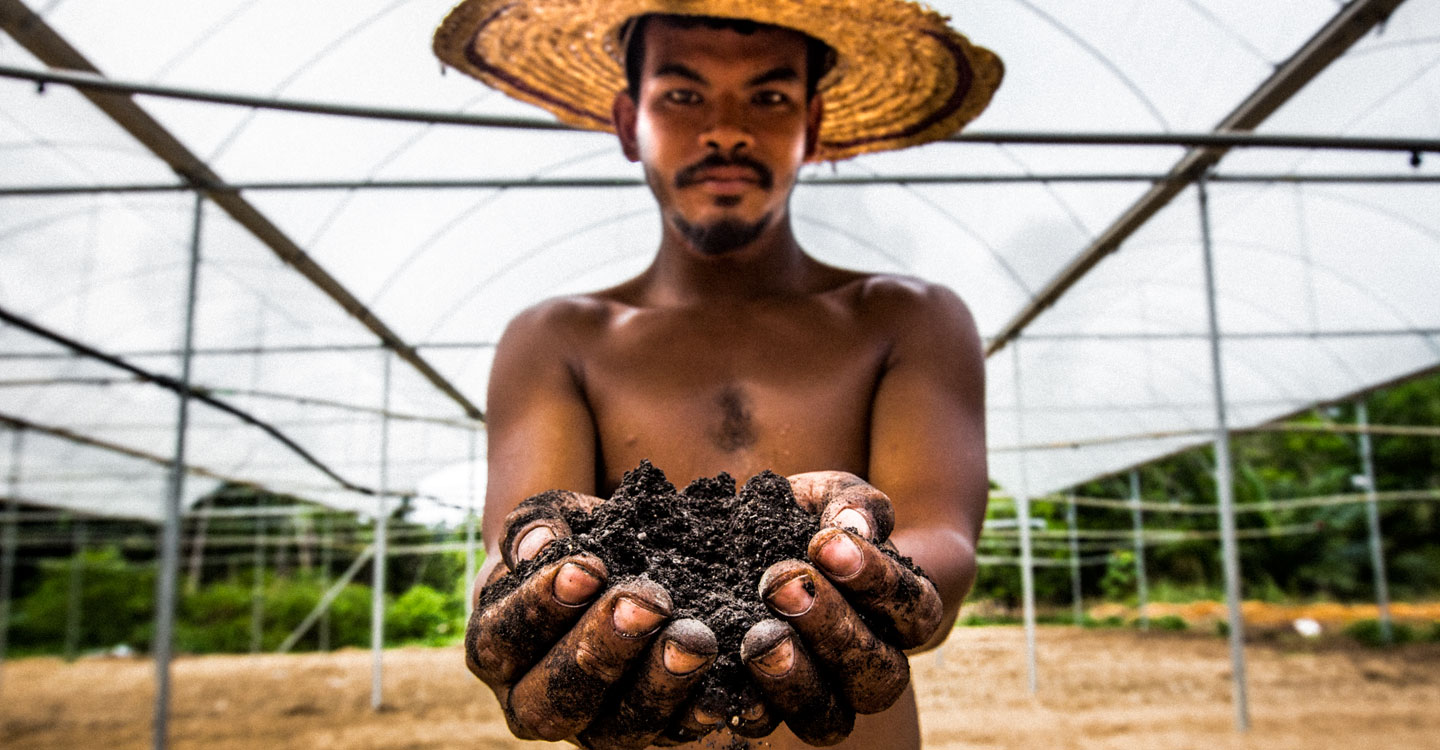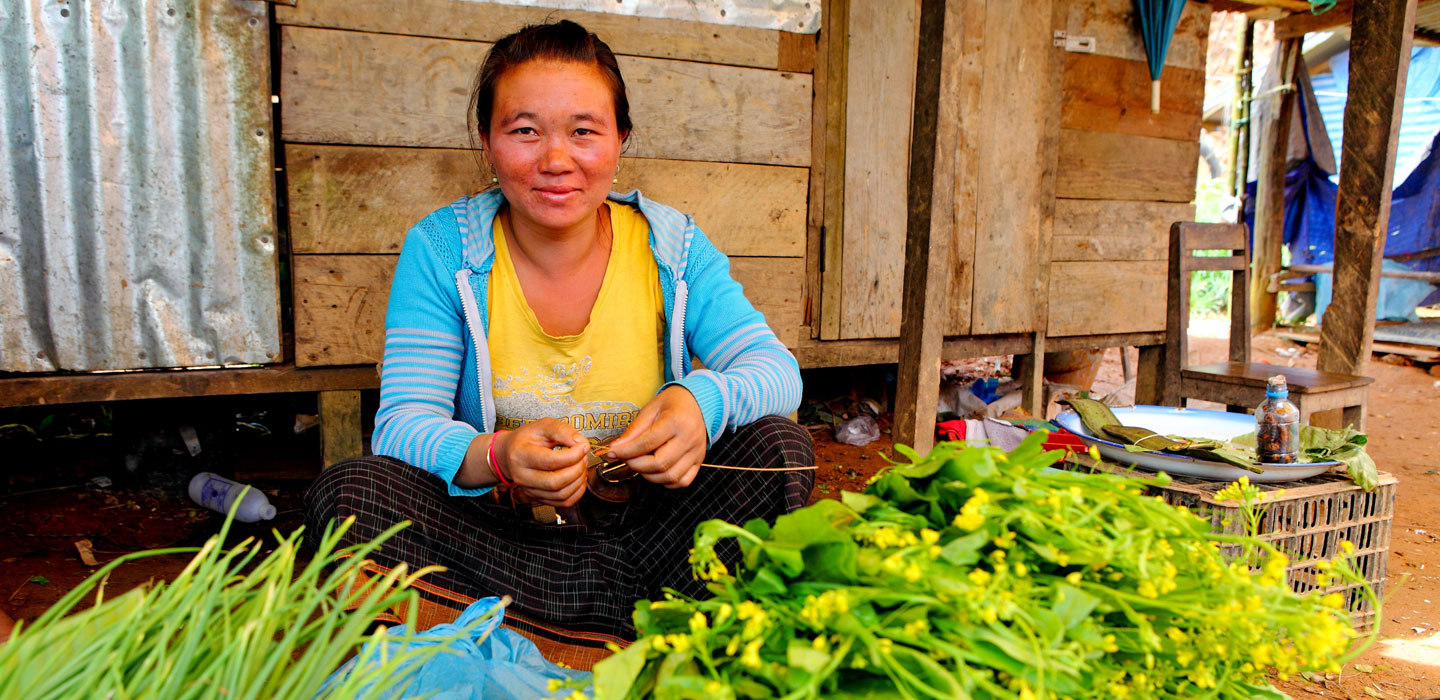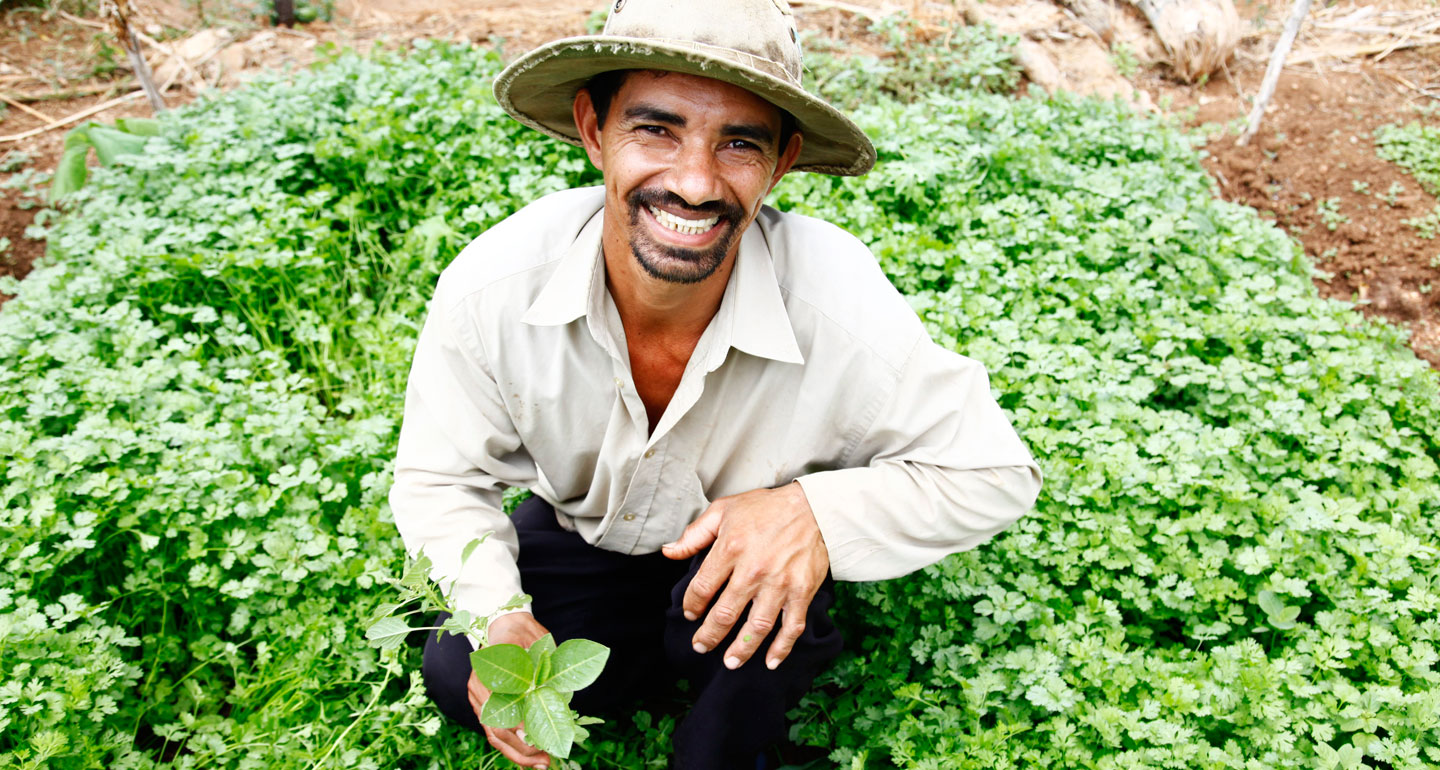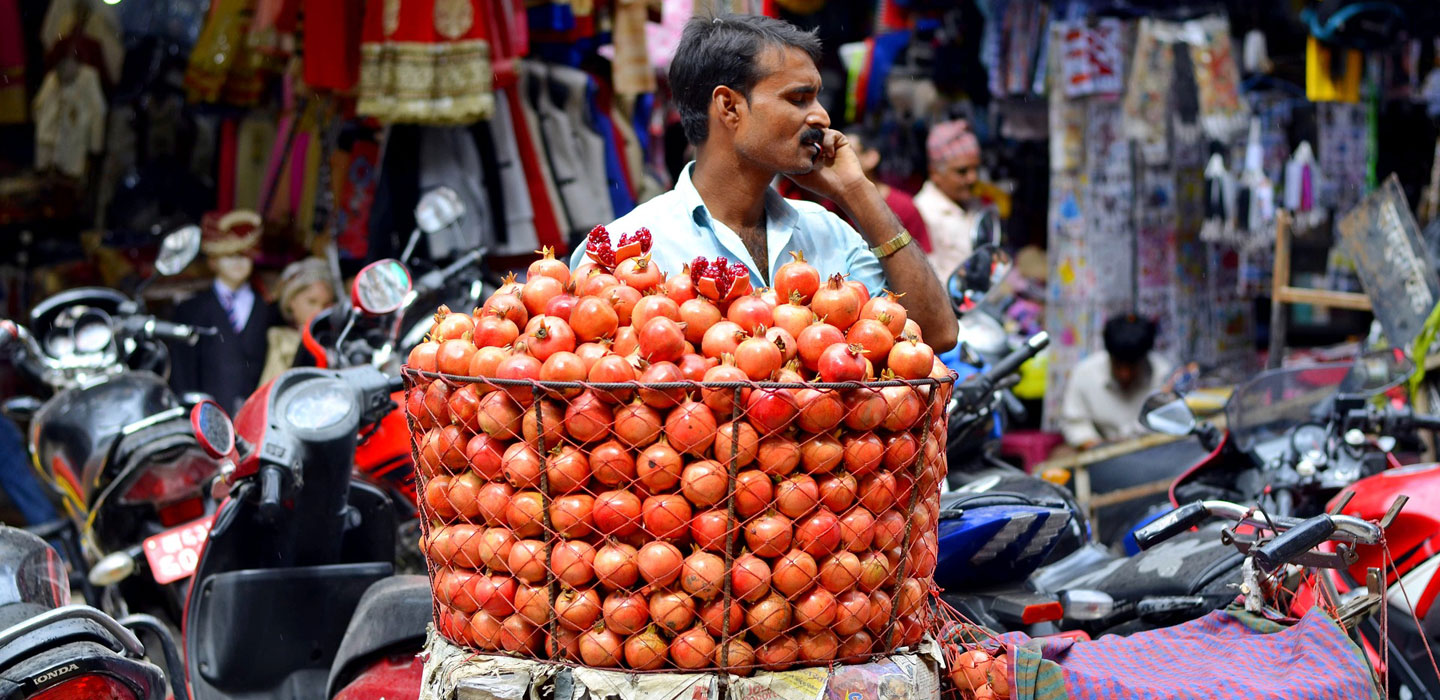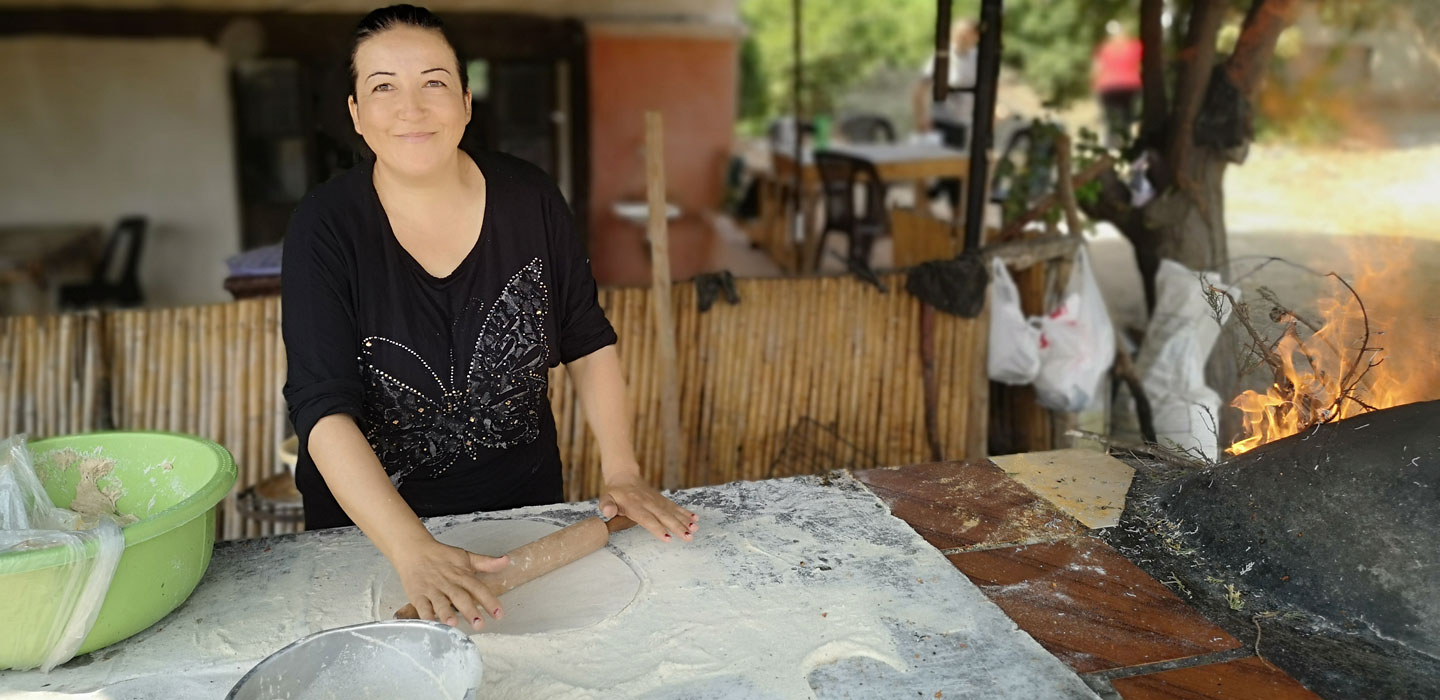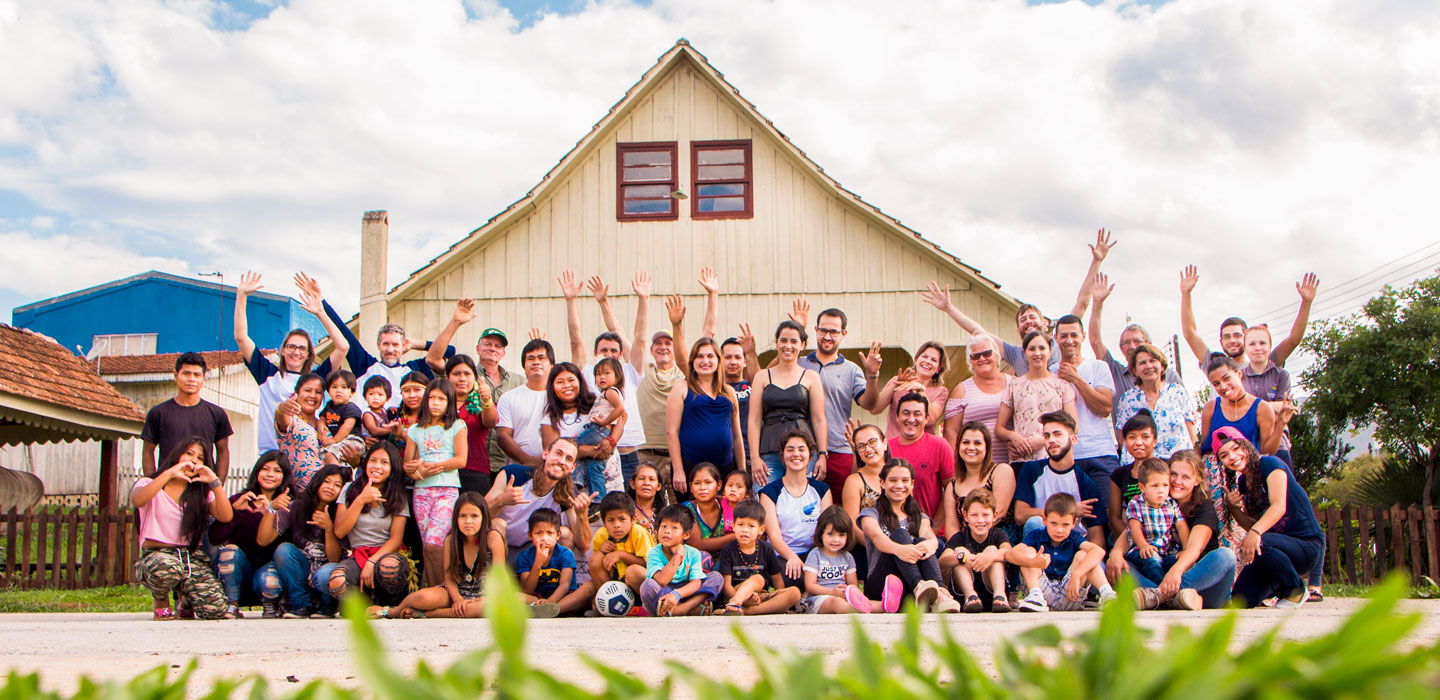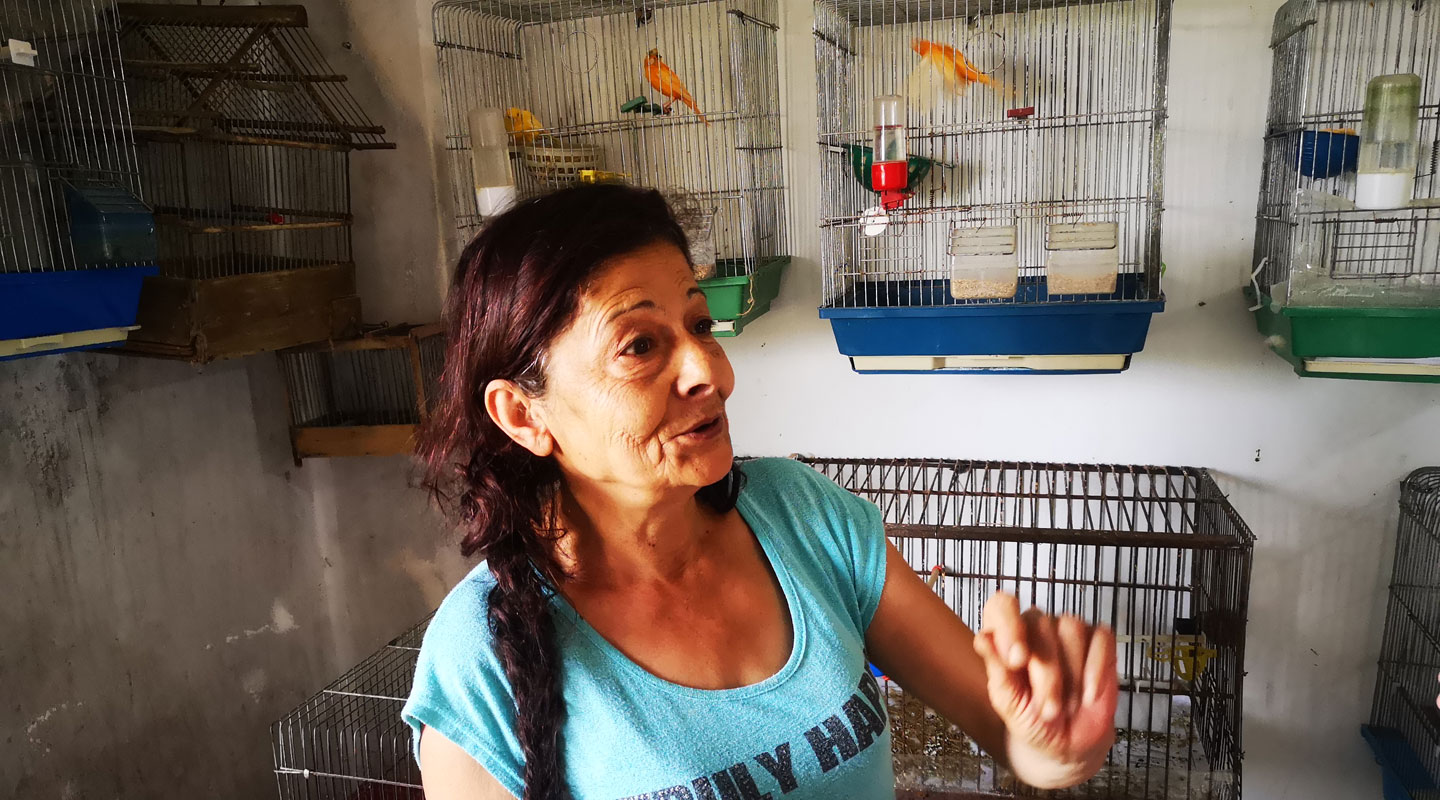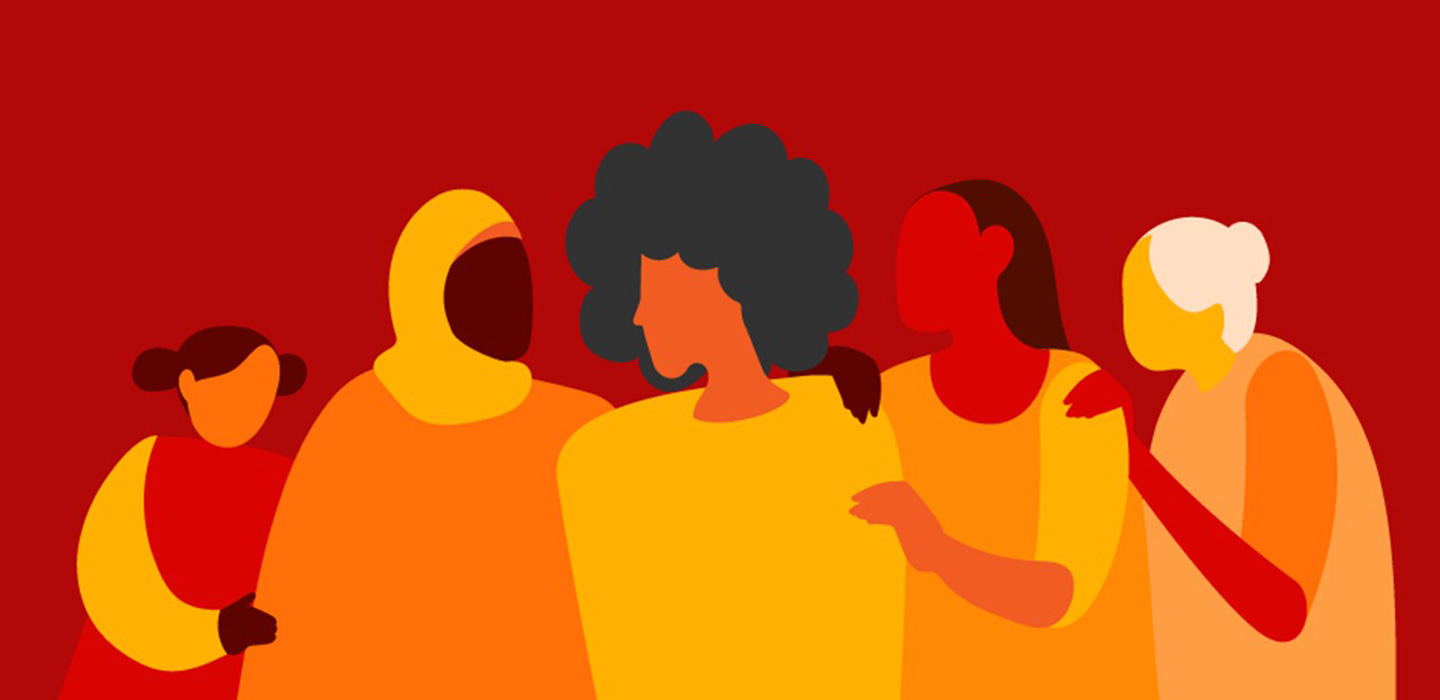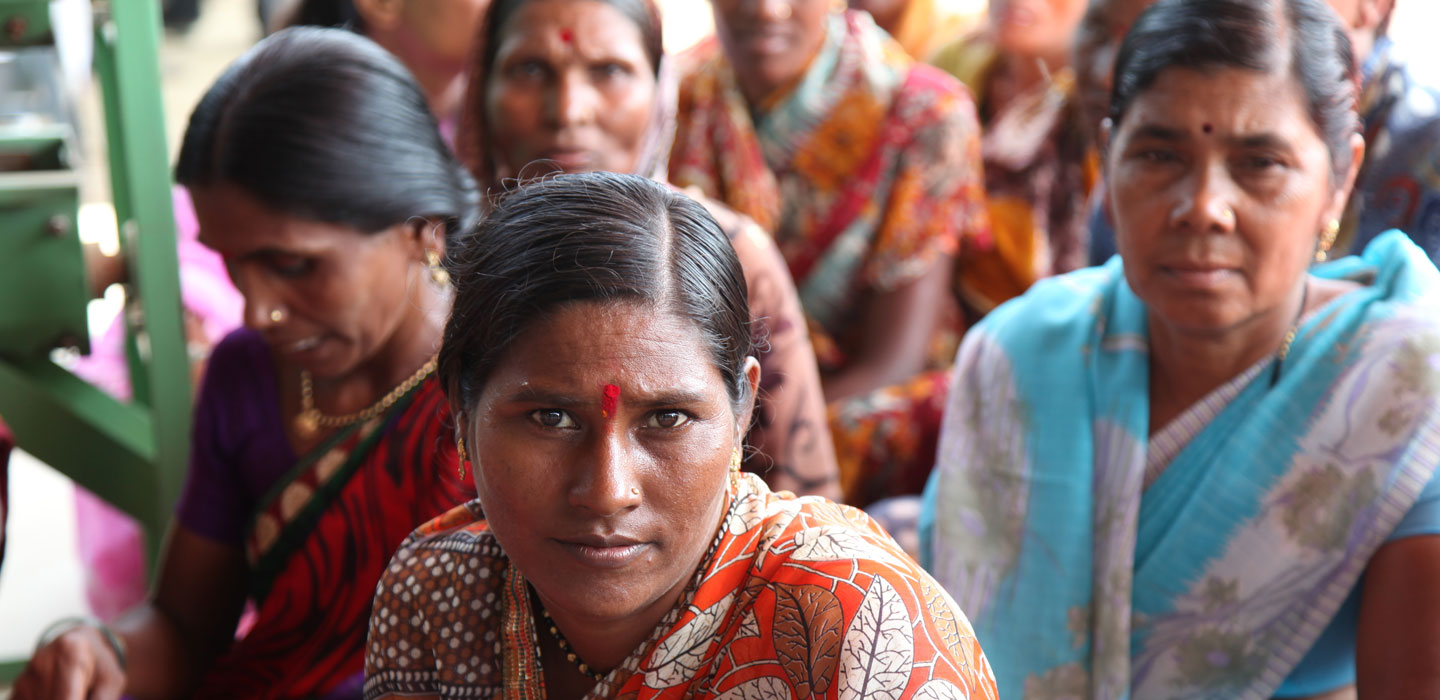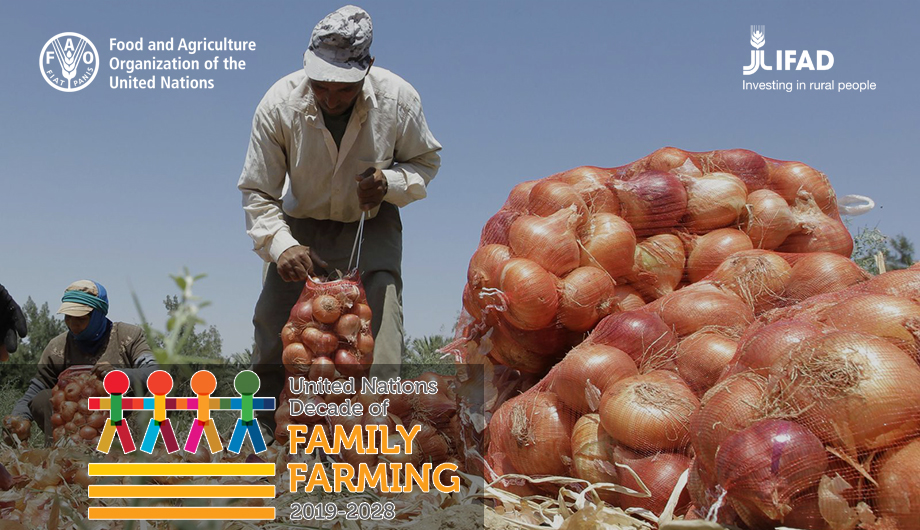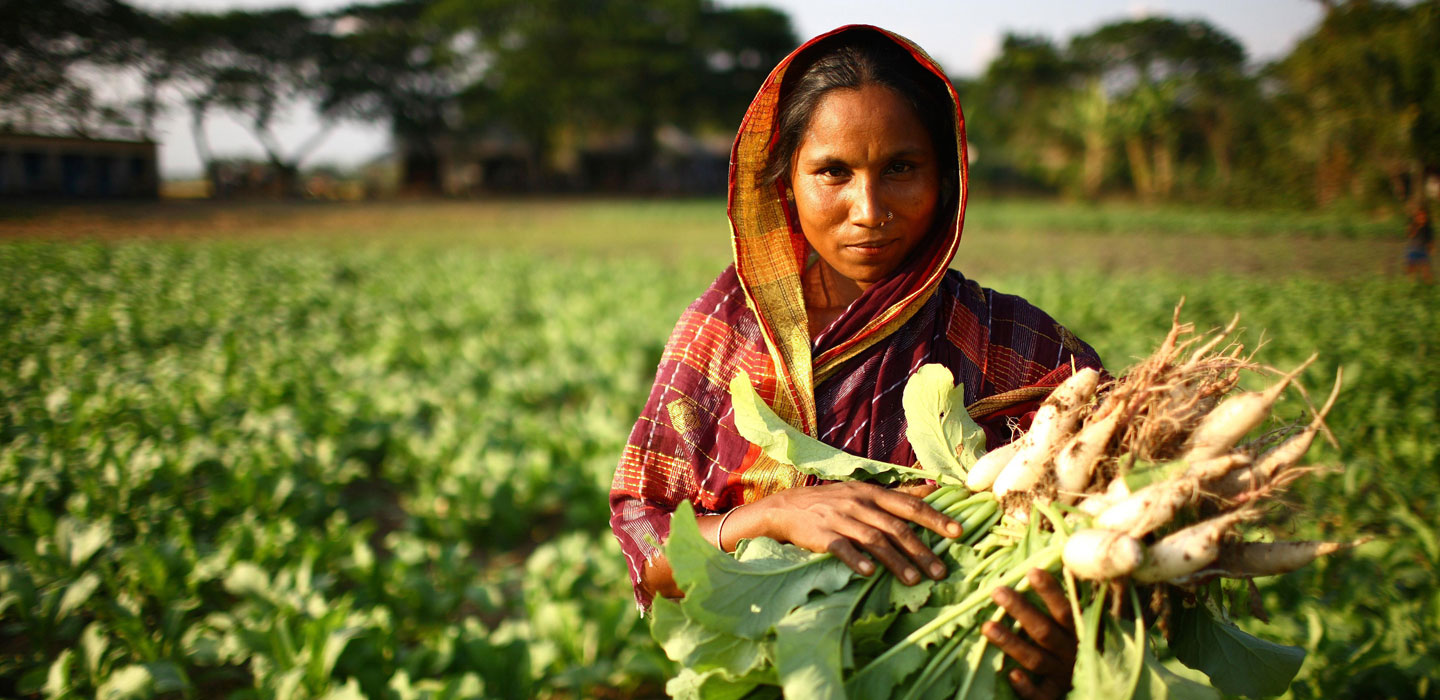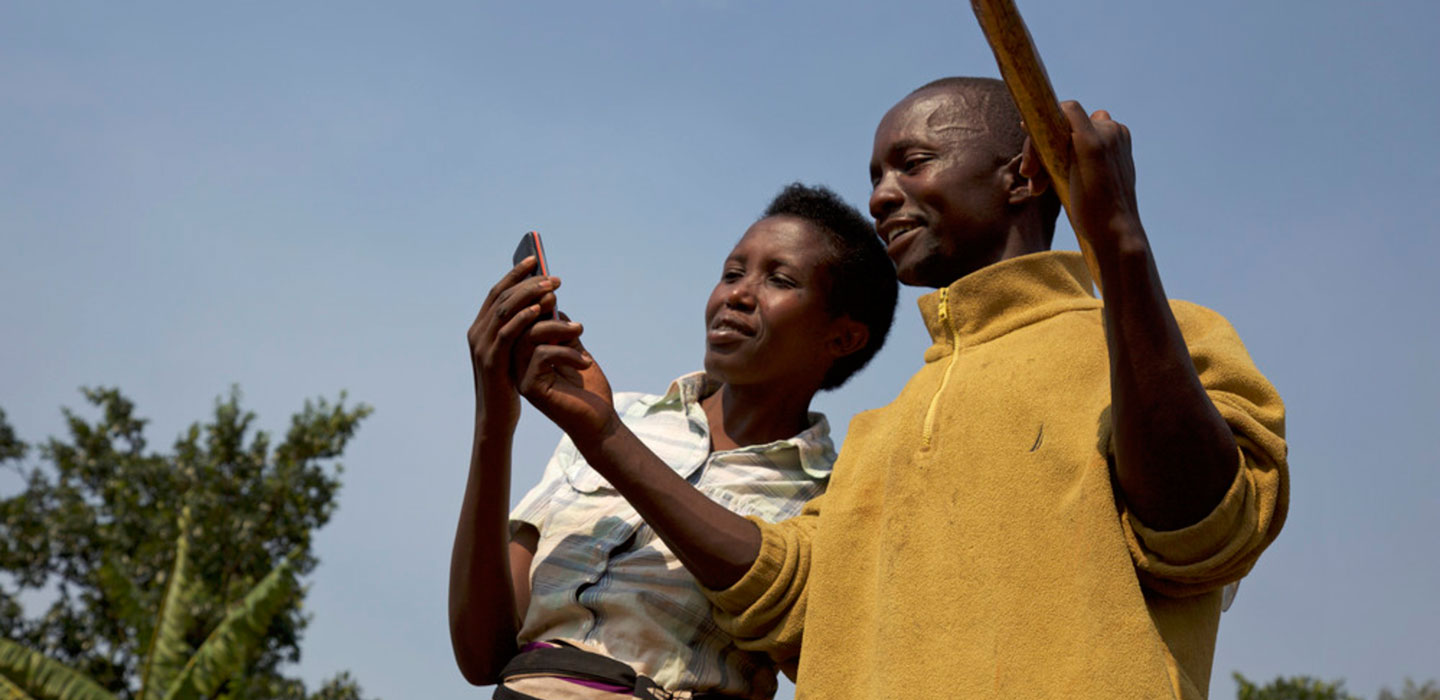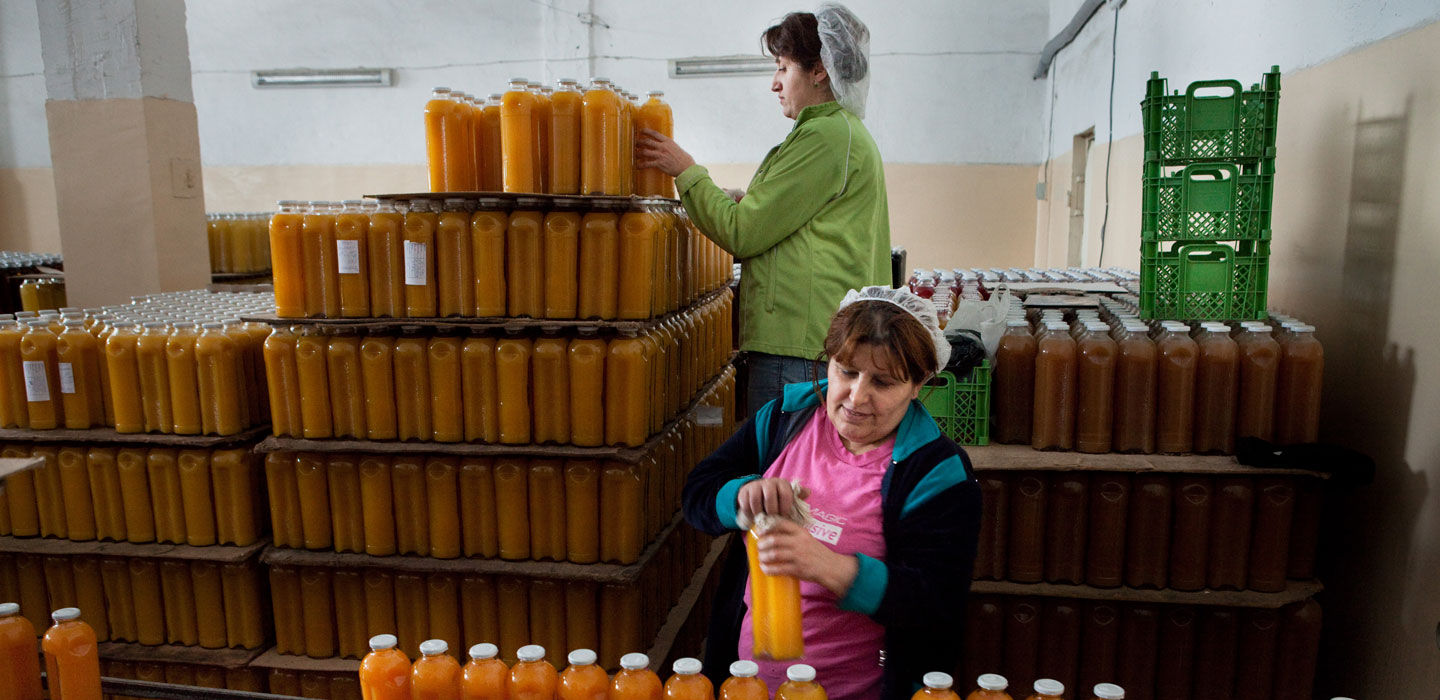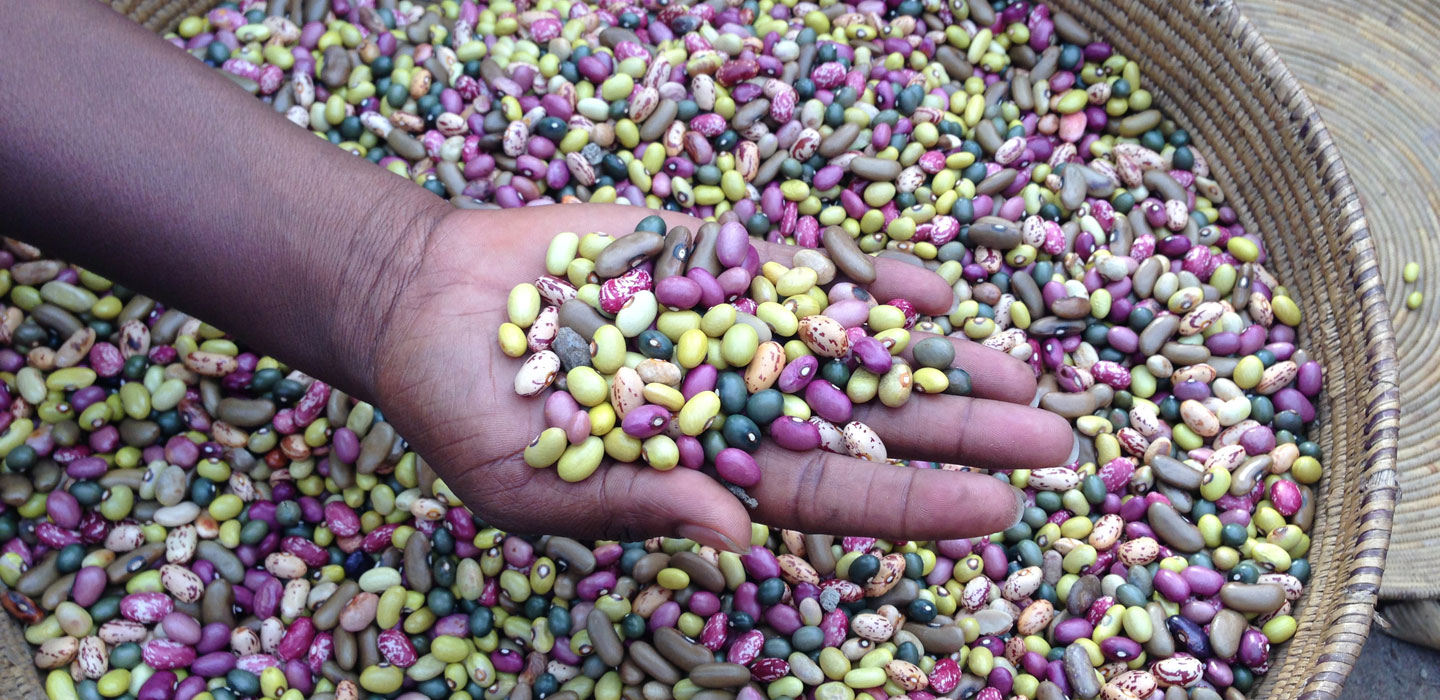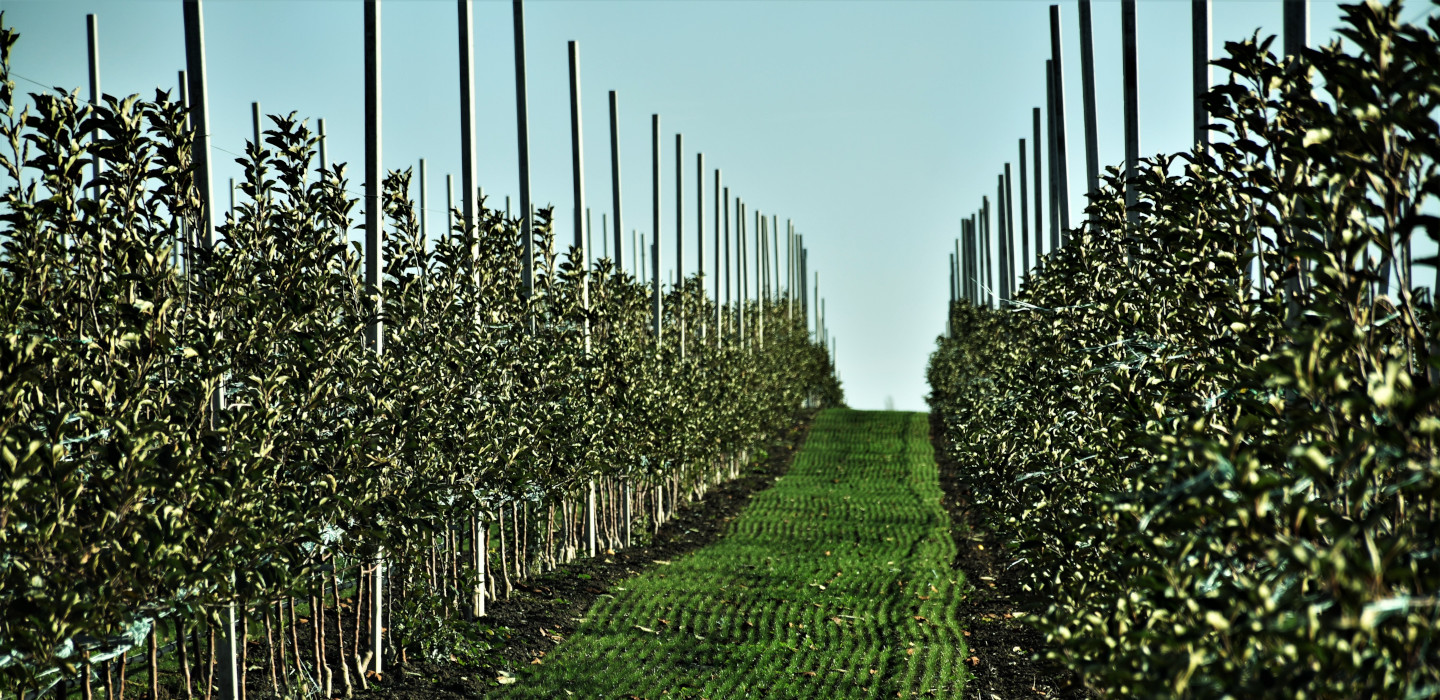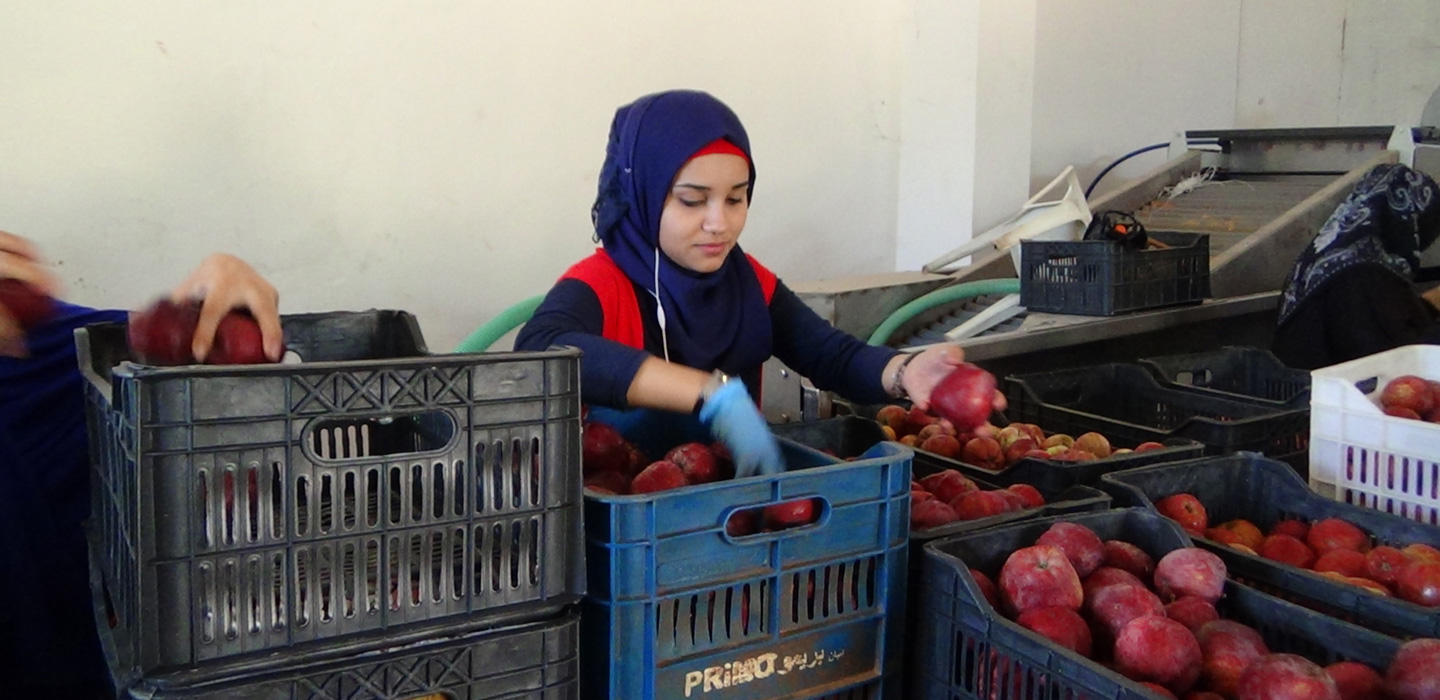Latest
Latest

Latest
Manual Submenu Topics
Search Results Filters
Search Results
Food from fallows: capitalizing on idle land for better food security in South Asia
Every year after the rice harvest in South Asia, a vast area of over 15 million hectares lies idle (fallow) until the next rice planting season several months later. Scientists in countries like Bangladesh, India and Nepal think the fallow land could, and should, be used for additional crops that increase farmer incomes and food security.
IFAD first in development aid rankings – new report
IFAD has just been ranked as number one by the highly regarded and influential Quality of Official Development Assistance Report which evaluated the capacity of 49 countries and multilateral agencies to deliver impactful long-term assistance to countries in need.
Remittance flows to Kenya defy the odds during the COVID-19 pandemic
Despite the impact of the COVID-19 pandemic on wages and employment across the world, the Kenyan diaspora community continues to send money back home to their families.
Brazil's seed guardians: Securing future biodiversity with the help of the past
Brazil has always been rich in biodiversity. But in the country's semi-arid north-eastern region, extensive ranching, slash-and-burn agriculture, and uncontrolled demand for firewood have led to widespread environmental degradation of the Caatinga biome.
FAO, FIDA y PMA crean alianza de cara a la Cumbre sobre los Sistemas Alimentarios de Naciones Unidas
La FAO, el FIDA y el PMA realizarán tres diálogos en América Latina y el Caribe para buscar posturas comunes sobre desarrollo rural, agricultura resiliente al clima, alimentación escolar, comercio internacional, innovación y tecnología, y financiamiento al desarrollo.
European Union and IFAD to support Ethiopian rural financial institutions, jobs and livelihoods in the face of the COVID-19
The International Fund for Agricultural Development (IFAD) and the European Union (EU) will provide EUR26.5 million worth of liquidity and debt relief to rural financial institutions to protect jobs and safeguard livelihoods during the COVID-19 pandemic.
How innovation is helping tea growers in Sri Lanka
Sri Lanka has been a global supplier of tea since the plant was first imported to the island about a hundred and fifty years ago. Since then, tea estates have often been passed down from generation to generation, weathering good times and bad.
From Kenya: the Ogiek honey Slow Food Presidium
The entire Ogiek belief system and livelihood relies on the forest and its resources, with honey being the most important product and a staple food for Ogiek families.
Fighting climate change in Latin America and the Caribbean
Small-scale farmers are responsible for up to 80 per cent of food production in Latin American and Caribbean countries, but they are at the frontline of the fight against climate change and social injustice.
New operational guidelines for Pro-Poor Value Chain Development help IFAD reach the poorest
In Ghana, the value chain model has helped build solid relationships, showing that even the poorest can be brought into commercial value chains if extra support is provided.
Restoring ecosystem services in the Peruvian Andes
In the Andes of Peru, rural farmers are helping to restore the region’s degraded lands and improve water security.
South Sudan small-scale producers receive support from IFAD to safeguard their livelihoods in the face of the COVID-19 crisis
IFAD will provide much needed funding to assist 23,900 vulnerable rural people (4,780 households) in the Republic of South Sudan. The IFAD grant will help reduce the impact of the COVID-19 pandemic on their farming activities and safeguard their livelihoods.
Tanzania and IFAD partner to boost productivity, improve food security and build resilience of small-scale farmers in the face of the climate change
A US$77.4 million project signed by IFAD and the Government of the United Republic of Tanzania will bring much needed help to 260,000 rural households facing the impacts of climate change.
How to change a life: Household mentoring makes a difference in northern Uganda
They say that leaders aren’t born, but made. That’s certainly true for Molly Ajok.
Call for proposals: Grant to strengthen borrowers’ capacity on environmental, social and climate best practices
This call for proposals is to select a recipient or consortium of recipients to receive a three-year IFAD grant financing to implement the SUSTAIN project for a total IFAD grant of US$2 million.
Interview with Recipes for Change Chef Roy Caceres
"A passion for work is the fundamental ingredient of cooking."
Spearheading South-South and Triangular Cooperation with partners in Asia
Cooperation among the global south, i.e., South-South and Triangular Cooperation (SSTC), is an integral part of international cooperation, and complements the traditional North-South Cooperation in development assistance.
In Nicaragua, coffee and cocoa make life sweeter
NICADAPTA works closely with producer cooperatives to help them sustainably access coffee and cocoa markets. The results are making life not only sweeter, but also better.
School meals in Guatemala - making food systems work
Guatemala has the fourth highest rate of malnutrition in the world where over 50 per cent of children under five are stunted. Many children do not get enough nutritious food, and often came to school hungry.
Small-scale farmers in remote areas of Haiti receive help for food production and COVID-19
The Government of Haiti and IFAD today signed a financing agreement for a project that will help Haitian farmers recover from the impact of Covid-19 and increase staple food production.
Development banks, institutions pledge US$17 billion to increase food security in Africa
A coalition of multilateral development banks and development partners has pledged over US$17 billion in financing on Friday during a high-level forum, in a bold bid to address rising hunger on the African continent and to improve food security.
Second round of National Calls for Proposals (Kenya and Uganda): Supporting remittances in times of crisis in Africa
The Financing Facility for Remittances of IFAD is pleased to announce the second round of National Calls for Proposals (Kenya, Uganda) 2021: supporting remittances in times of crisis in Africa.
African Development Bank, IFAD and partners redouble efforts to stop hunger in Africa and strengthen food security
The African Development Bank and the International Fund for Agricultural Development (IFAD), in partnership with the Forum for Agricultural Research in Africa (FARA) and the CGIAR System Organization, today pledged to work closely with African leaders to address rising hunger on the continent and shore up adequate financing to transform and modernize Africa’s food production.
Building climate resilient agriculture
Those who have the most to lose as a consequence of climate change are poor rural people, especially smallholders who rely on agriculture for survival.
Boosting food security in the Pacific with innovative technologies
Who could have predicted that two innovative mobile applications, each the winner of a Pacific Agrihack Lab grant in late 2018, would go on to make a difference in the lives of Pacific Islanders during the pandemic?
The Maasai of Kenya and the Red Maasai sheep slow food presidium
The rights of indigenous peoples to control their land according to their own needs and decisions is fundamental to protect their livelihoods and defend the biodiversity of native animal breeds and plant varieties.
Struggle, strength and wisdom: Snapshots of Bangladesh’s women farmers
The story of agriculture in Bangladesh is also a story of the resilience of Bangladeshi women. If women have the chance to participate in decision-making, the whole community benefits.
Farming, COVID, and Farmers’ Mental Health - Episode 19
We begin this month’s episode with the latest from IFAD’s Associate Vice-President Donal Brown on how small-scale farmers are dealing with the COVID-19 crisis.
What we are reading on food systems
As we approach the UN Food Systems Summit here are some suggested reads on transforming our food systems for people, and planet.
Feeding Africa: Leadership to Scale up Successful Innovations
The African Development Bank and IFAD, in partnership with the Forum for Agricultural Research in Africa (FARA) and the CGIAR System Organization, will co-host a high-level dialogue: Feeding Africa: leadership to scale up successful innovations.
In Kyrgyzstan, new technology preserves age-old pastures
Urmatbek Omurbekov remembers a time when grazing his livestock was a purely offline affair. Every spring, herders like him would bring their animals to the foothills of the majestic Tian Shah Mountains to let them fatten up for the next winter.
IFAD-BRAC collaboration empowers rural people to build their climate resilience
People in rural areas, especially small-scale farmers, are among those most affected by climate change. The shifting climate has made weather patterns more unpredictable and weather-related events more extreme.
Potential game-changing systemic solutions for the UN Food Systems Summit: Advancing equitable livelihoods
The UN Food System Summit’s Action Tracks offer a space to share and learn, with a view to fostering new actions and partnerships and amplifying existing initiatives. Each of the five Action Tracks is aligned with one of the Summit’s five objectives.
IFAD and the Islamic Development Bank commit $500 million to address hunger and climate change in poor rural communities
Joining forces to tackle rising hunger and the devastating impact of climate change in some of the world’s most vulnerable countries, IFAD and IsDB today signed a US$500 million cooperation and cofinancing agreement.
Kenya: All the ingredients for a successful banana processing factory
Take some young entrepreneurs, add some modern equipment and training supported by IFAD and the Kenyan Government, spread the word using digital marketing, and you have all the ingredients for a successful banana processing factory.
The promises the olive grove holds: Fadieh’s story
Growing olive trees in Jordan, one of the driest countries in the world, isn’t easy. Every day, Fadieh and her family spend hours tilling the soil and tending to the trees, but the most demanding task is keeping the trees hydrated.
Fighting fires with rice paddies in Sierra Leone
Farmers in Sierra Leone have shifted from slash-and-burn cultivation to rice cultivation in inland swamps. That is reducing the number of forest fires, a GIS study has shown.
Digital information service helps small-scale farmers respond to COVID-19
The Kenya National Farmers’ Federation is implementing a mobile information platform to serve its members and other Kenyan farmers.
Small-scale Farmers Developing Resilience to COVID-19 - Episode 18
In this episode, we bring you the latest on how small-scale farmers are dealing with the COVID-19 crisis.
New investment in digital solutions will connect Latin American farmers to markets and banking services in response to COVID-19 restrictions
More than 10,000 family farmers in Latin America will soon have access to digital solutions to overcome the obstacles they face in accessing markets and financing due to the consequences of the COVID-19 pandemic.
Helping remittances reach rural areas in Moldova
For some time now, it has been difficult to find well-paid work in Moldova. Most of the good jobs available are concentrated in the cities, resulting in significant migration out of the country’s rural areas.
The China-IFAD South-South and Triangular Cooperation Facility: Leveraging SSTC for rural development
To accelerate rural poverty alleviation, enhance rural productivity, and advance rural transformation through South-South and Triangular Cooperation, the China-IFAD SSTC Facility was established in 2018, becoming the first Facility in IFAD dedicated to SSTC.
Drought-tolerant rice varieties benefit farmers even in non-drought years
Farmers that lack irrigation and rely on rainfed production are particularly vulnerable to drought. Fortunately, agricultural technologies, such as stress-tolerant rice varieties (STRVs), can help them adapt to climate change.
Making every drop count: Saving water and rural livelihoods
Until recently, every time Fatima Hassan Mohamed needed water to wash, cook, or drink, the mother of five had to set out on foot. The nearest water source was more than 20 kilometers away.
Restoring Morocco’s mountain ecosystems with reforestation
In many areas of rural Morocco, climate change has led to widespread erosion and desertification, causing steep declines in soil quality. This makes farmland less productive, endangering the livelihoods of the area’s small-scale farmers.
Why water is crucial for sustainable food systems
Enhancing irrigation efficiency is not a priority in policy agendas, being overshadowed by the global issue of access to drinking water and sanitation.
Italy to set the stage for UN Food Systems Summit with three-day event that will deliver bold new ambitions
The United Nations and the Government of Italy announced today that the Pre-Summit gathering for the 2021 UN Food Systems Summit will be in Rome, Italy from July 19 to July 21, 2021.
Linking families, farms and schools in Guatemala
Many Guatemalans struggle with hunger and food insecurity, especially the nation’s children. In too many cases, lack of access to adequate food leaves children feeling weak and unable to concentrate in school, complicating both their physical and intellectual growth.
IFAD-GEF–supported project in Eswatini scoops the 2020 Biodiversity Award
The IFAD- and GEF-supported Smallholder Market-led Project (SMLP-CSARL) recently received the Biodiversity Award at Eswatini’s 2020 Temvelo Climate Awards.
Targeting hunger by transforming food system through South-South Cooperation
Through South-South Cooperation, IFAD is tapping into existing expertise, skills, capacities, and solutions to address the effects of COVID-19 pandemic and other challenges on rural populations.
The power of options
Like other women on Santiago, the largest island of Cabo Verde, Maria Lizita Varela used to rely on sand extraction as a source of income. It was thankless, dangerous work.
Empowering women and girls is crucial to ensure sustainable food security in the aftermath of COVID-19, say UN food agency heads ahead of International Women’s Day
Hunger and famine will persist and there will be unequal recovery from the impacts of the COVID-19 pandemic unless more women in rural and urban areas hold leadership positions with increased decision-making power.
Promoting women’s economic empowerment in West and Central Africa
A growing number of reports are demonstrating what many development professionals already know about the impacts of COVID-19: women and girls are more vulnerable to the negative health and socio-economic effects of the crisis.
Big dreams come true in Turkey’s smallest district
Meltem Gözel’s day begins at 07.00 each morning. Before the sun has risen, she’s already at work in her greenhouses, tending to her mushrooms.
Upholding cultural traditions in Tonga
An old Tongan proverb says that a successful village lives together, works together, and helps one another. This is especially true for handicrafts, an integral part of traditional Tongan culture.
El FIDA lanza la Segunda Edición del Premio a la Innovación Juvenil Rural en América Latina y el Caribe
El objetivo del concurso es identificar y premiar iniciativas innovadoras impulsadas por jóvenes que contribuyan a superar los desafíos de la pandemia de COVID-19 en las áreas rurales de la región.
What impact will the COVID-19 pandemic and the global economic downturn have on world food security?
In 2021, the impact of the epidemic and the global economic recession will have an impact on world food security. After the epidemic, what problems will global food security face and how to deal with it?
The People Behind Your Plate - Powerful photos and stories available
The People Behind Your Plate is a coffee table book of powerful images and stories of rural people worldwide created IFAD and released for global use today.
Pioneering development in rural Uzbekistan
Starting over is never easy, whether you’re an individual person or an entire nation. Nevertheless, the economy of Uzbekistan has made incredible progress in recent years.
Tracking investments in Tunisia with remote sensing
Many elements involved in IFAD-funded projects. As long as an element’s precise geographic coordinates are known, satellite imagery can be used to monitor any changes that have taken place.
Celebrating Women in Leadership Across the Globe - Episode 17
In this episode, we celebrate International Women’s Day (IWD), a global day of observance that celebrates the social, economic, cultural and political achievements of women.
Donors commit to highest-ever funding to UN rural development agency IFAD to tackle hunger and poverty for the world’s poorest
IFAD will be able to invest US$3.8 billion in the world’s rural poor thanks to an unprecedented record-high financing target set today by governments from 177 countries at IFAD’s annual Governing Council.
Breaking the vicious circle of hunger and conflict
Hunger is both a cause and result of conflict. In fact, conflict is the main driver of hunger in most of the world’s food crises.
UN to involve millions of rural people in 2021 Food Systems Summit as part of ambitious public engagement process
An unprecedented commitment to ensure that the voices and opinions of millions of the world’s most remote rural people are at the heart of the United Nations Food Systems Summit was announced today by the UN Secretary-General’s Special Envoy, Agnes Kalibata and the President of IFAD, Gilbert F. Houngbo.
World leaders call for greater international cooperation to tackle hunger and poverty at IFAD global meeting
The fate of the world’s poorest and wealthiest nations are interconnected, and eradicating poverty and hunger will be impossible without urgent and focused international cooperation efforts directed at long-term development, said world leaders speaking at the opening of the IFAD annual Governing Council meeting today.
Gilbert F. Houngbo reappointed IFAD President with an ambitious agenda to end hunger and poverty for hundreds of millions of world’s poorest people
In a strong show of support and recognition for the leader who has successfully showcased the importance of long-term rural development, Member States have reappointed Gilbert F. Houngbo as President of IFAD for a second term at its annual Governing Council meeting today.
Livelihood-recovery project directly supporting Cambodia’s most vulnerable and those impacted by COVID-19 to launch tomorrow
The Ministry of Agriculture, Forestry and Fisheries (MAFF) and FAO will sign a project agreement tomorrow to directly support 10,000 of the most vulnerable people affected by COVID-19 in Siem Reap and Banteay Meanchey Province to restore their livelihoods and improve their resilience to the crisis.
Countries worldwide are stepping up to support rural farmers living in poverty
The COVID-19 pandemic has been hard on smallholder farmers in low-income countries who have struggled to access to markets, labourers, technology, and key resources amid physical distancing mandates, shifting government funding priorities, and plunging income levels.
Increased investment in Sahel will boost development and resilience of rural populations
About one million rural people in the Sahel region will benefit from a new joint programme, the first of its kind, IFAD announced today. The US$180.4 million Regional Joint Programme will revitalize economic activities and food systems in the Group of Five Sahel countries and in the Republic of Senegal.
How radio came to the rescue in Nepal
Last March, when Nepal went into lockdown to manage the COVID-19 pandemic, Sarbaraj Bhandari realized he was in a bit of a fix. A goat farmer, he was in the process of upgrading and managing his goat-shed facilities with the help of extension services and technical support provided to farmers participating in the Ministry of Agriculture and Livestock Development-led and IFAD-supported Agriculture Sector Development Programme (ASDP).
Bringing home the bacon: Digitalization helps Chinese pig farmers scale up
Zhenba County, nestled in the mountains of China’s Shaanxi province, has long been known for its traditional bacon, expertly smoked and cured to produce an unmatched flavor.
IFAD Governing Council and press conference with new announcement on UN Food Systems Summit - 17-18 February 2021
Heads of state, ministers and rural development experts will come together at the 44th annual Governing Council meeting of IFAD to discuss the critical importance of investing in the rural areas of the world’s poorest countries to build global stability and peace, and how to close the rural development funding gap.
IFAD’s new book The People Behind Your Plate
As I scroll through the pages of the new photo book The People Behind Your Plate just published by IFAD, I remember my own visits with rural people in remote villages as I travelled around Lesotho to collect recipes for my cooking books.
UN rural development agency IFAD to open Japan office to boost global hunger eradication efforts
The Japanese government and the IFAD signed an historic agreement today to open the first IFAD Liaison Office in Japan.
Indigenous Peoples are critical to build a more sustainable post-pandemic world, says IFAD President
Indigenous Peoples have suffered disproportionately from the economic impacts of COVID-19, yet they hold essential knowledge for rebuilding a more sustainable and resilient post-pandemic world, free of poverty and hunger, said Gilbert F. Houngbo, President of IFAD, at the opening of the Fifth global meeting of the Indigenous Peoples’ Forum today.
Indigenous food systems are at the heart of resilience
Indigenous food systems represent a treasure trove of knowledge that contributes to well-being and health, benefiting communities, preserving a rich biodiversity, and providing nutritious food.
Invitation to Indigenous Peoples’ Forum at IFAD: How indigenous food systems can help build resilience to impacts of the COVID-19 pandemic
This year, representatives from Indigenous Peoples’ groups from around 57 countries will meet with development organisations and governments to discuss ways to address challenges and opportunities.
Help for Nigerian small-scale farmers to improve food security and combat poverty in the face of COVID-19
The Federal Government of Nigeria and IFAD are working together to lessen the impact of the Covid-19 pandemic on small-scale farmers’ activities and domestic food supply in northeastern states of Nigeria.
Unless we urgently rethink agriculture, more diseases will jump species
As the world grapples with the current pandemic, other threats, not least our climate emergency, have not gone away. The science is clear that without urgent global action, the climate and broader environmental crisis could be worse.
New Vision, New Year – Episode 16
In this month’s episode, we’re focusing on youth and indigenous peoples as agents of change in the developing world.
Fai fatongia: One island’s path to food security, COVID mitigation and climate resilience
In the Kingdom of Tonga, fai fatongia rules the day. Under this principle, which translates to “fulfilling one’s responsibility,” Tongans traditionally put the collective good first and their individual needs second.
Help small-scale farmers adapt to climate change or face increased hunger and migration, warns IFAD President
If investments to help rural small-scale farmers adapt to climate change do not substantially increase, we risk widespread hunger and global instability, warned Gilbert F. Houngbo, President of IFAD, ahead of next week’s Climate Adaptation Summit.
There is a growing climate emergency facing smallholders across Asia Pacific – what is IFAD doing about it?
According to UN reports, the Asia Pacific region is the most disaster-prone region in the world. Nearly 45 per cent of the world’s natural disasters occur in the region.
Digital agriculture: key to helping small-scale producers overcome COVID-19 challenges
As we approach the first anniversary of the beginning of the COVID-19 pandemic, it’s an important moment to take stock on the impact of the pandemic, and to reflect on what we have learned, and what we can do better going forward.
Greening the Sahara: the Great Green Wall Initiative
In 2009, I travelled by road to Timbuktu, Mali on a short field trip. As we made our way down the dusty roads, I remember wondering what could possibly pull this arid, sparsely populated land into relative prosperity.
French President Emmanuel Macron calls on leaders to fund IFAD
In a move to sustainably address rising hunger and poverty, exacerbated by COVID-19, climate change and biodiversity loss, French President Emmanuel Macron called on global leaders to step up their commitments in support of long-term agricultural development.
IFAD and GCF scale-up action to improve life for millions of people and restore ecosystems in Africa’s Great Green Wall
A new investment programme is planned to support Sahelian governments through a partnership between the Green Climate Fund (GCF) and IFAD in order to boost climate finance for these rural populations.
To “green” the Sahel, we need big plans and small actions
The best way to make the desert bloom is to dig a hole. Not a well, but a shallow pit in the sandy soil about as wide as the length of your forearm. Then add some dung, plant your seeds, and wait for the rains.
National Calls for Proposals (The Gambia, Ghana, Senegal): Supporting remittances in times of crisis in Africa
The Financing Facility for Remittances (FFR) of IFAD is pleased to announce the 2020 National Calls for Proposals: Supporting Remittances in Times of Crisis in Africa.
Take our end-of-year quiz!
A lot has happened over the last year – besides a global pandemic. See how much you were paying attention by taking our end of year quiz!
A year in review: Nurturing resilient rural communities in a time of change
2020 has been a tumultuous year. The COVID-19 pandemic has affected everyone across the world – and meanwhile, the other challenges faced by rural people across the globe haven’t gone away.
New Frontiers in Sustainable Farming – Episode 15
In this episode, we say goodbye to a year that’s been full of uncertainty and change, but also adaptation, innovation and improvement.
A holiday gift with impact: crowdfunding solar-powered water access in Africa
This holiday season, some of the world’s poorest families in Somalia and Malawi look set to access water through innovative solar energy products financed through a crowdfunding project set up by IFAD.
Chef Bowerman wishes our readers Happy Holidays with this festive treat
To celebrate with all our readers and supporters and wish you Happy Holidays, we asked our Recipes for Change chefs to share some festive recipes to enjoy during the holiday season.
Wishing you season’s greetings from Recipes for Change
Our Recipes for Change chefs Ska Moteane, Lance Seeto, Bela Gil, Pierre Thiam and Mariah Gladstone shared with us their festive wishes for the Recipes for Change community and IFAD in the holiday season.
Five reasons IFAD is putting small-scale farmers at the forefront of food systems transformation
Our current food systems are not sustainable. Hunger has been on the rise for several years, with an estimated 811 million people worldwide going hungry in 2020 – and with the effects of the COVID-19 pandemic, up to 132 million more people are expected to join this number soon.
The first woman camel farmer in North Africa: Imen’s story
Benguerdane is a small town in the desert plain of El Ouara, a region in the extreme south-east of Tunisia, just a few kilometres away from the Libyan border. The climate there is forbiddingly arid, and the main source of livelihood is raising livestock like sheep and goats.
Pope Francis joins 25 countries to fight against poverty and hunger in first round of pledges to IFAD
Despite the economic consequences of COVID-19, a growing number of countries around the world today stepped up their investments in long-term development, signalling a greater awareness of the links between hunger, inequality and instability which often spark humanitarian crises.
How Bhutan is showing the way in building crop biodiversity
For countries like Bhutan – nestled in the high Himalayas, historically isolated and topographically challenging – ensuring food security is vital.
IFAD joins with partners to build resilience and boost development in the Sahel
IFAD is joining with FAO and WFP - as well as the G5 Sahel and the Green Climate Fund to revitalize economic activities and food systems in the Group of Five Sahel countries and in the Republic of Senegal.
Des députés français se mobilisent pour soutenir le développement agricole et l’action du FIDA sur le terrain
Les députés français, Marion Lenne et Jean François Mbaye, membres de la commission des Affaires étrangères du parlement, en visite au Sénégal cette semaine, ont plaidé pour que le gouvernement français augmente sa contribution de manière significative à la douzième reconstitution des ressources du FIDA, qui se conclura en février 2021.
Climate change talks cannot continue to ignore the needs of small-scale farmers
Poor rural people are among the hardest hit by climate change while contributing little to its causes. They deserve a fair share of climate finance to improve their resilience, and a seat at the table for the global climate talks.
Mozambique and IFAD to increase resilience and food and nutrition security in the face of climate change and COVID-19
The Government of Mozambique and IFAD have officially launched the Inclusive Agri-Food Value Chain Development Programme (PROCAVA) to improve rural livelihoods, food security and resilience – are all critical needs in view of pandemic and climate change impacts for the country’s most vulnerable people.
Eliminating poverty and hunger high on global agenda as countries pledge funds to IFAD
At a time when hunger and poverty are increasing due to conflict, climate change and the COVID-19 pandemic, some of the world’s poorest countries are the first to pledge funds to the UN’s International Fund for Agricultural Development (IFAD) to support its work to ensure that the most vulnerable rural people can sustainably access nutritious food and decent incomes.
Multi-million euro contribution from Germany to IFAD will help avert a COVID-19 food crisis
In the face of a looming food crisis due to the COVID-19 pandemic, Germany has committed funds to IFAD to help ensure small-scale farmers can continue growing food in some of the poorest regions of the world.
World Soil Day: A tribute to our friends underground
Today is World Soil Day, so let’s dwell a little on this amazing world of earthworms, mites, fungi and microbes.
Working closer as a UN family in country – a review of progress in implementing the UN reform agenda across Asia Pacific
The adoption of General Assembly resolution 72/279 in May 2018, triggered a consortium of UN organizations to come together and rethink how the United Nations Development System can deliver more coherent, accountable and effective support to help countries achieve the 2030 Agenda.
New UN report reveals the inequality in the geographical distribution of malnutrition in Latin America and the Caribbean
A new United Nations report shows the territorial inequality of malnutrition in the countries of Latin America and the Caribbean.
Sicurezza alimentare e Covid-19, come proteggere le filiere?
La vice Ministra degli Esteri Emanuela Del Re ed esperti italiani e internazionali ne discutono in un seminario online aperto ai giornalisti.
Three ways we’re using digital technologies to fight rural poverty in the NEN region
Digital technologies have become our constant companions over the last few decades. Devices like smartphones and laptops have become even more relevant after the COVID-19 outbreak, helping us stay in touch even in times of physical distance.
Resilience in rural Syria: Welcoming back tourists with fresh-baked pastries
After a decade of conflict, local tourists are slowly starting to return to the pristine mountainsides just a short drive outside Latakia, Syria. Visitors to the village of Zaghreen, in particular, are greeted by the aroma of Issam Mohammad Hamoody’s freshly-baked pastries.
The United Nations will present a new report on food and nutrition security in Latin America and the Caribbean
On December 2, the United Nations will present the new edition of the report Panorama of food and nutritional security in Latin America and the Caribbean 2020, focused on the territories that suffer the highest rates of malnutrition, stunring and overweight.
Rural youth, innovation and tradition: the challenge of a new order
In the midst of the COVID-19 pandemic, the reinvention of the agricultural sector is indispensable today. In fact, it is already beginning to take place with young people at the heart of it.
Resilience in rural Syria: The sound of songbirds
Conflict has paralyzed much of Syria’s rural economy over the past decade. People throughout the countryside often repeat what has become a common quote: “No sound is louder than the sound of gunshots.” But at least one woman in rural Syria is listening to a different tune.
International Day for the Elimination of Violence against Women
Each year, to raise public awareness of gender-based violence across the world, the United Nations recognizes 25 November as the International Day for the Elimination of Violence against Women.
16 days of activism against gender-based violence: Building a brighter future for women and girls
Violence against women is far more than a violation of human rights. It undermines women’s physical and mental health, as well as their ability to be happy and productive members of their societies.
IFAD and FAO join forces to support family farming in the Near East and North Africa
IFAD and FAO have joined forces to foster inclusive and sustainable family farming as the central cornerstone for a vibrant, productive and profitable agriculture across the Near East and North Africa.
Why small farms are key to the future of food - and how we can support them
In the 25 years since Clayton Christensen coined the term “disruptive innovation,” much has been written about the benefits of shaking up established business practices.
Resilience in rural Syria: An entrepreneurial spirit conquers hardships
Determination and perseverance are what make an entrepreneur successful. That’s doubly true in a country like Syria, where ongoing conflict has disrupted people’s lives for the past decade.
Innovations in agriculture during COVID-19 – Episode 14
This month’s programme is all about innovations in agriculture. We’re travelling around the world to hear about new technologies designed to ensure food security.
In an urbanizing world, strong rural–urban links remain the key to resilient cities
As the world becomes more and more urbanized, many have suggested that cities hold the key to an efficient, sustainable future.
AA+ credit rating from Standard & Poor’s will help IFAD increase investments to fight poverty and hunger
The prospect of eradicating hunger and poverty received a boost today as IFAD obtained its second strong public credit rating, facilitating its access to private funds to invest in increasing rural prosperity and development in the world’s poorest countries.
President's Hearing to the Foreign Affairs Committee of the Italian Parliament
Gilbert F. Houngbo, President of IFAD was invited to hold a hearing to the Foreign Affairs Committee of the Italian Parliament on 18 November.
No place like home: Moldovan youth bring business to the countryside
Moldova’s agriculture sector is increasingly developing and modernizing. This is due both to an increased presence in lucrative markets like the European Union and to the efforts deployed by IFAD and the Government of Moldova to help restructure the sector, largely through sustained investments and financial support to small-scale farmers, to accompany this modernization.
Linking small-scale producers to markets in Lebanon
Apple season in Lebanon is much like apple season in many other parts of the world. But in Lebanon, apple growers – along with small-scale farmers of all kinds – face a number of constraints on their ability to efficiently grow and sell their crops.
